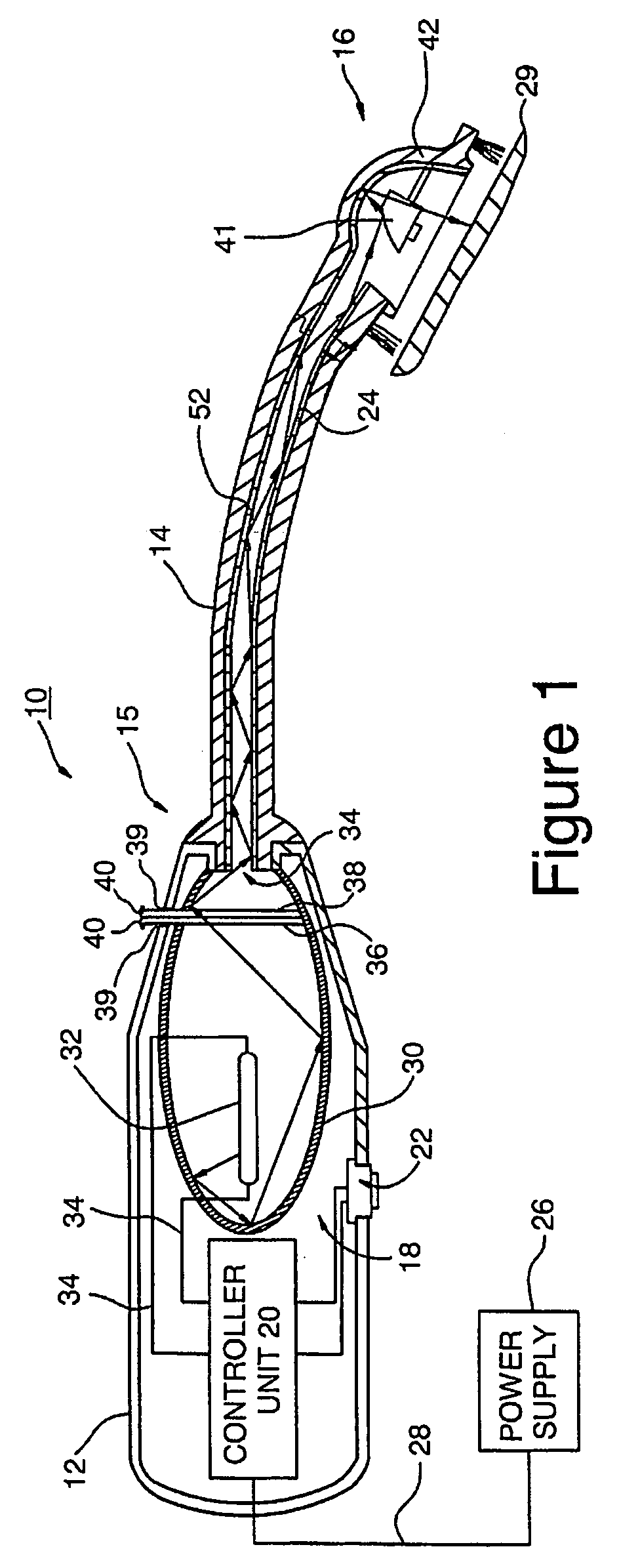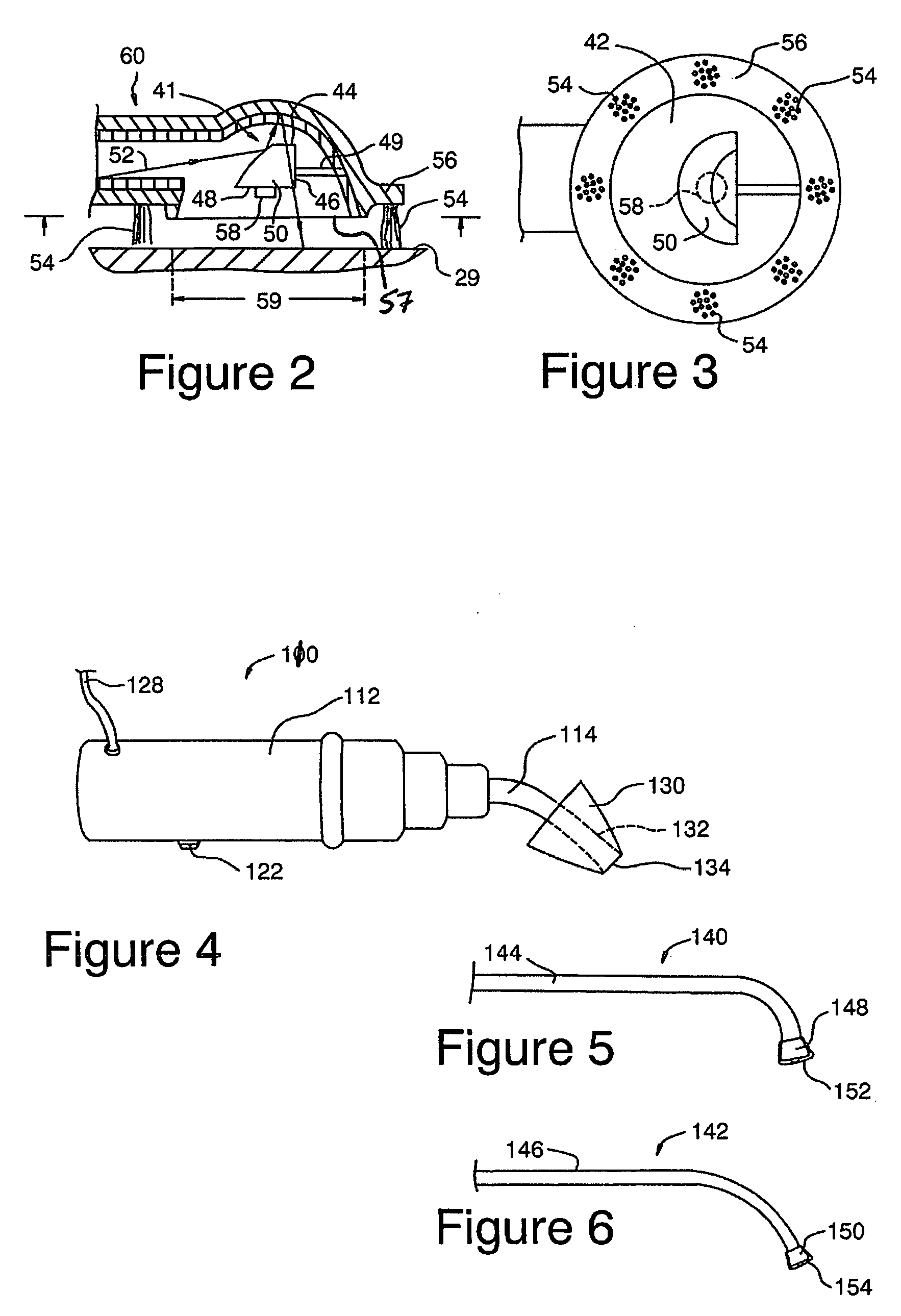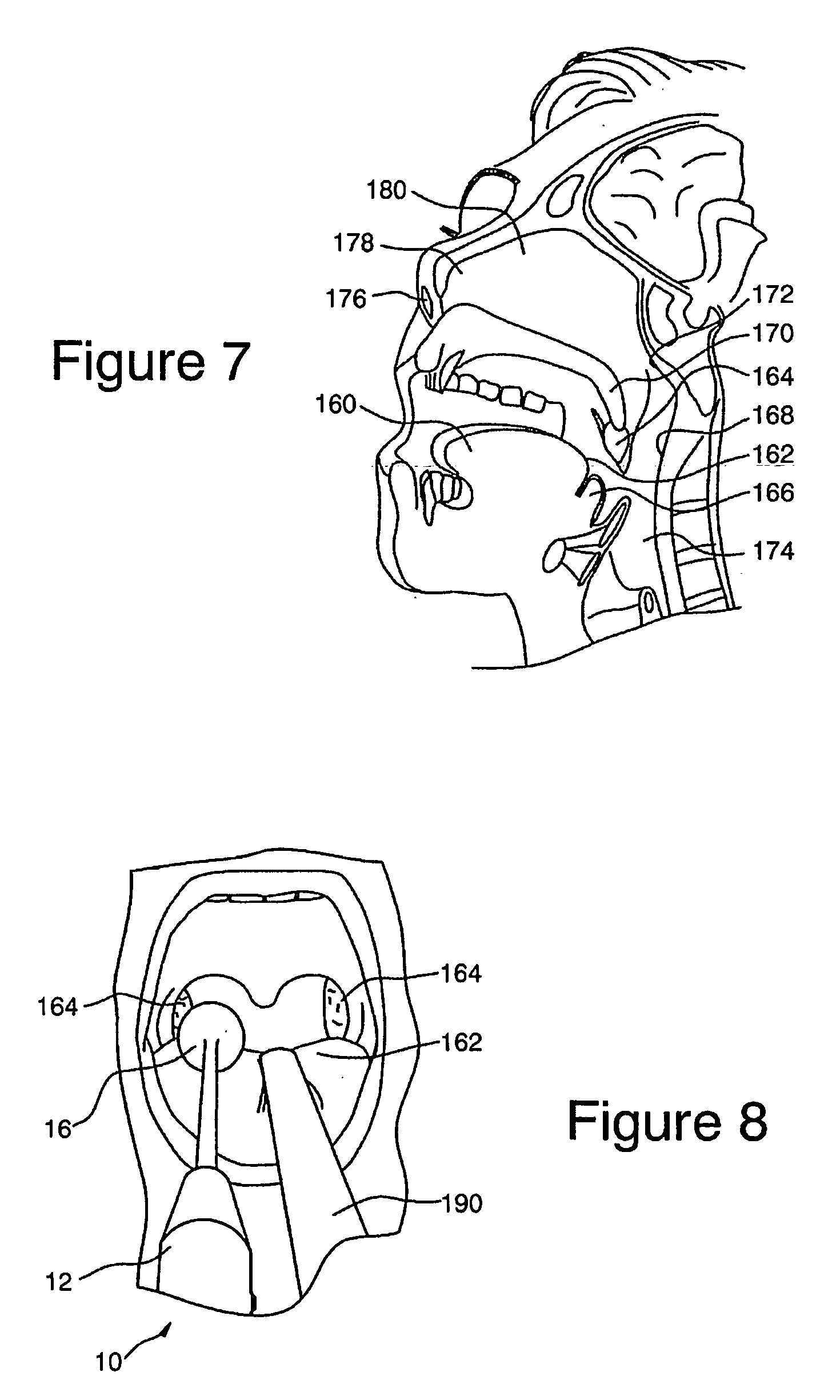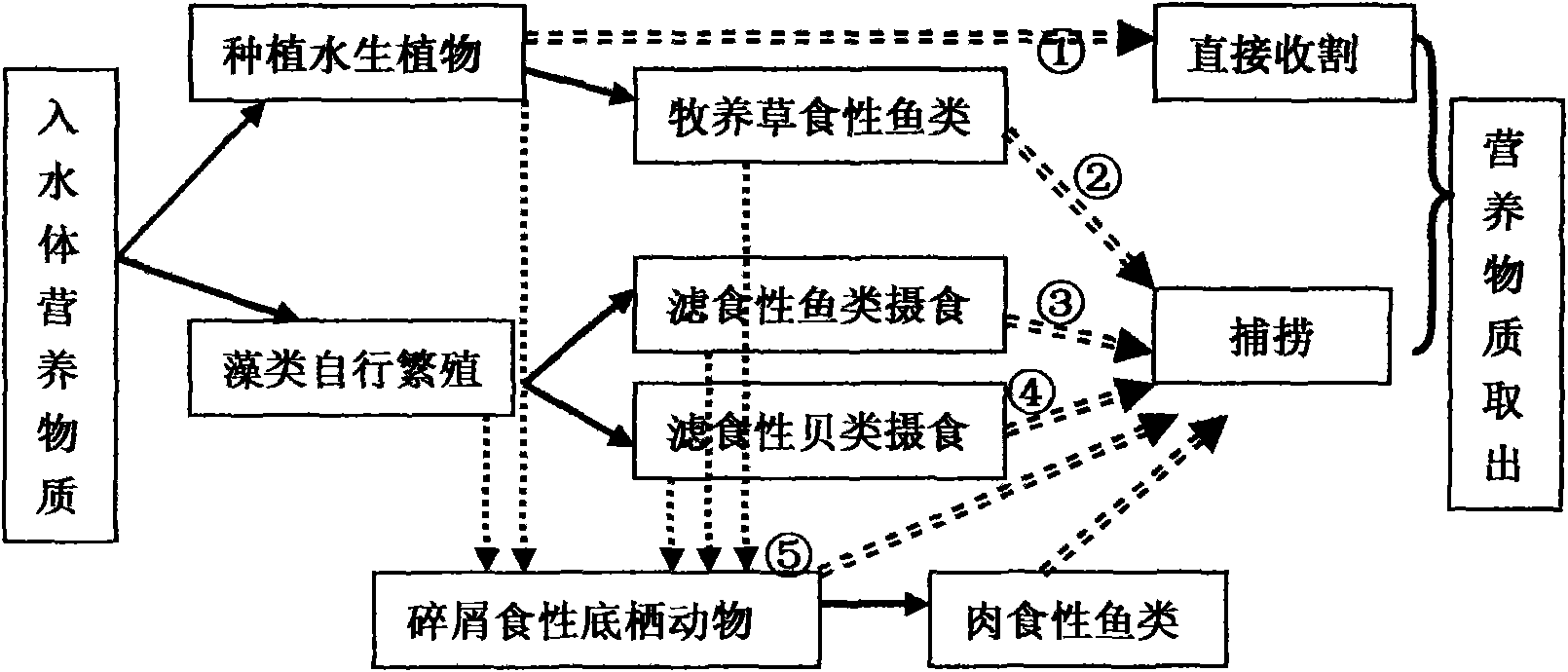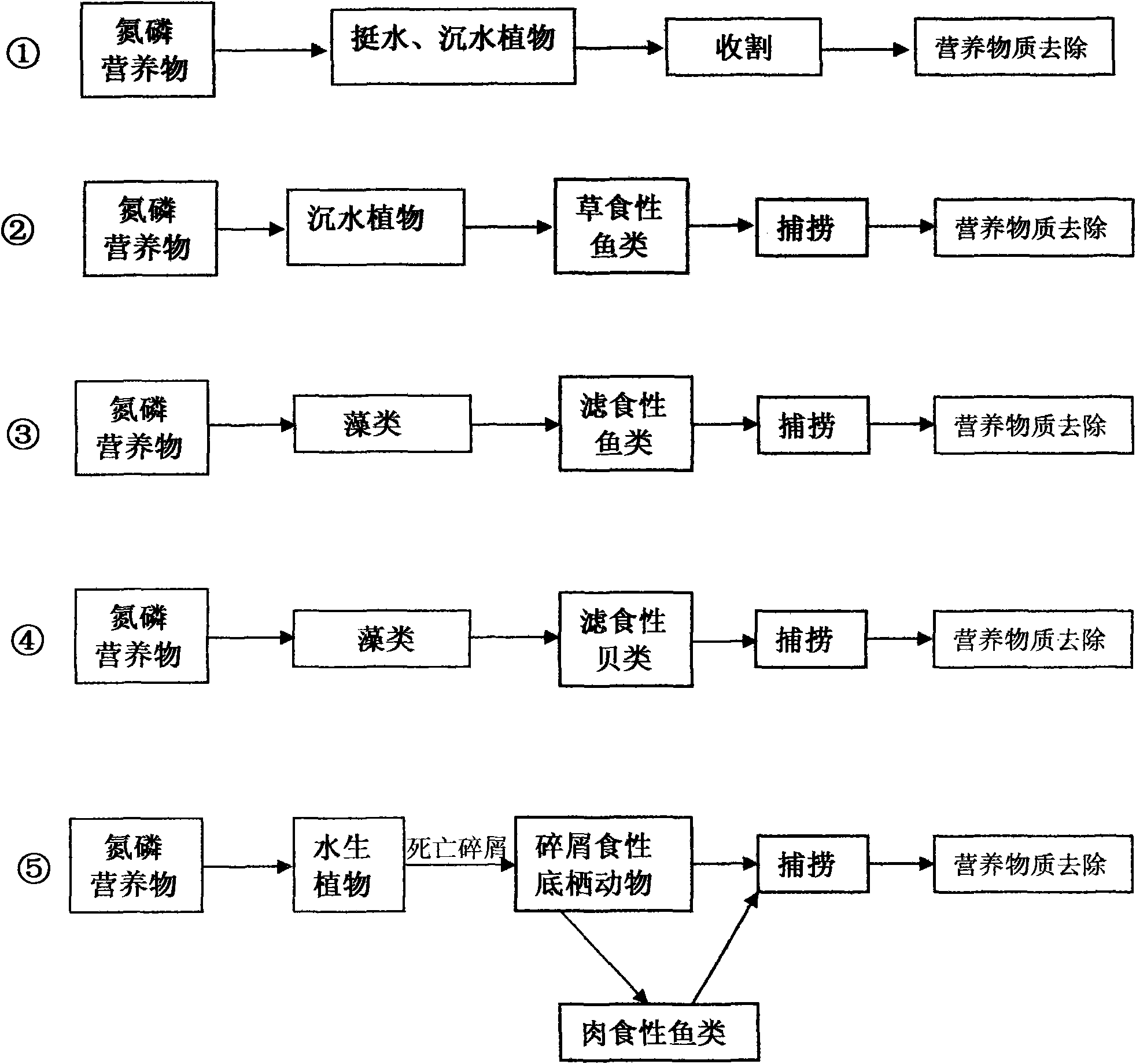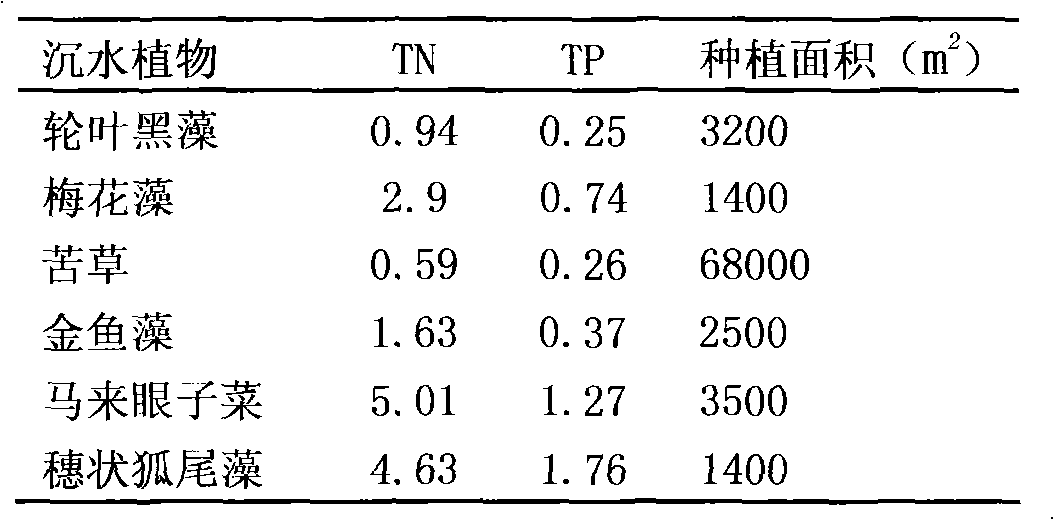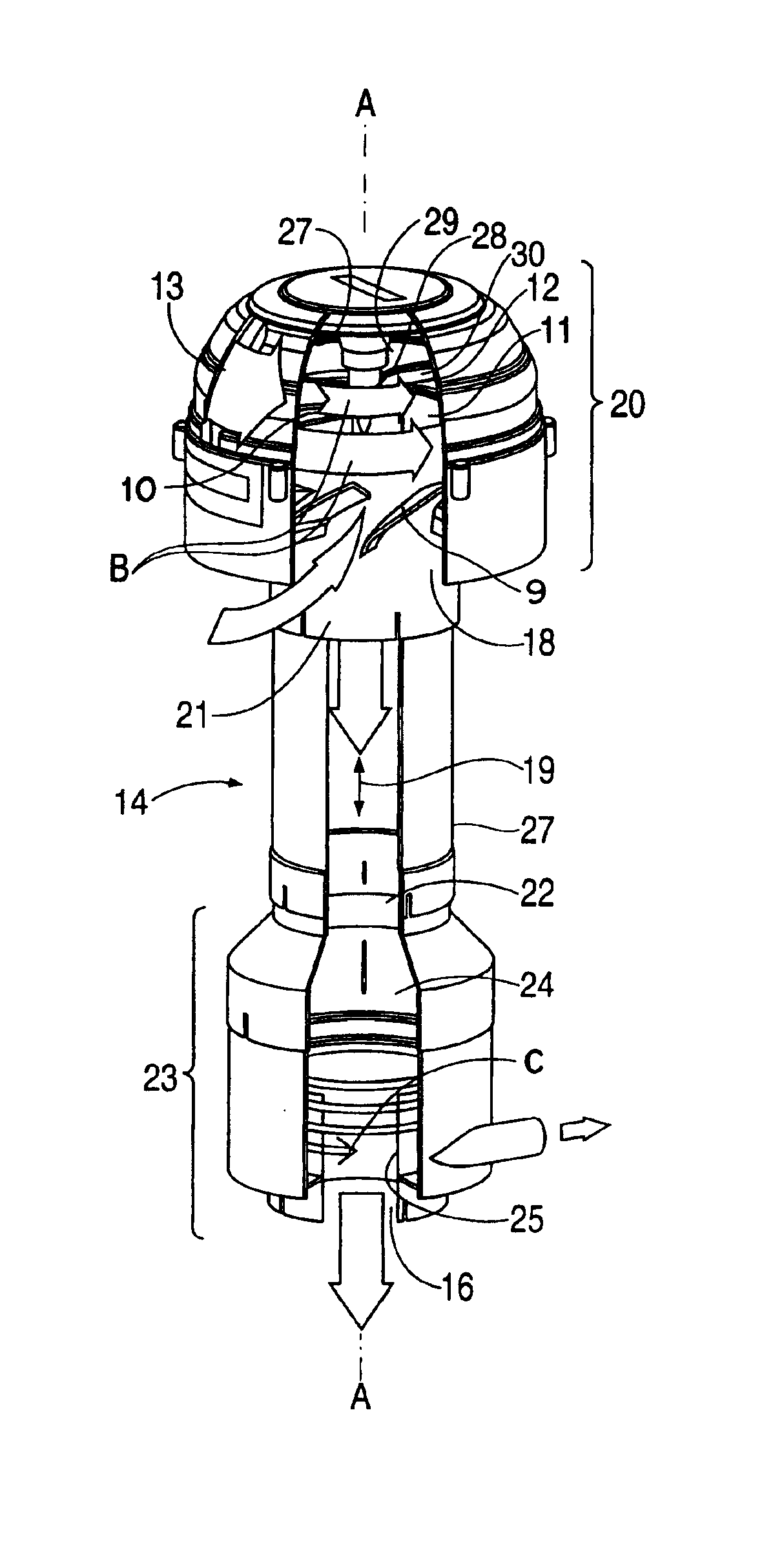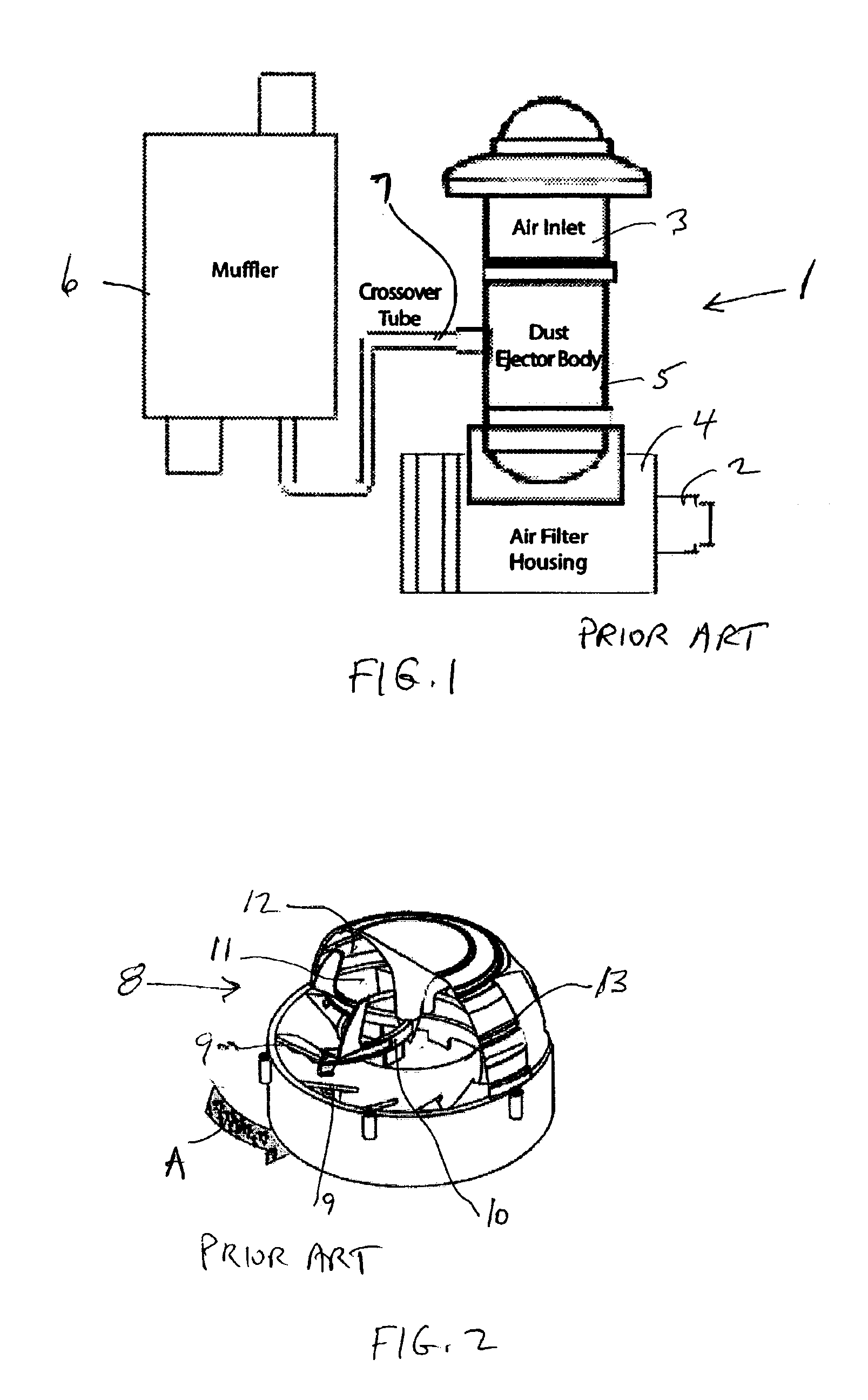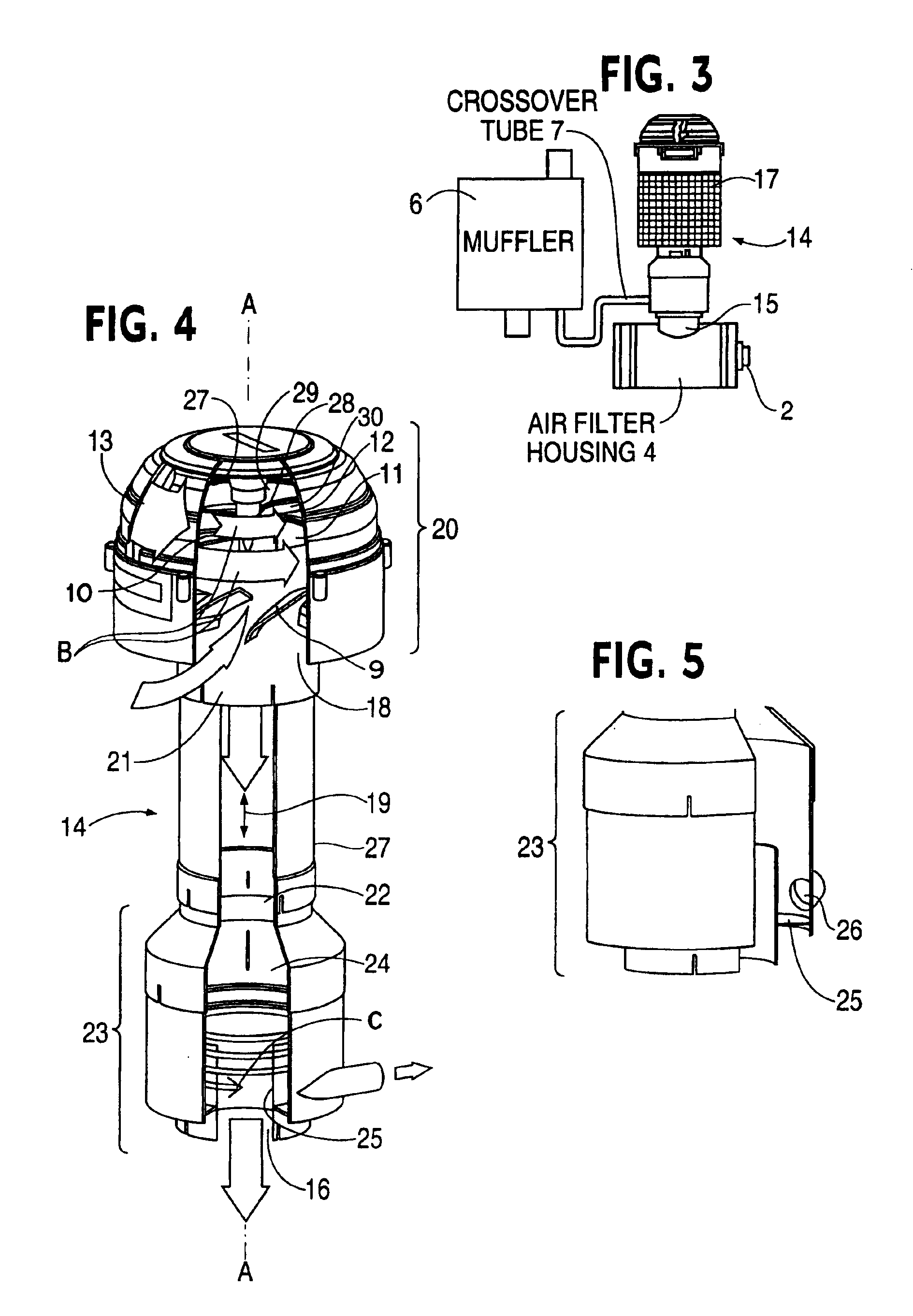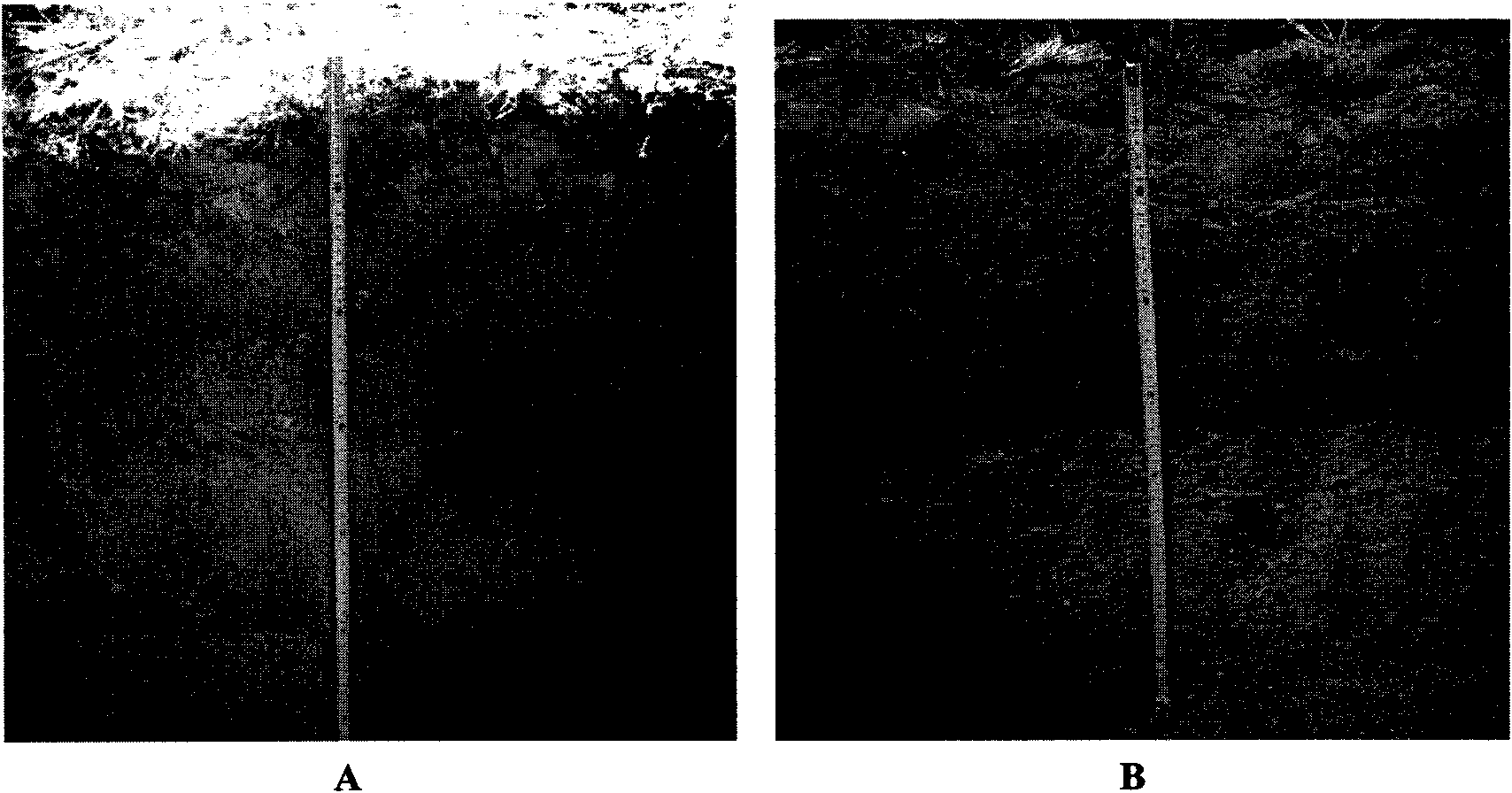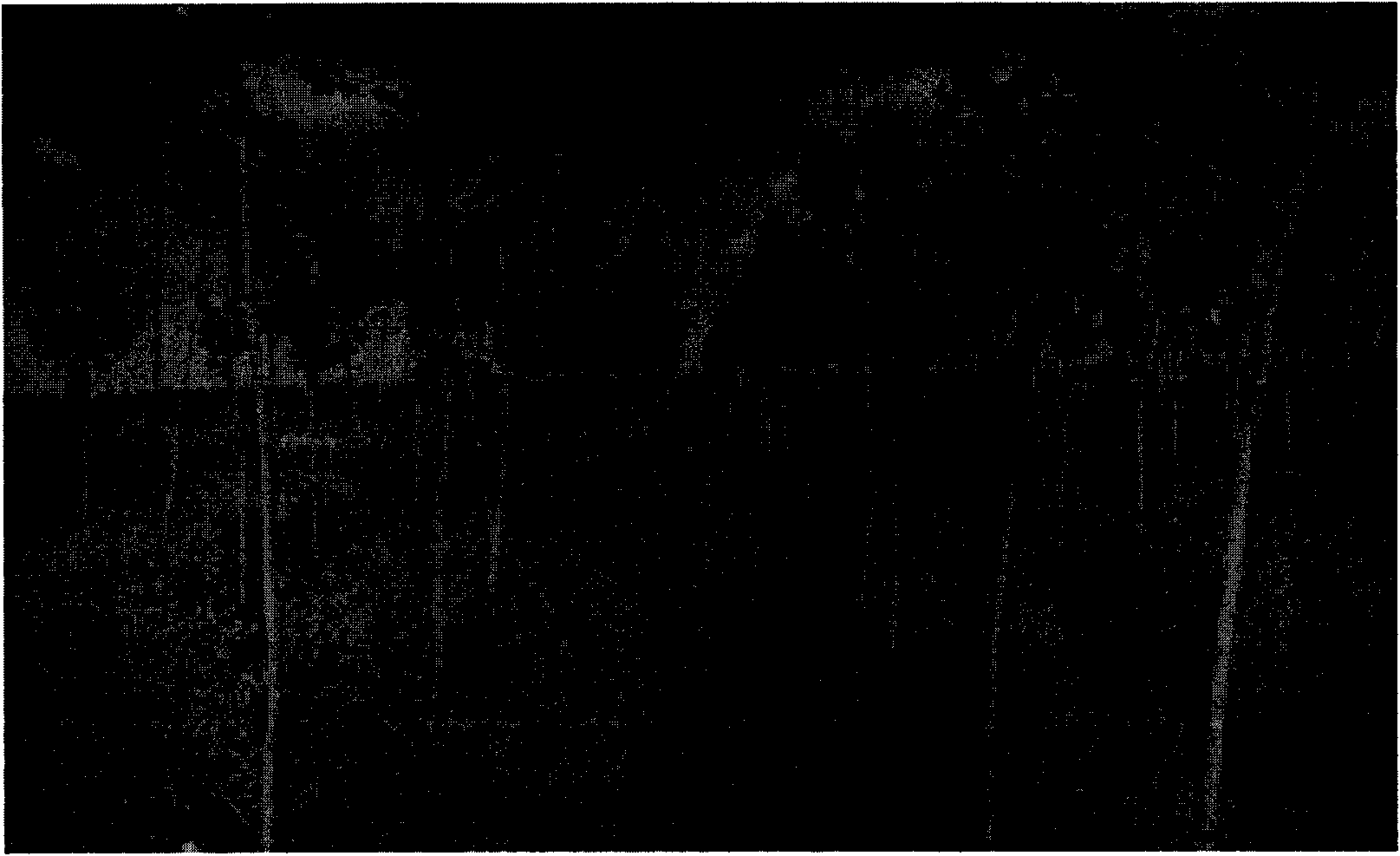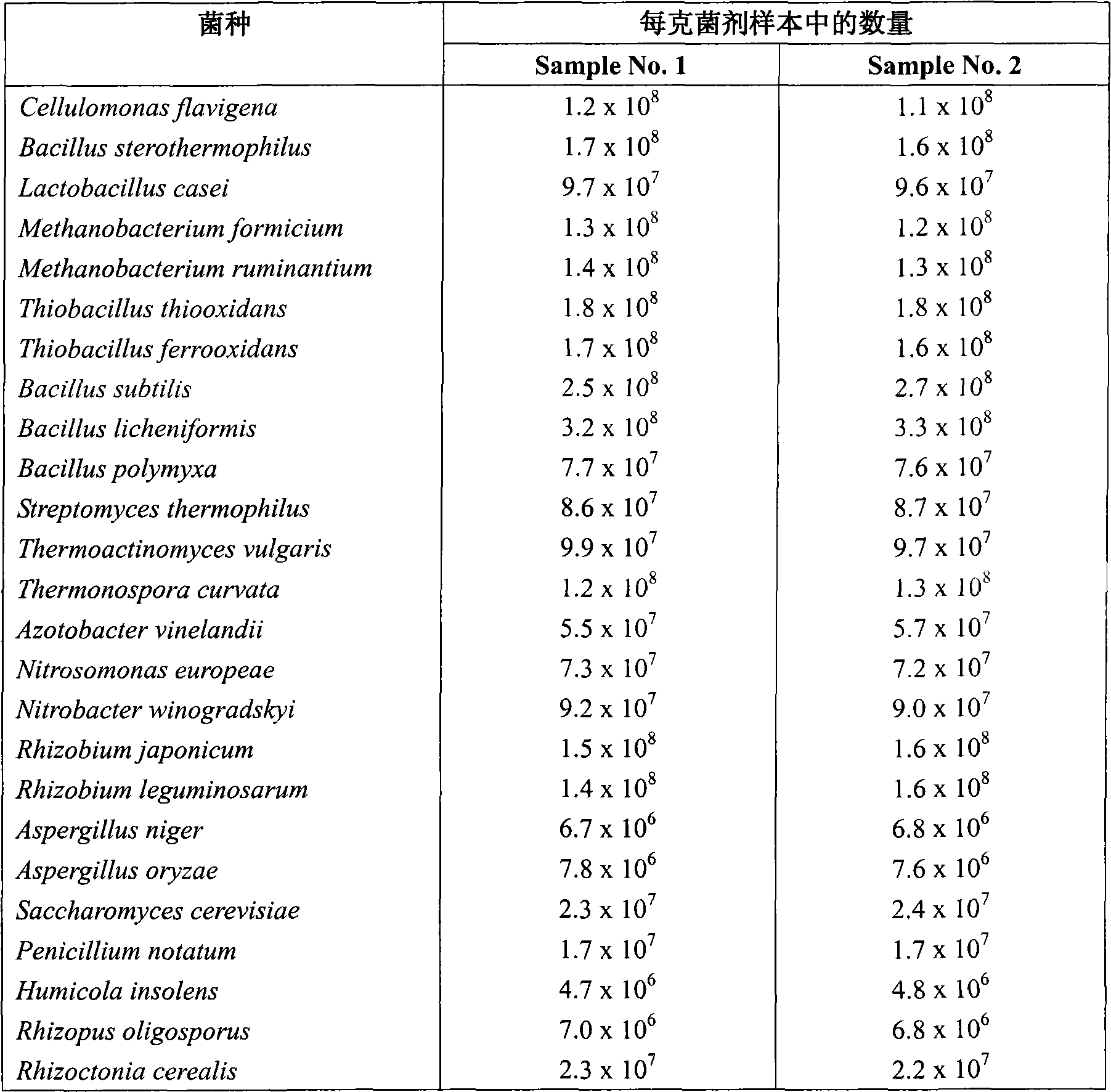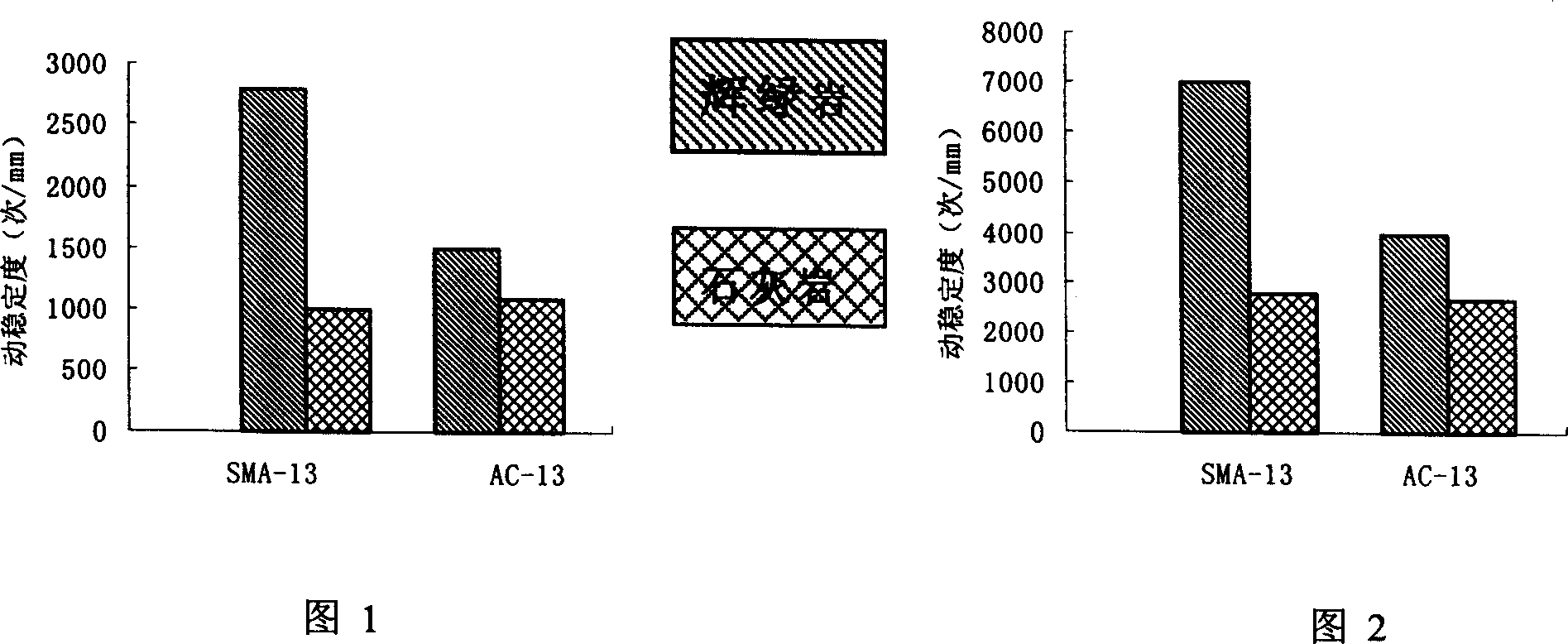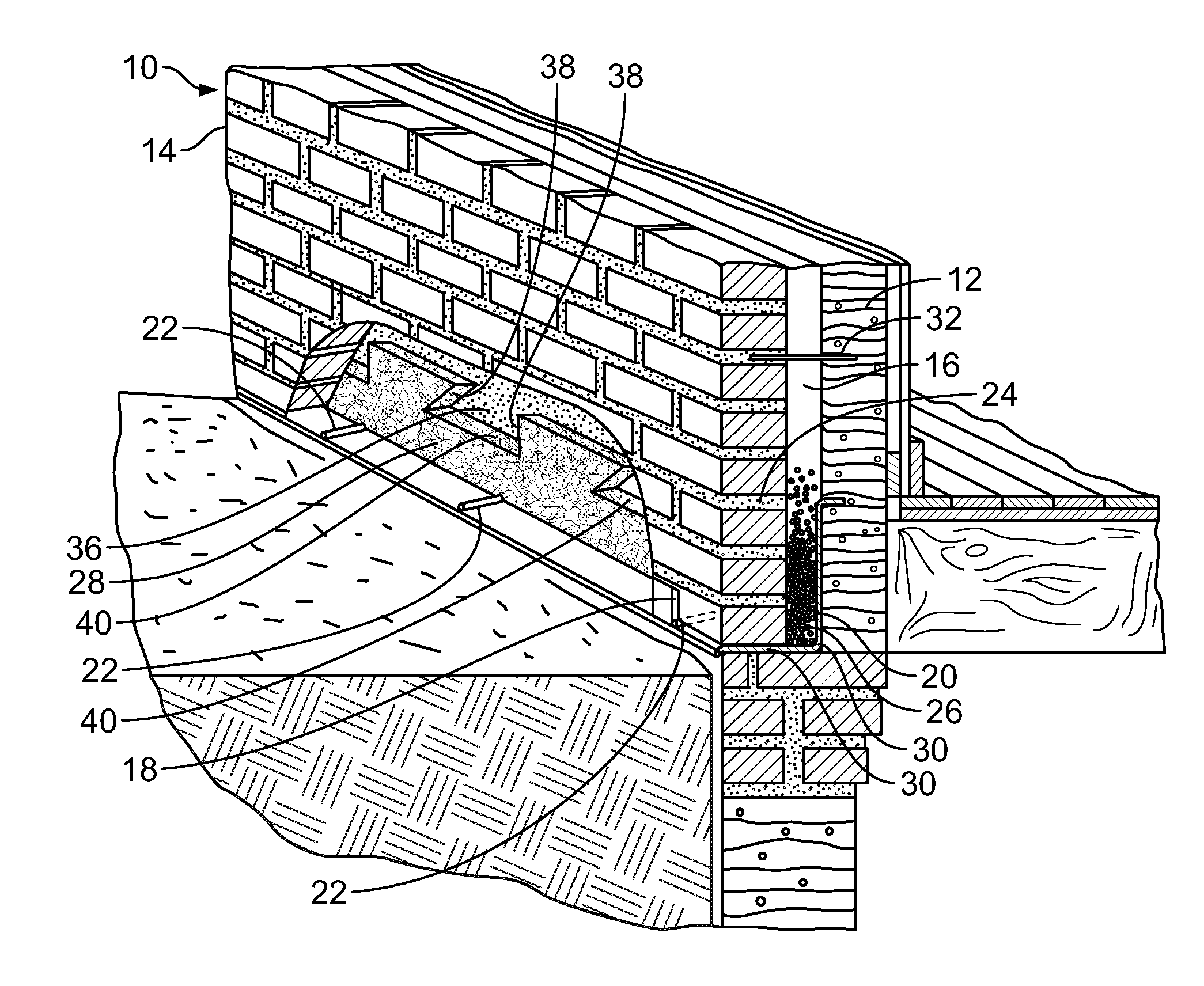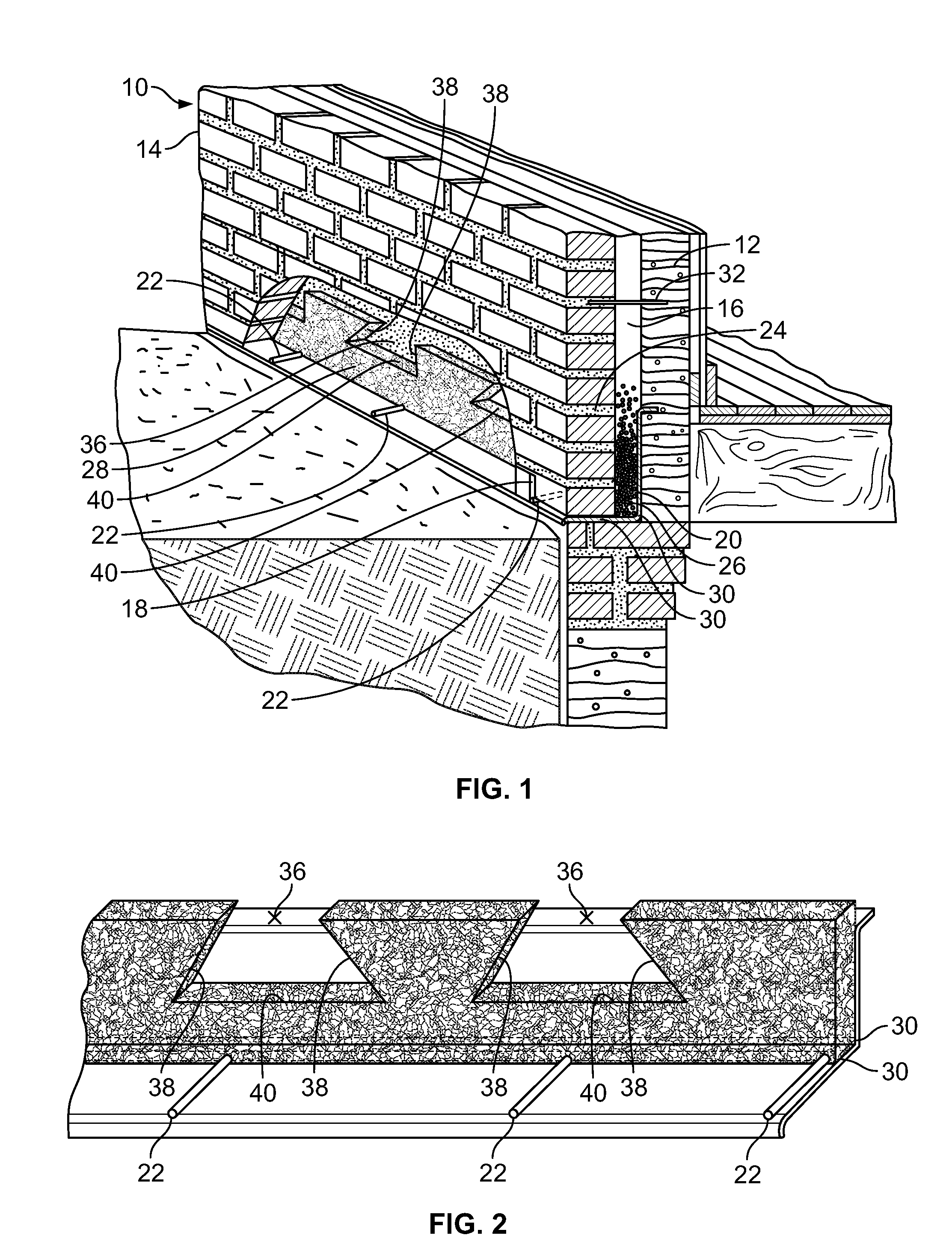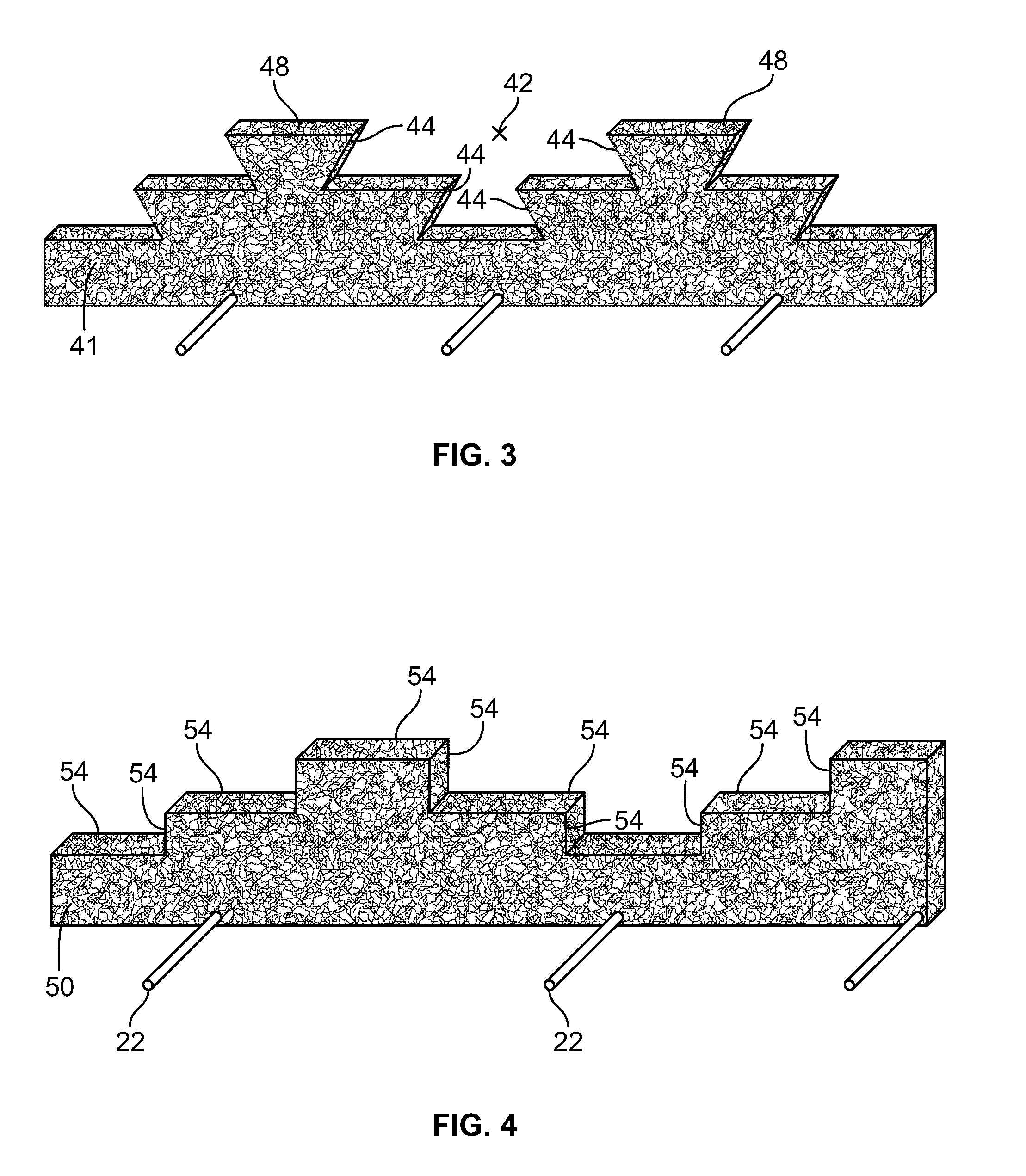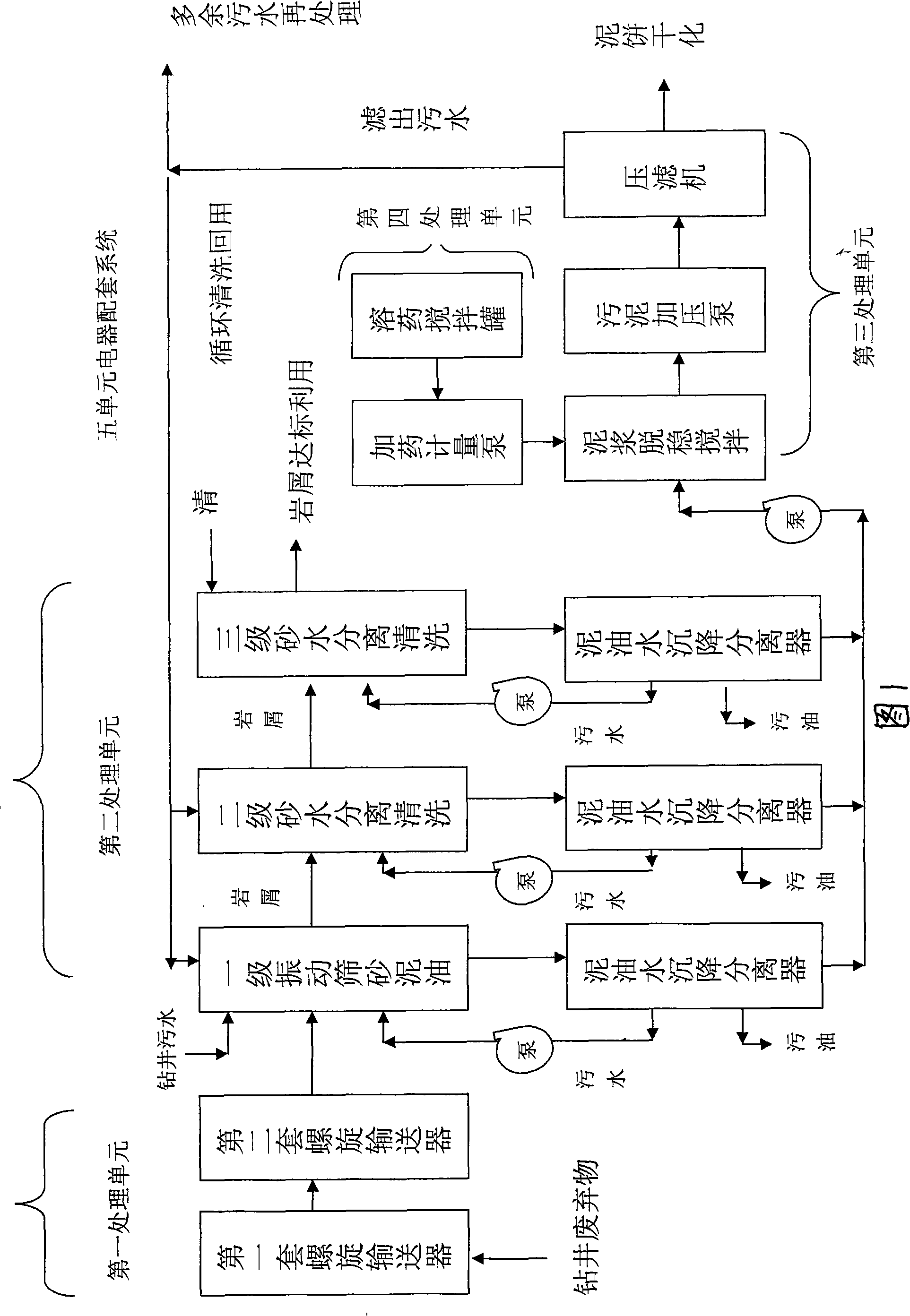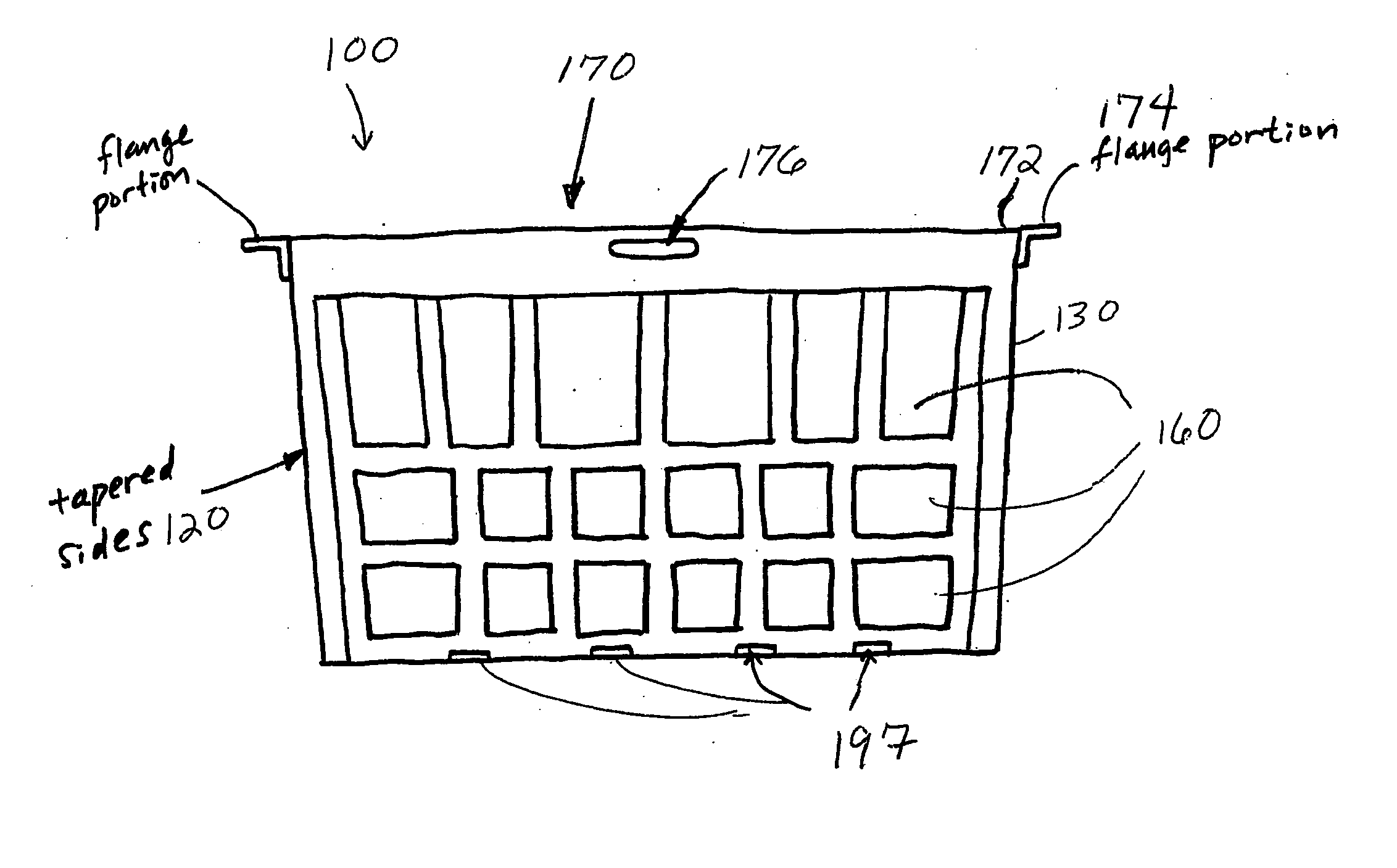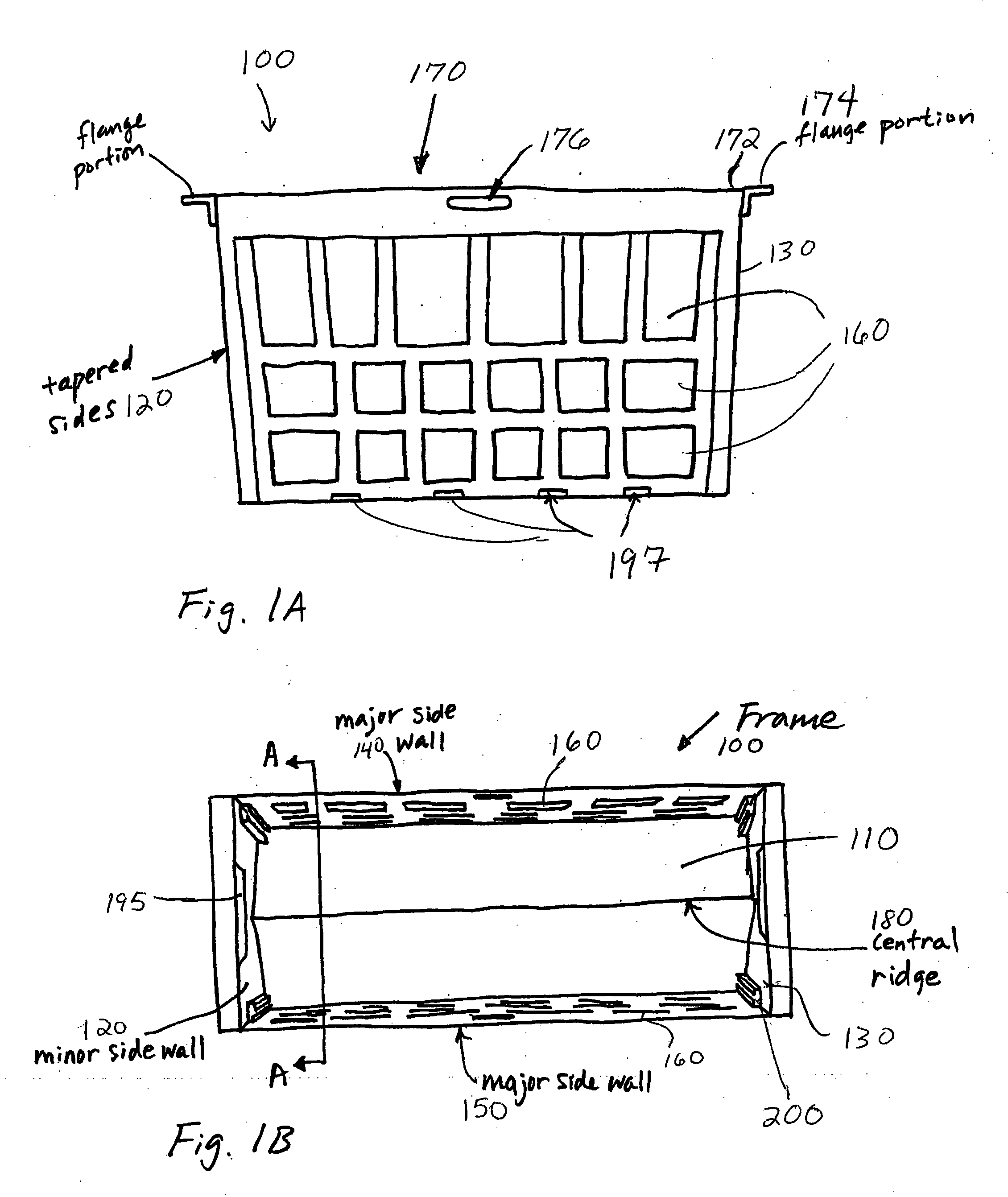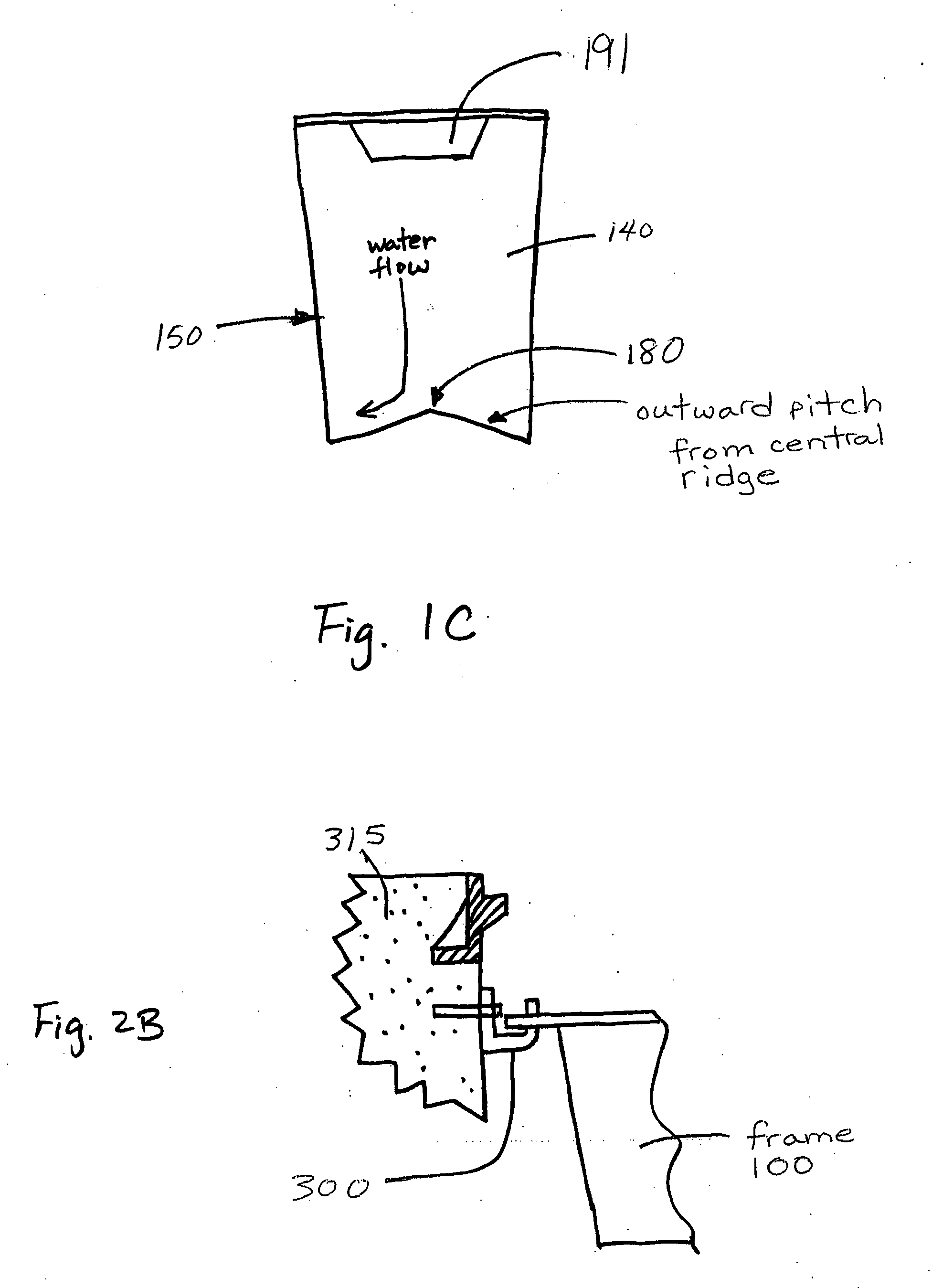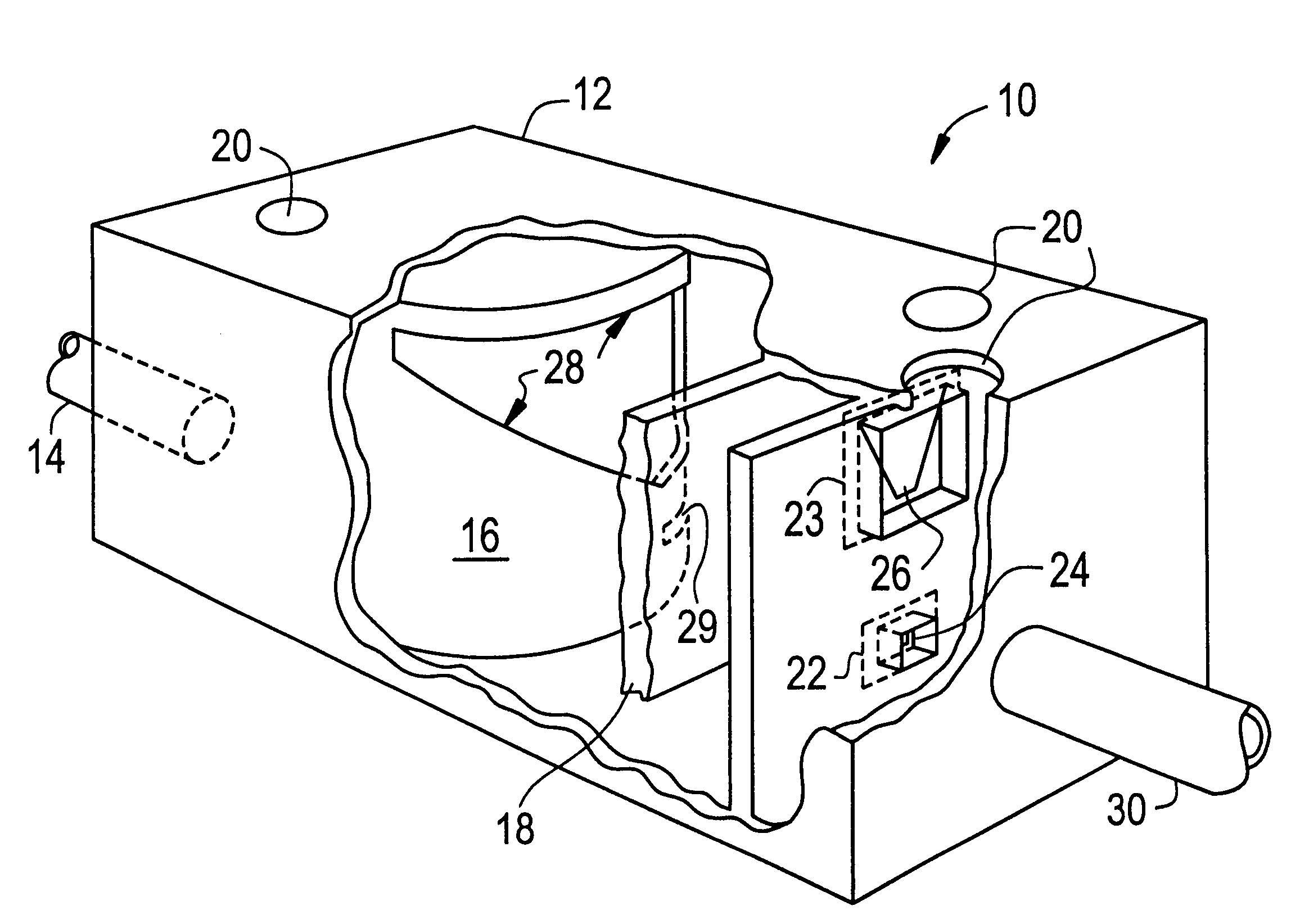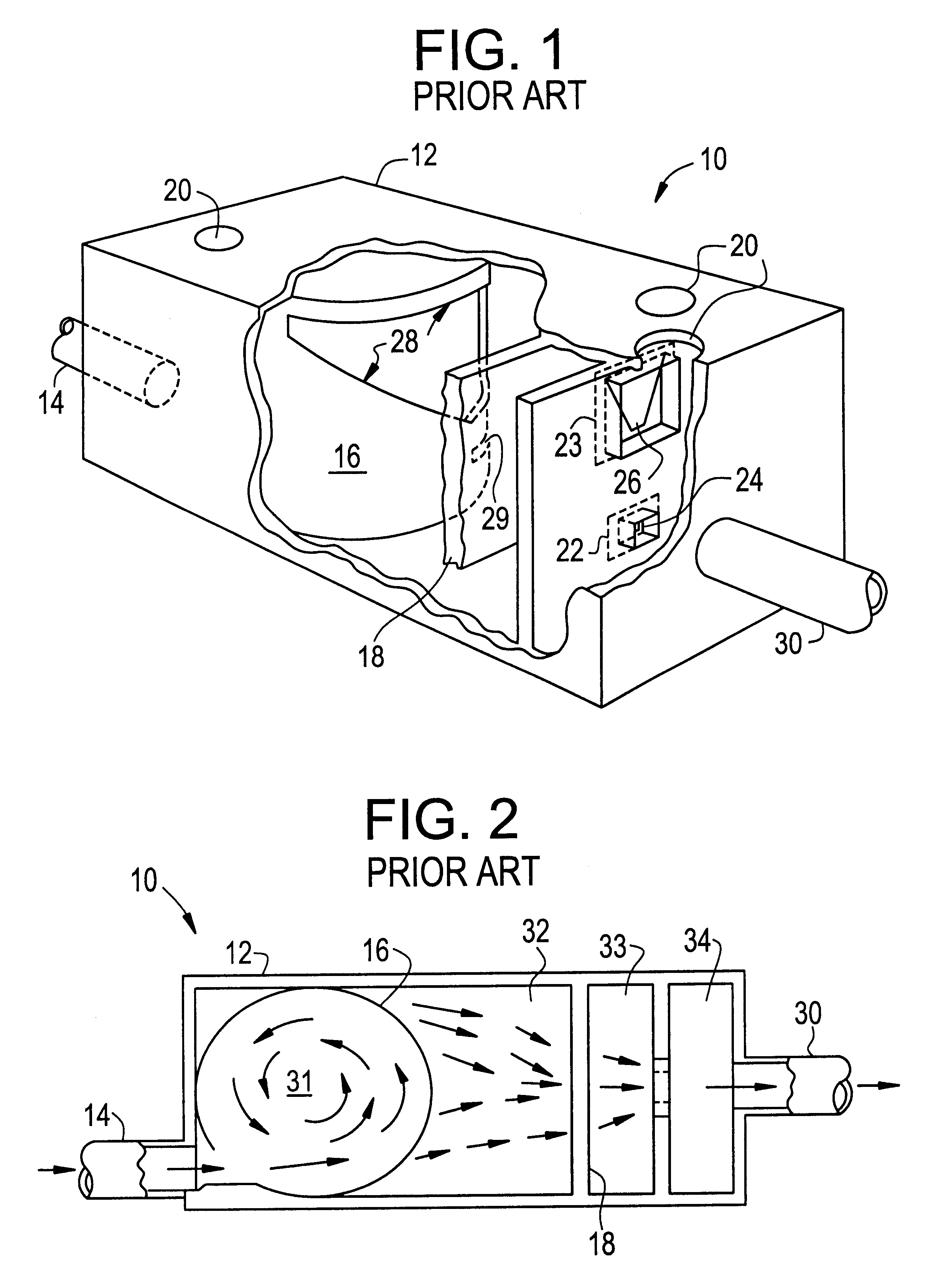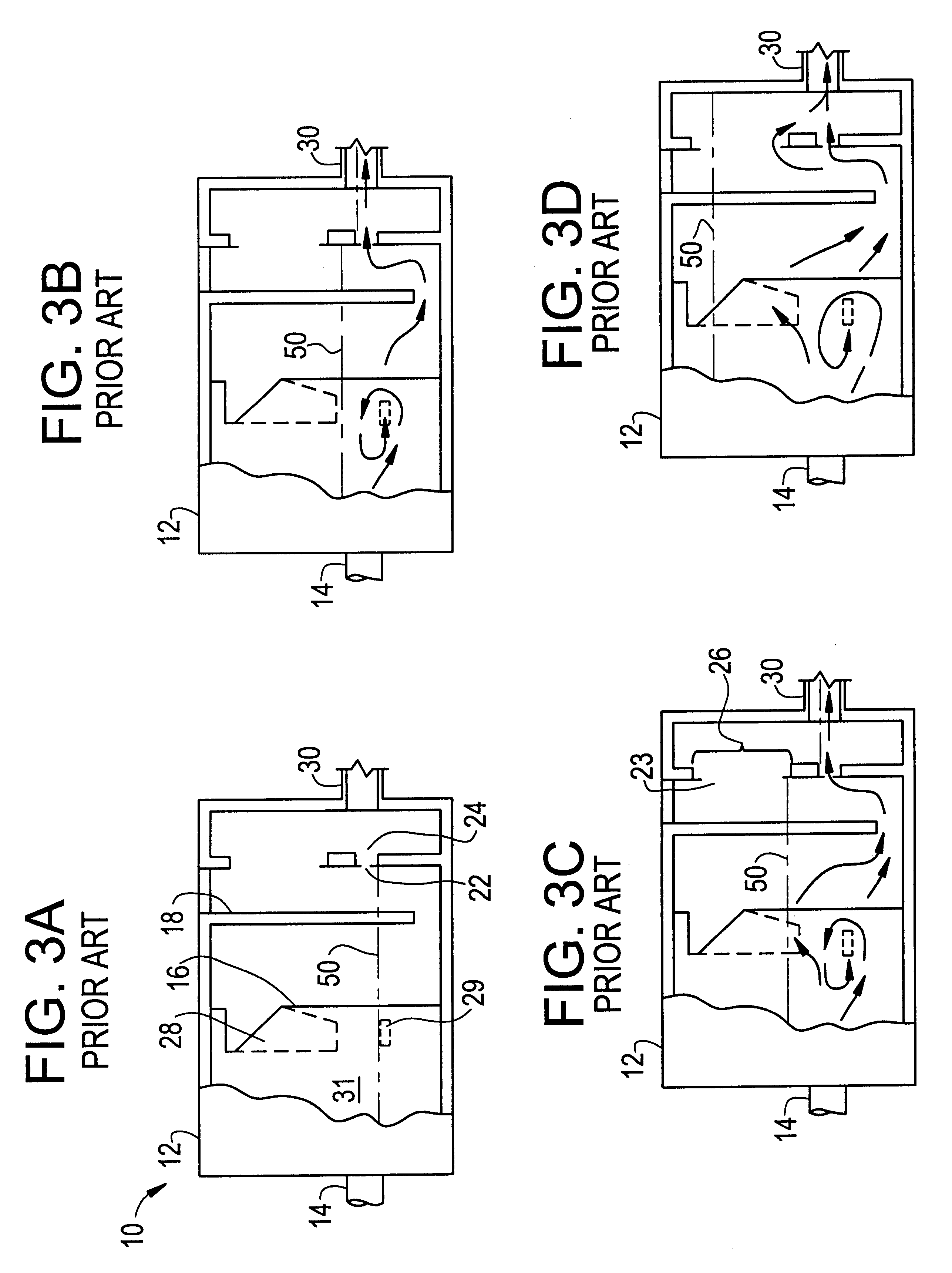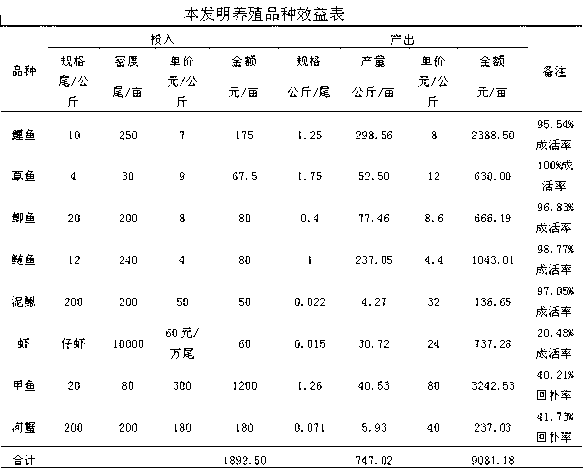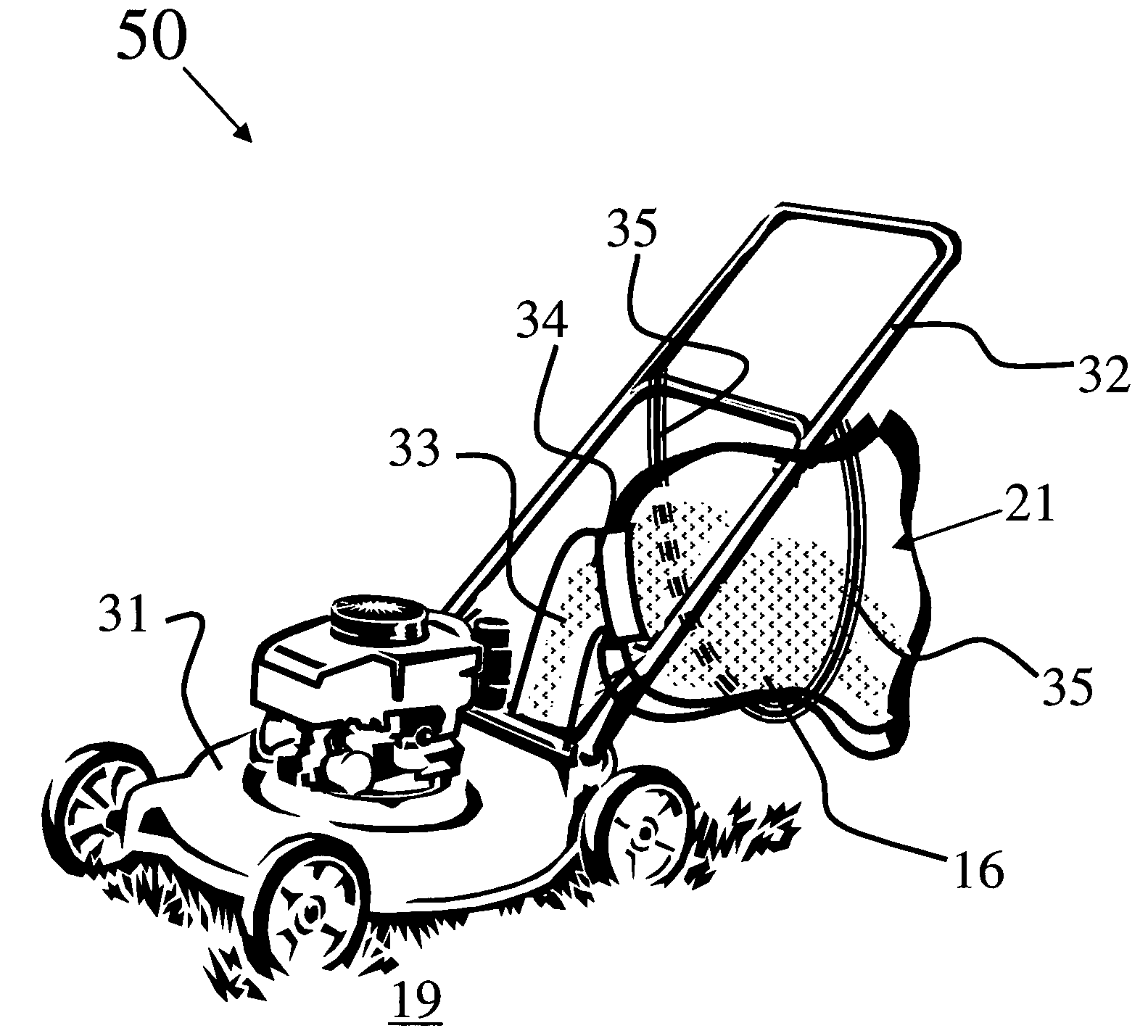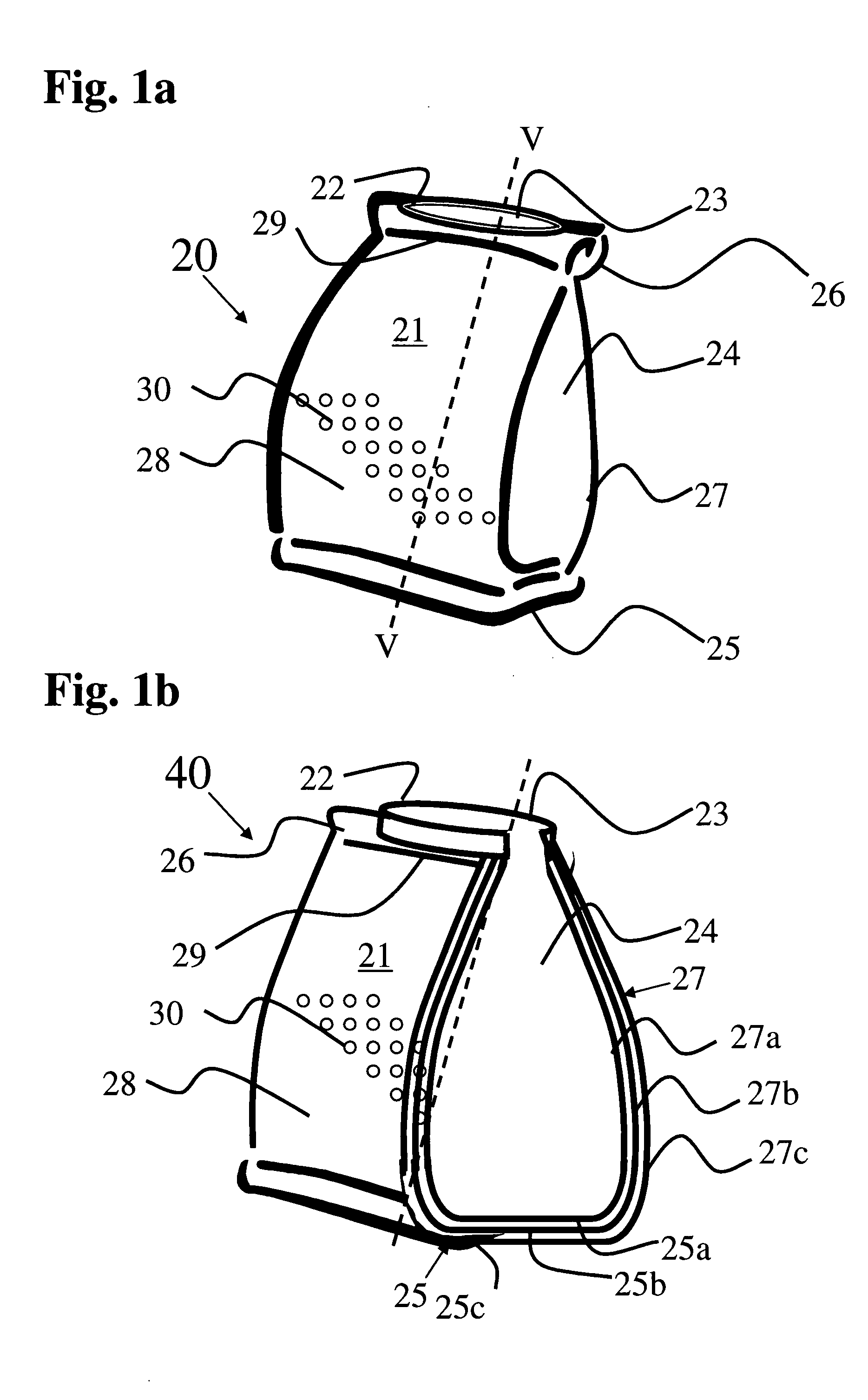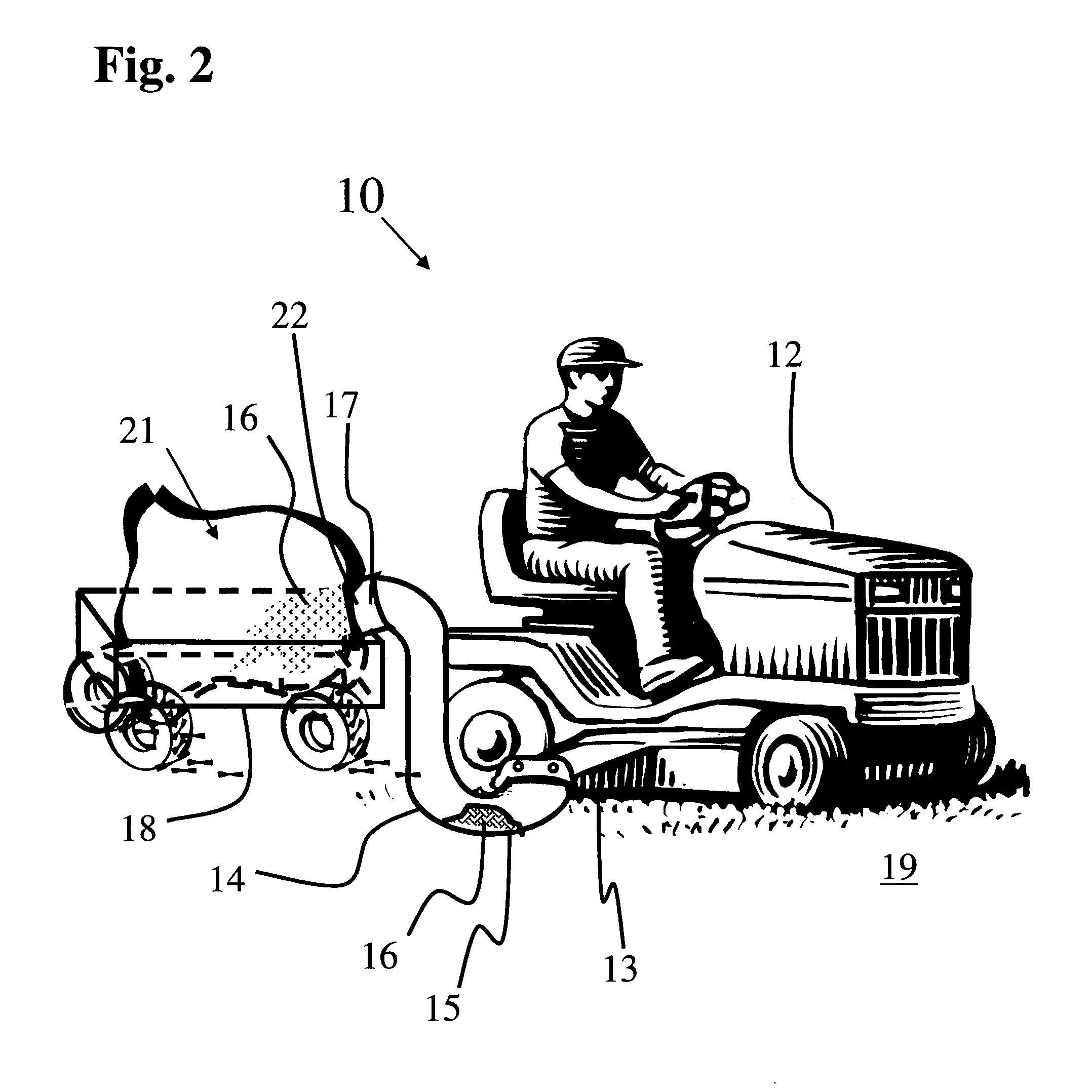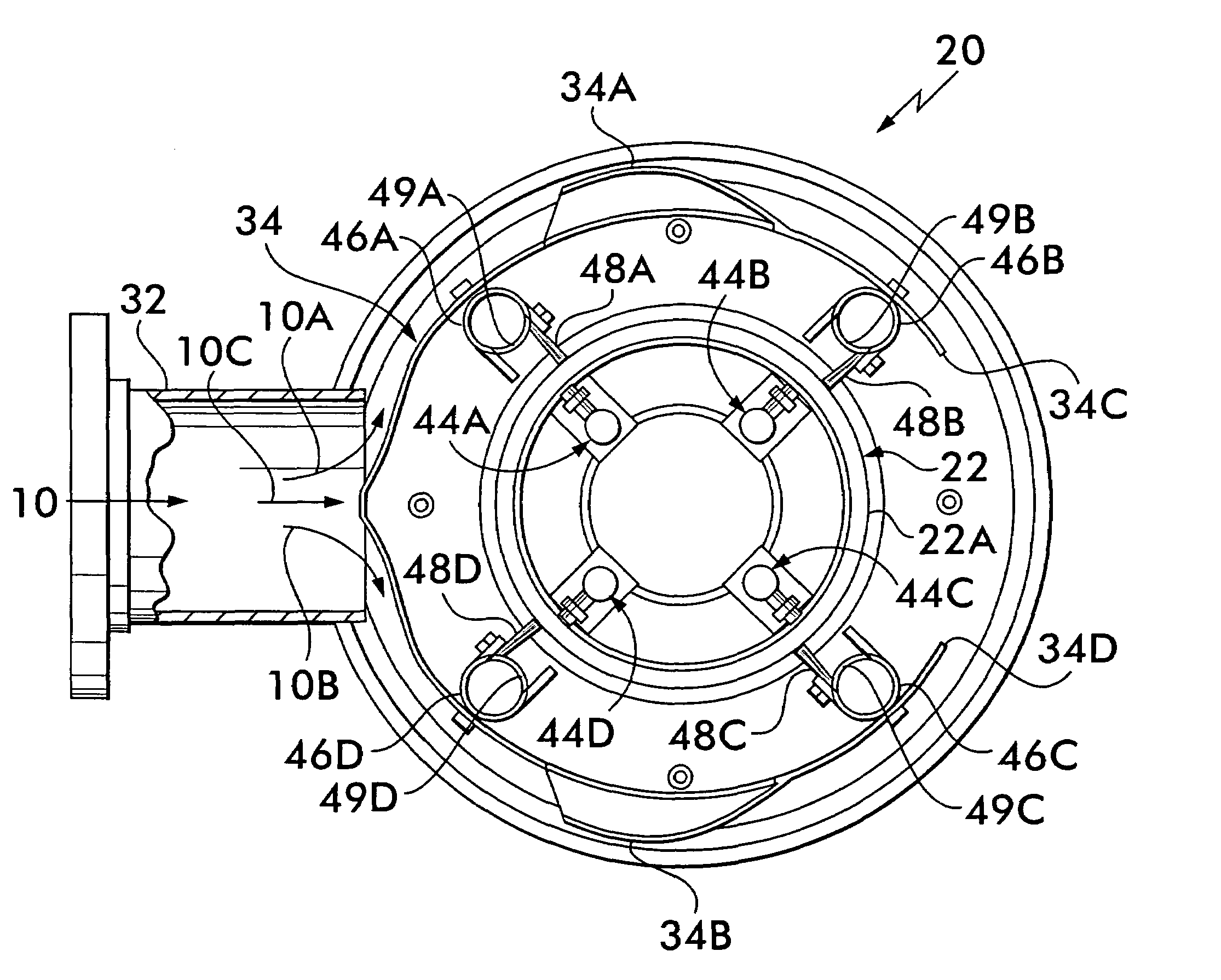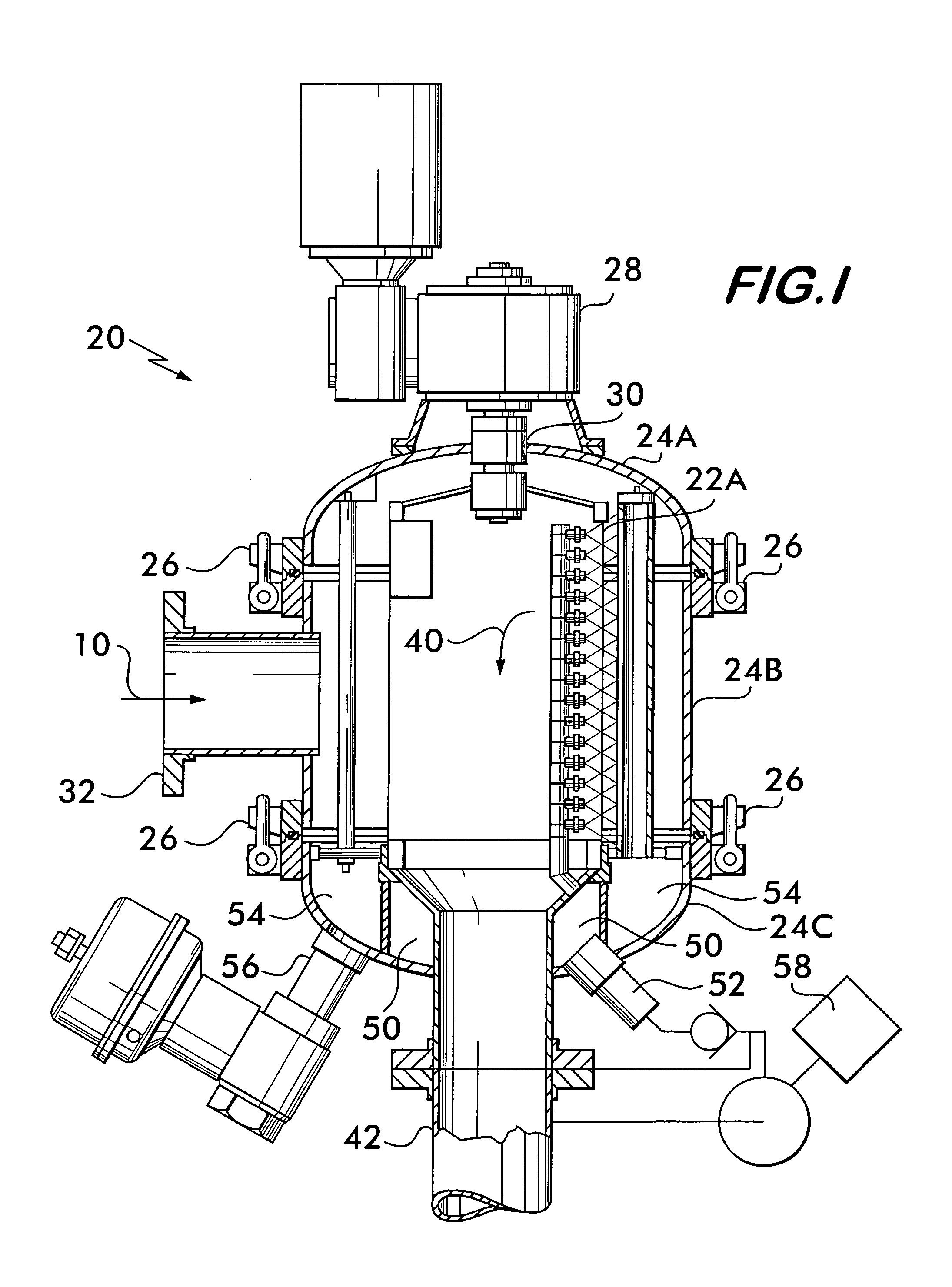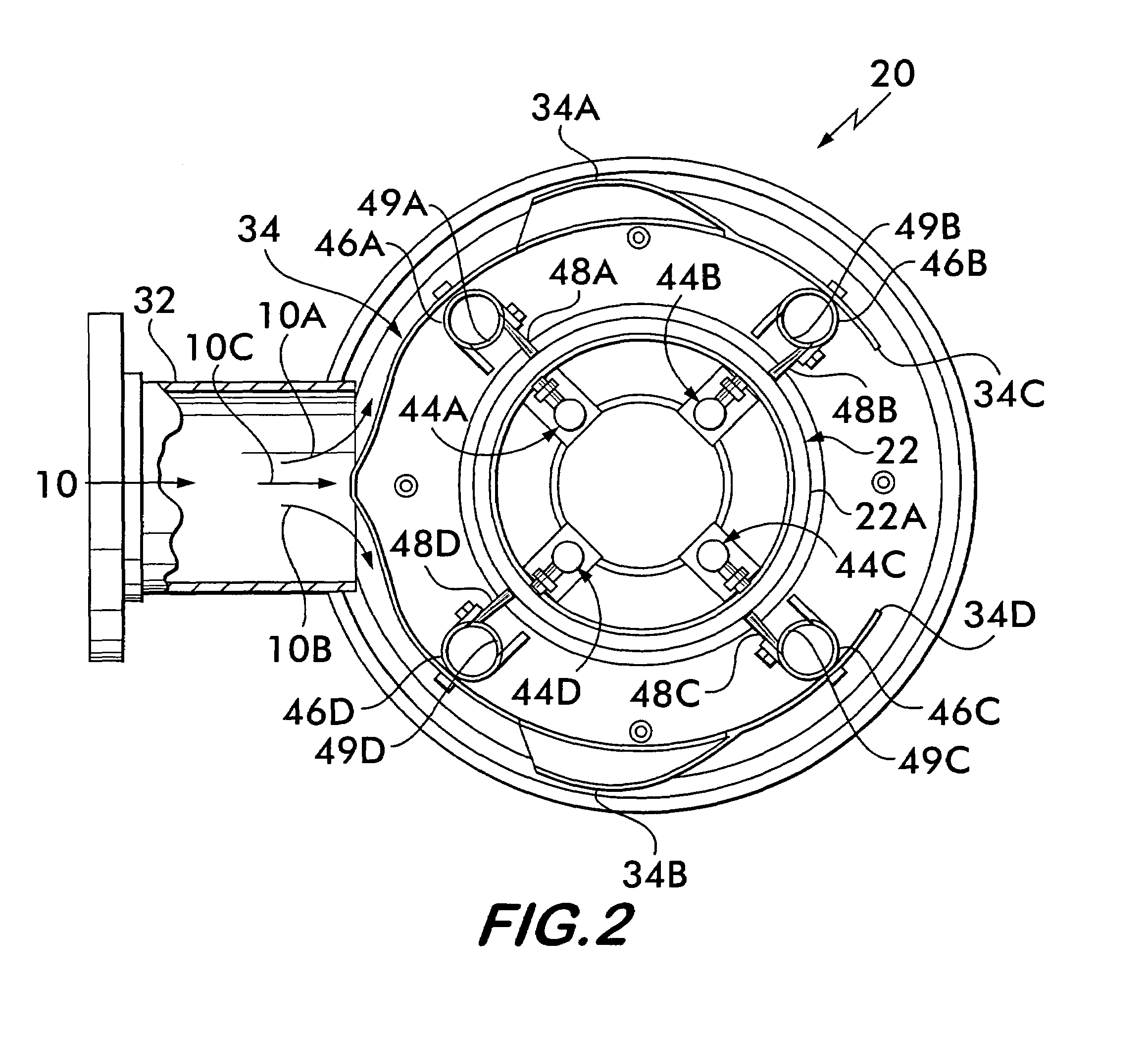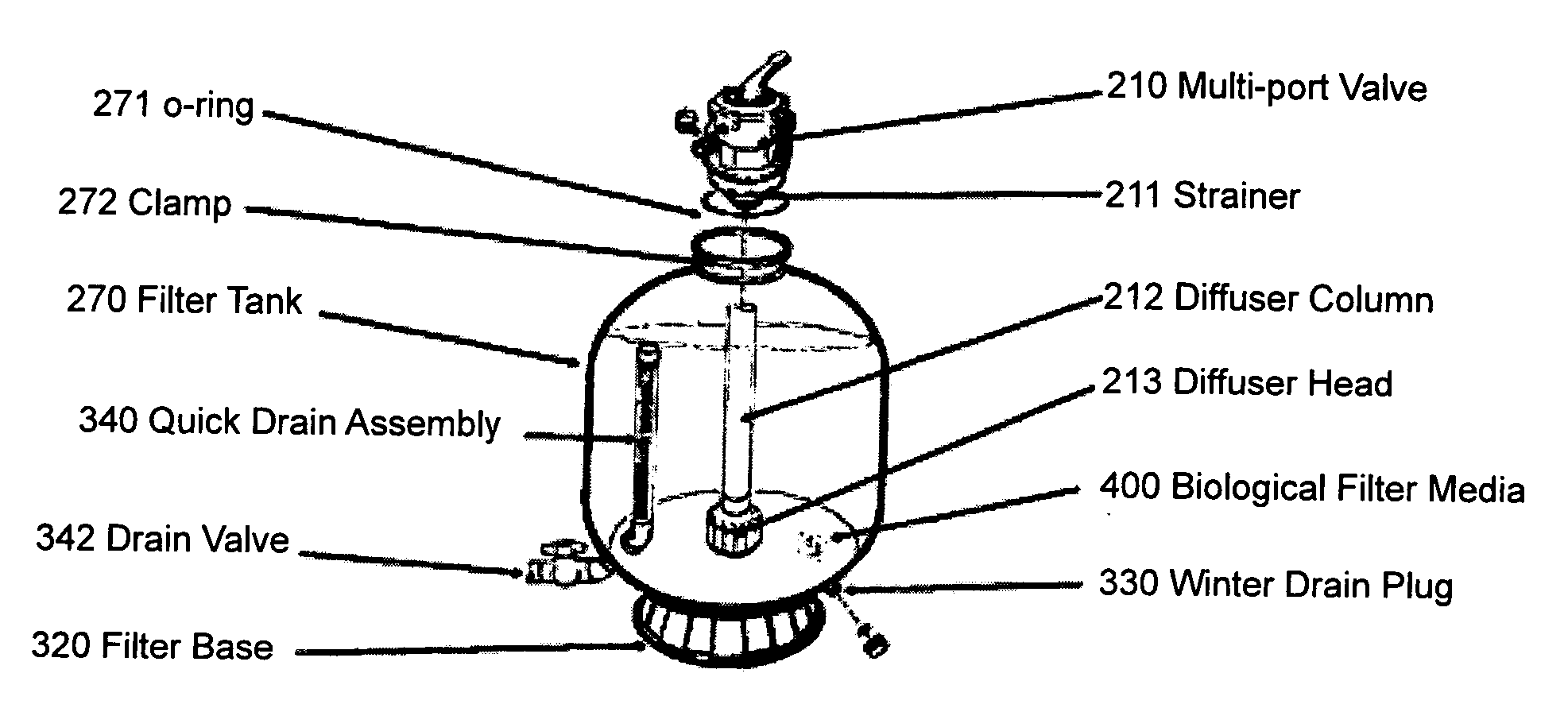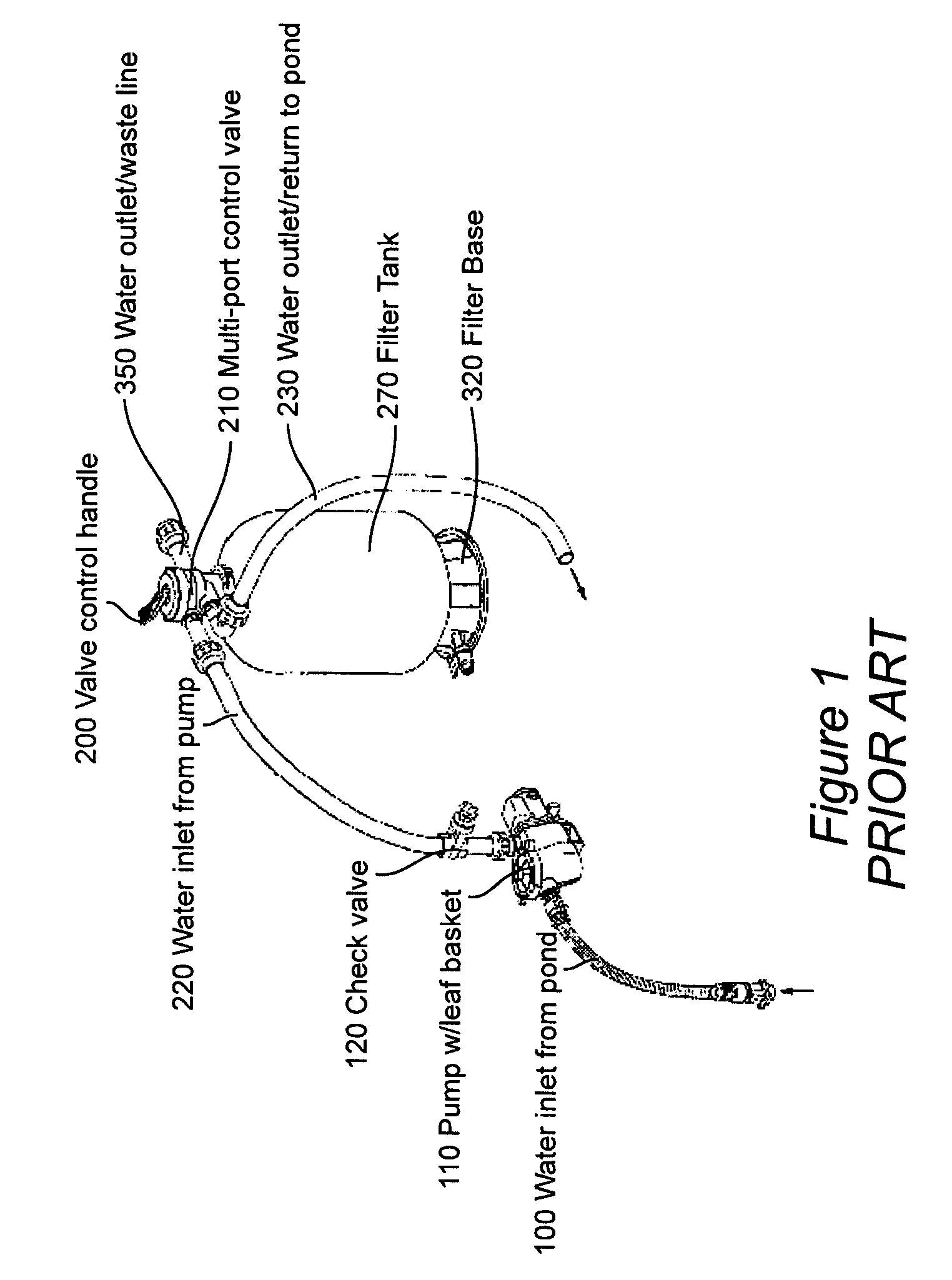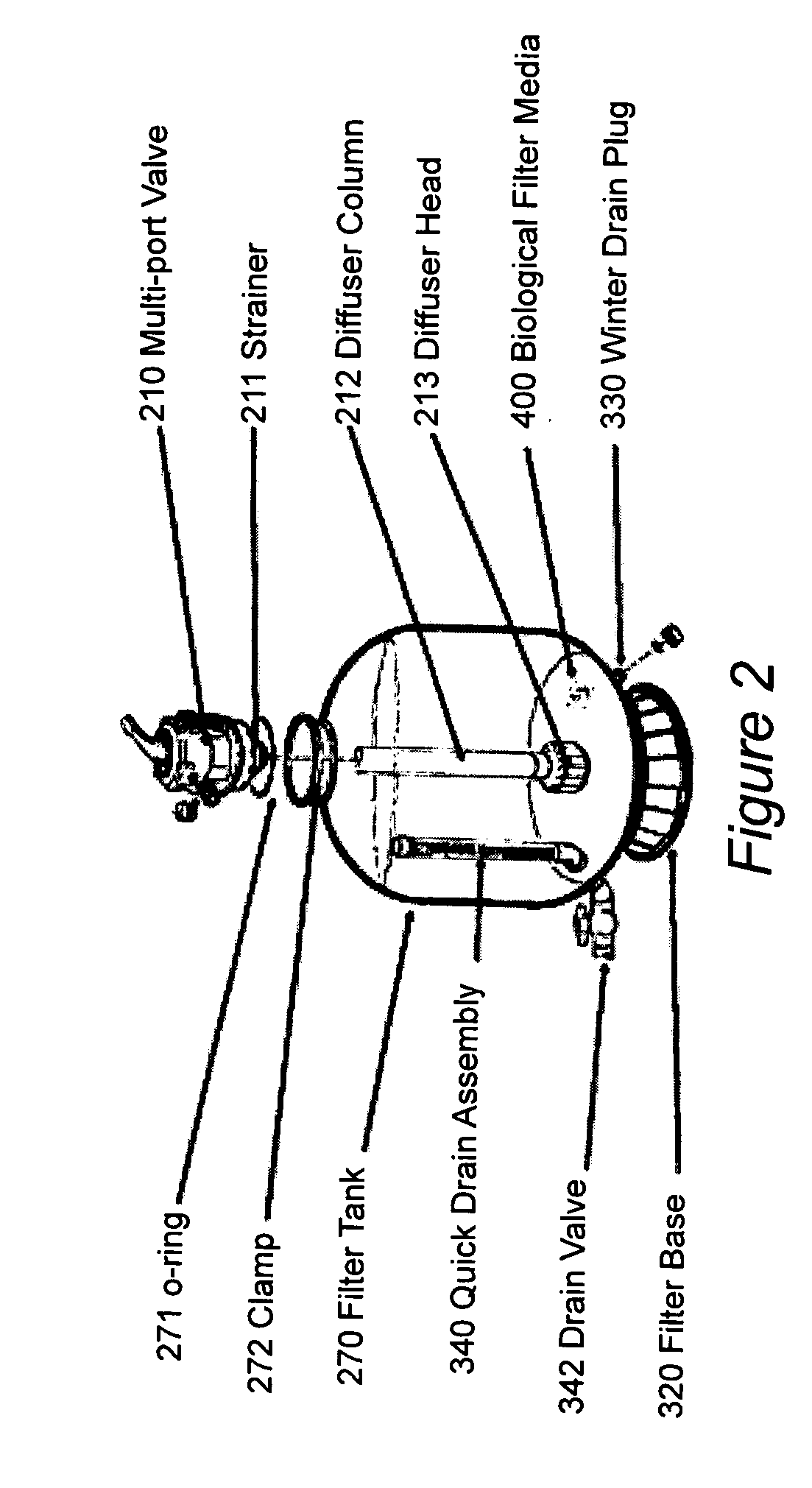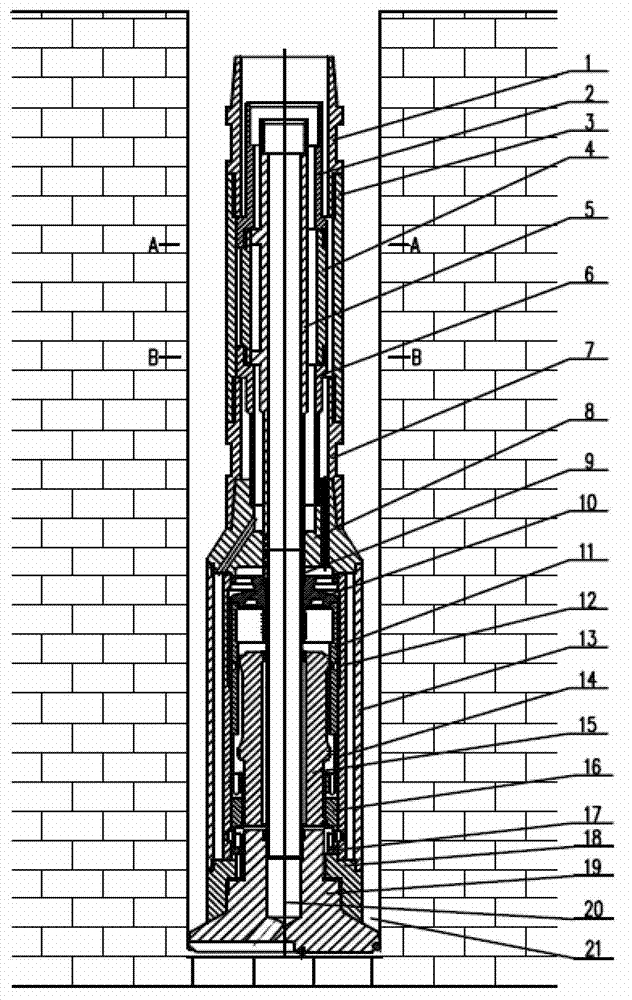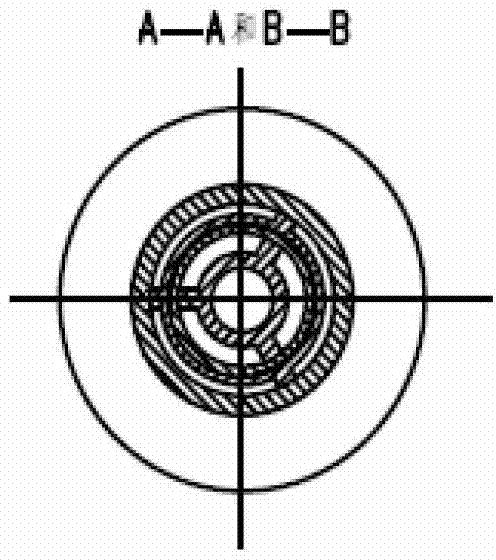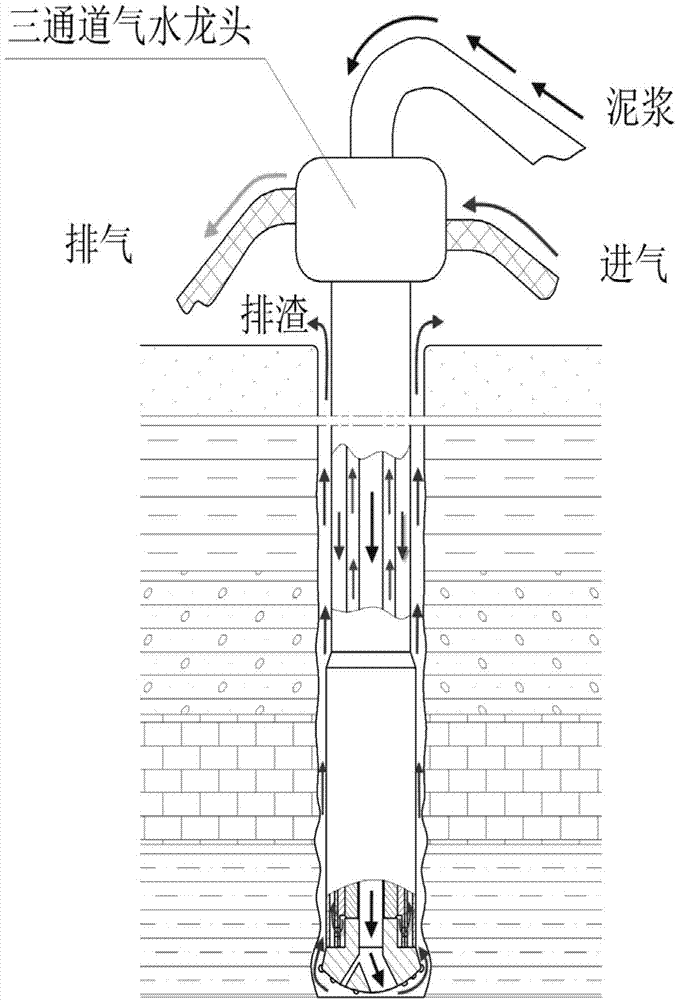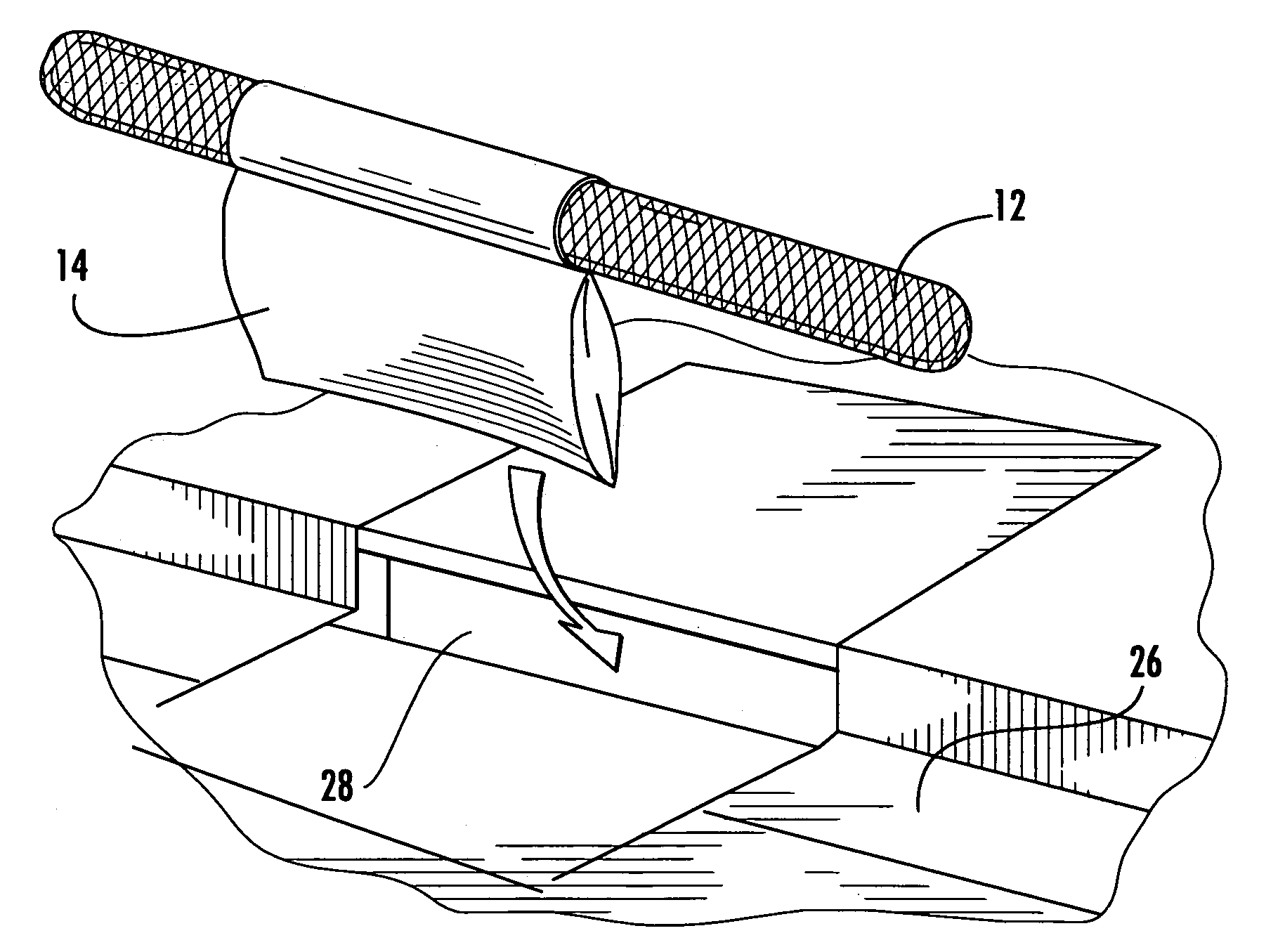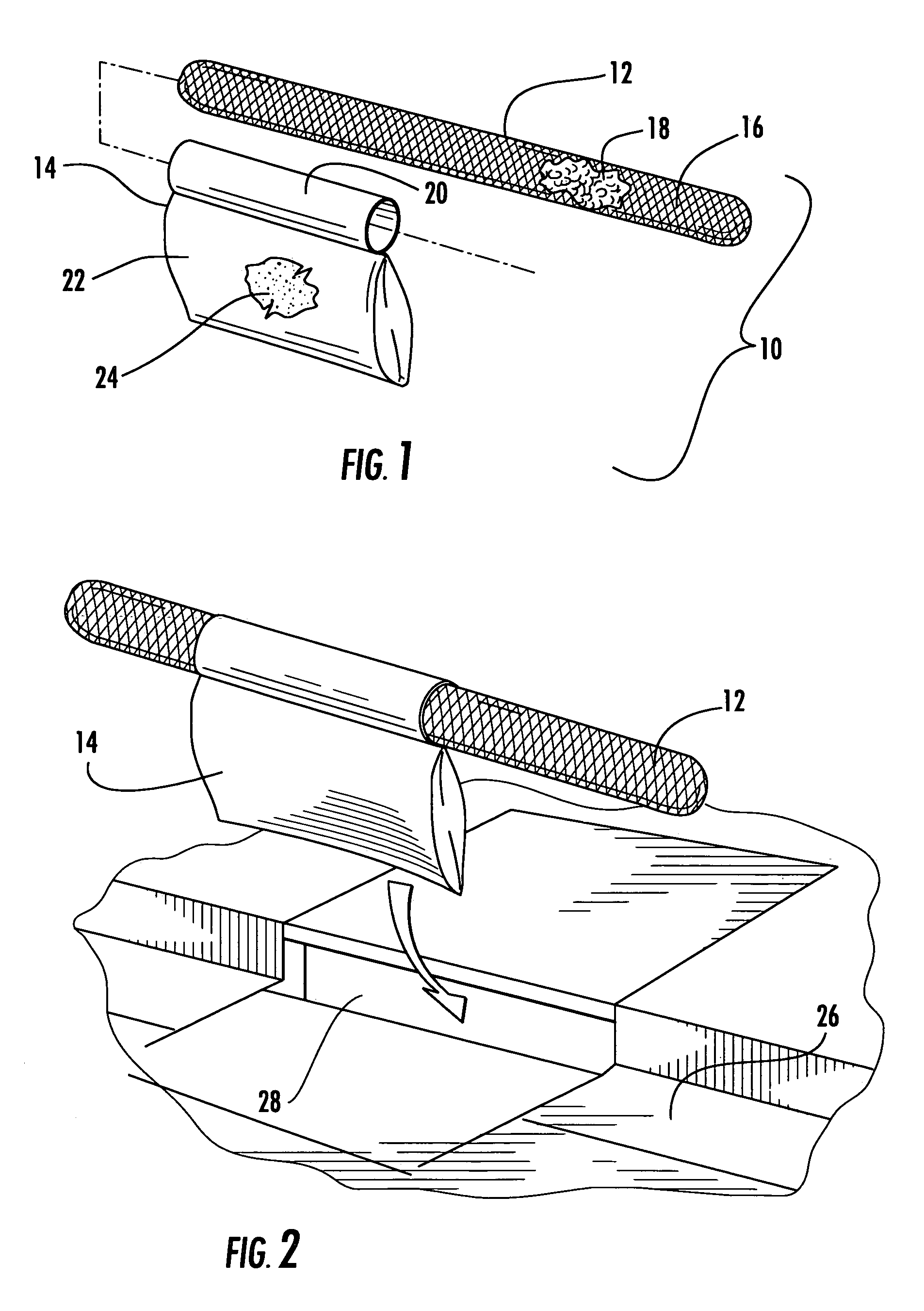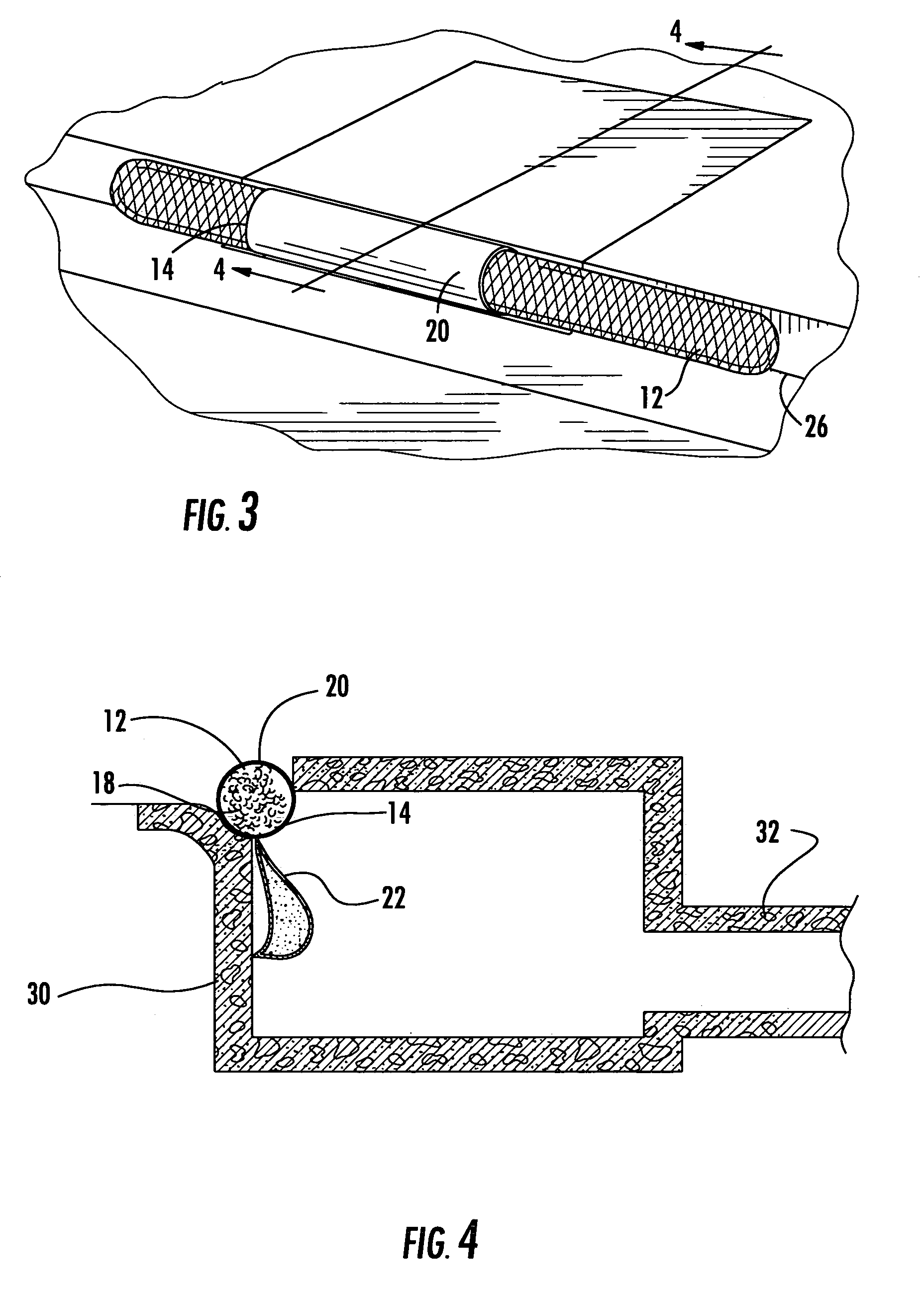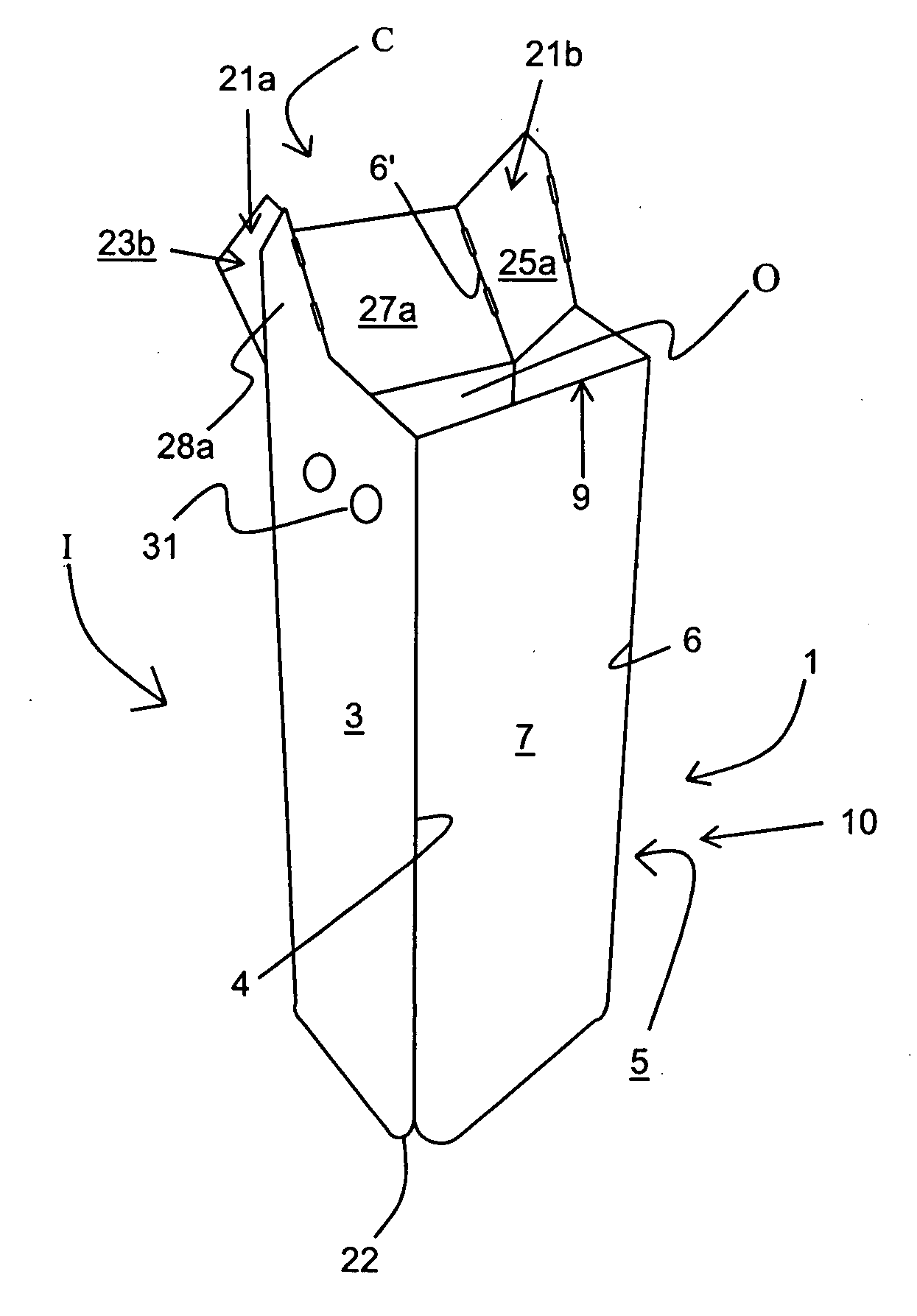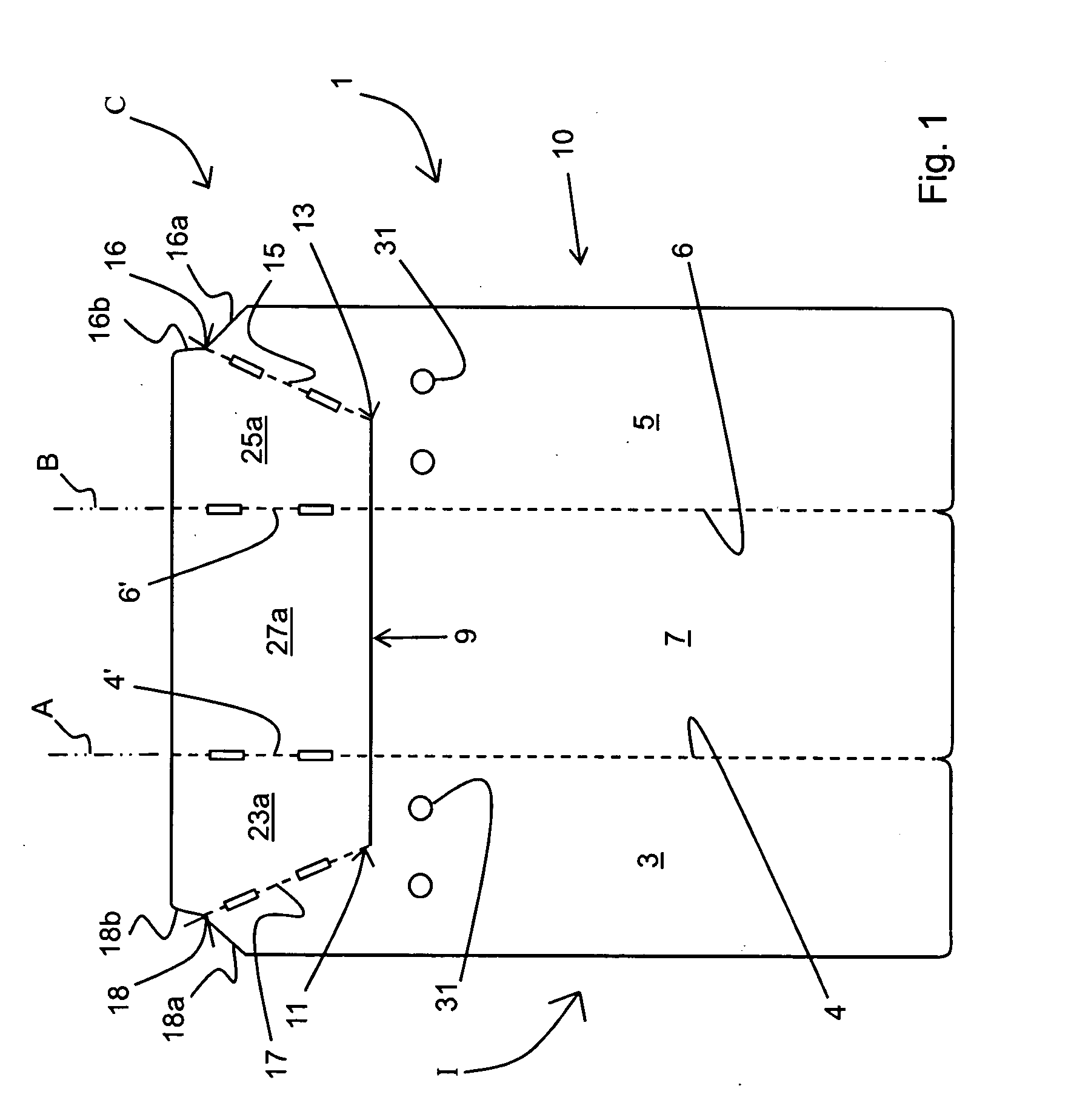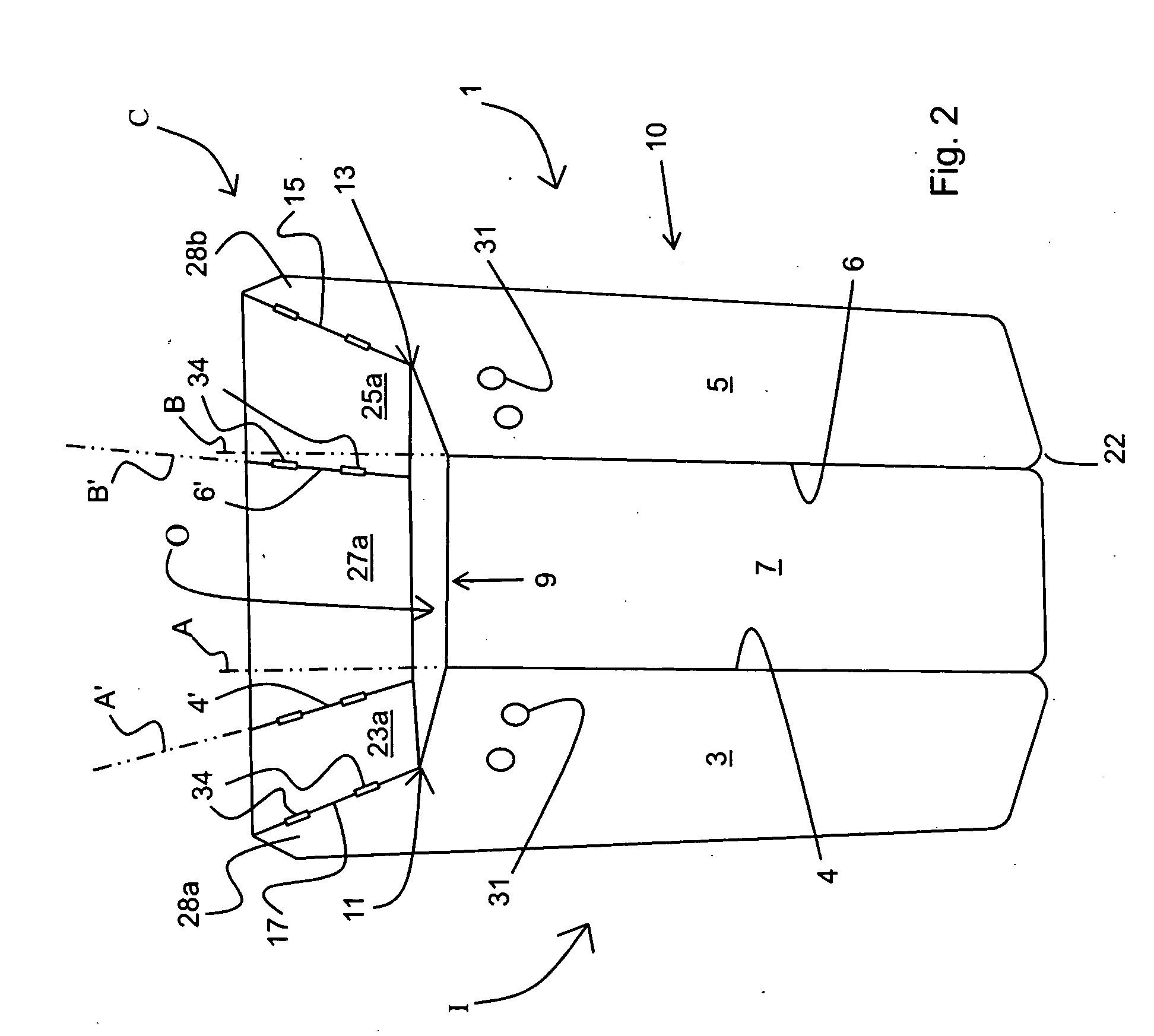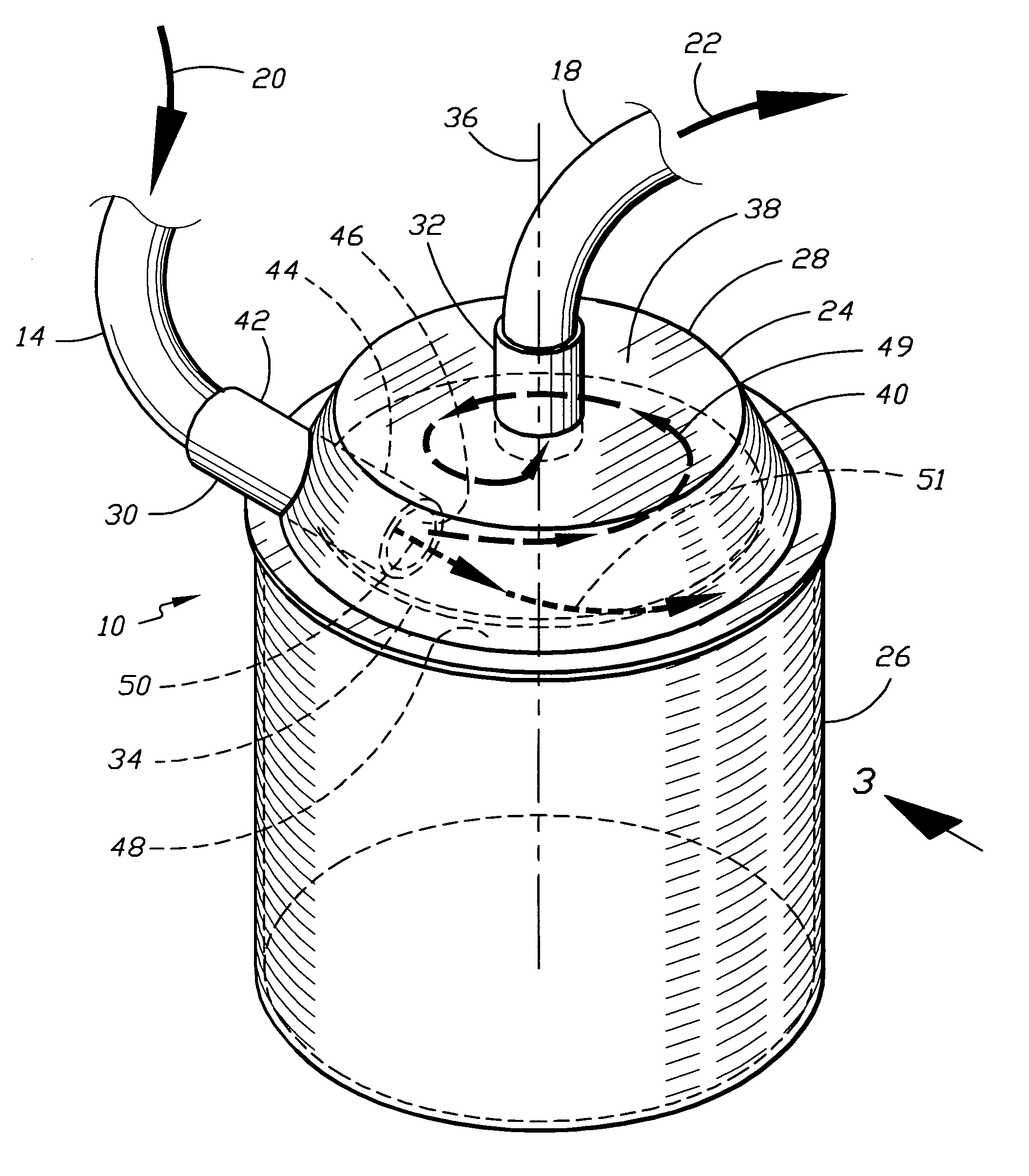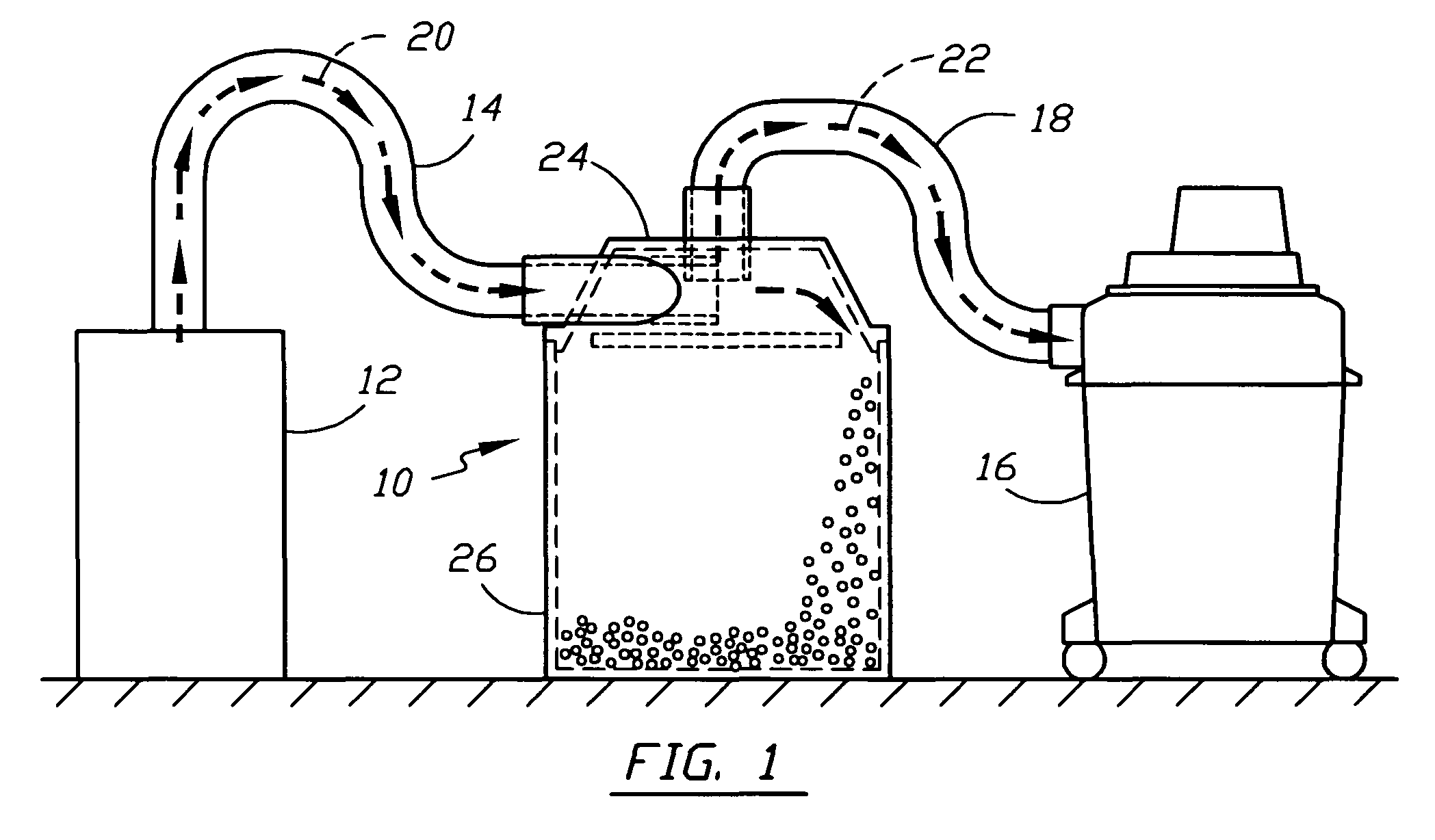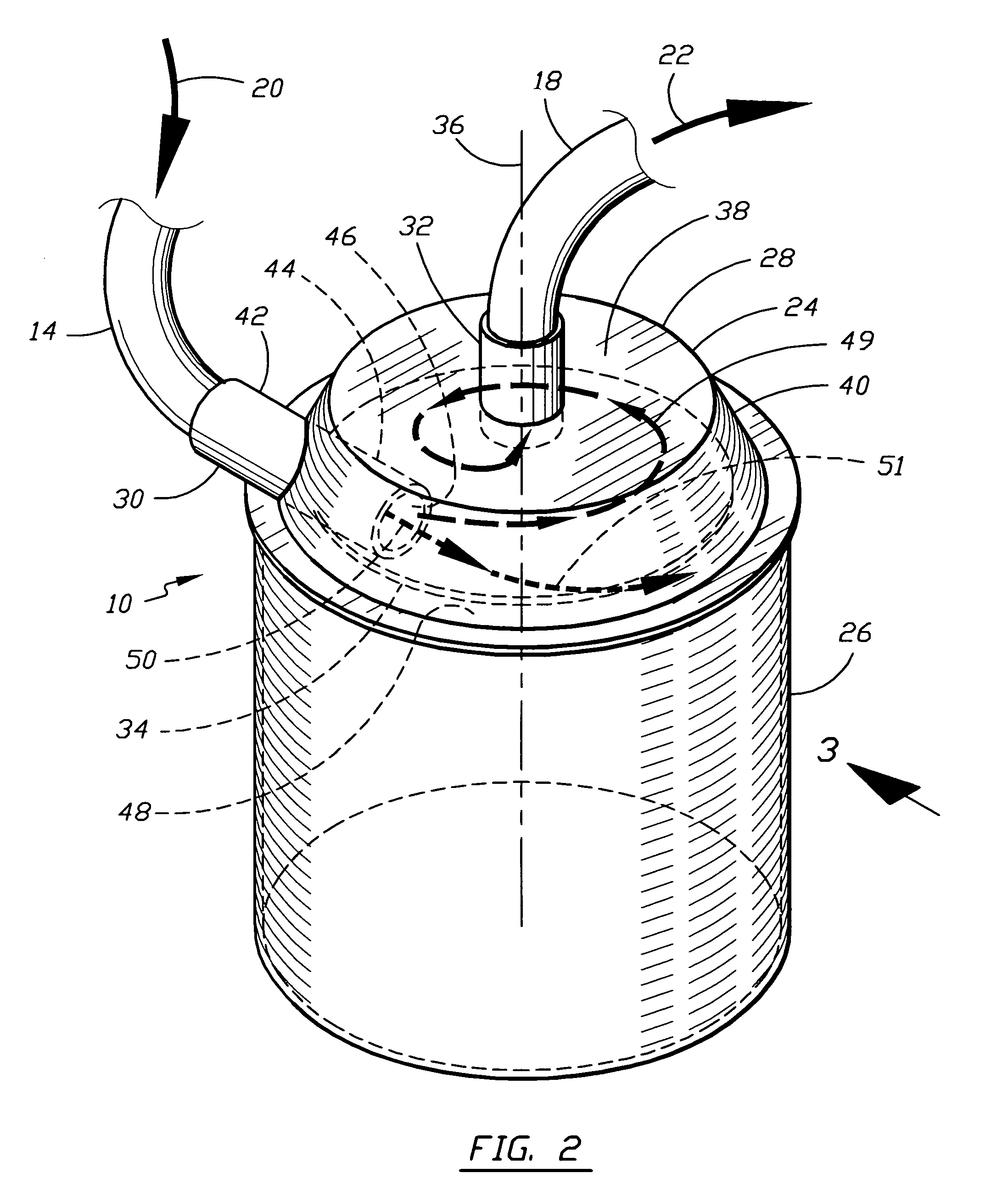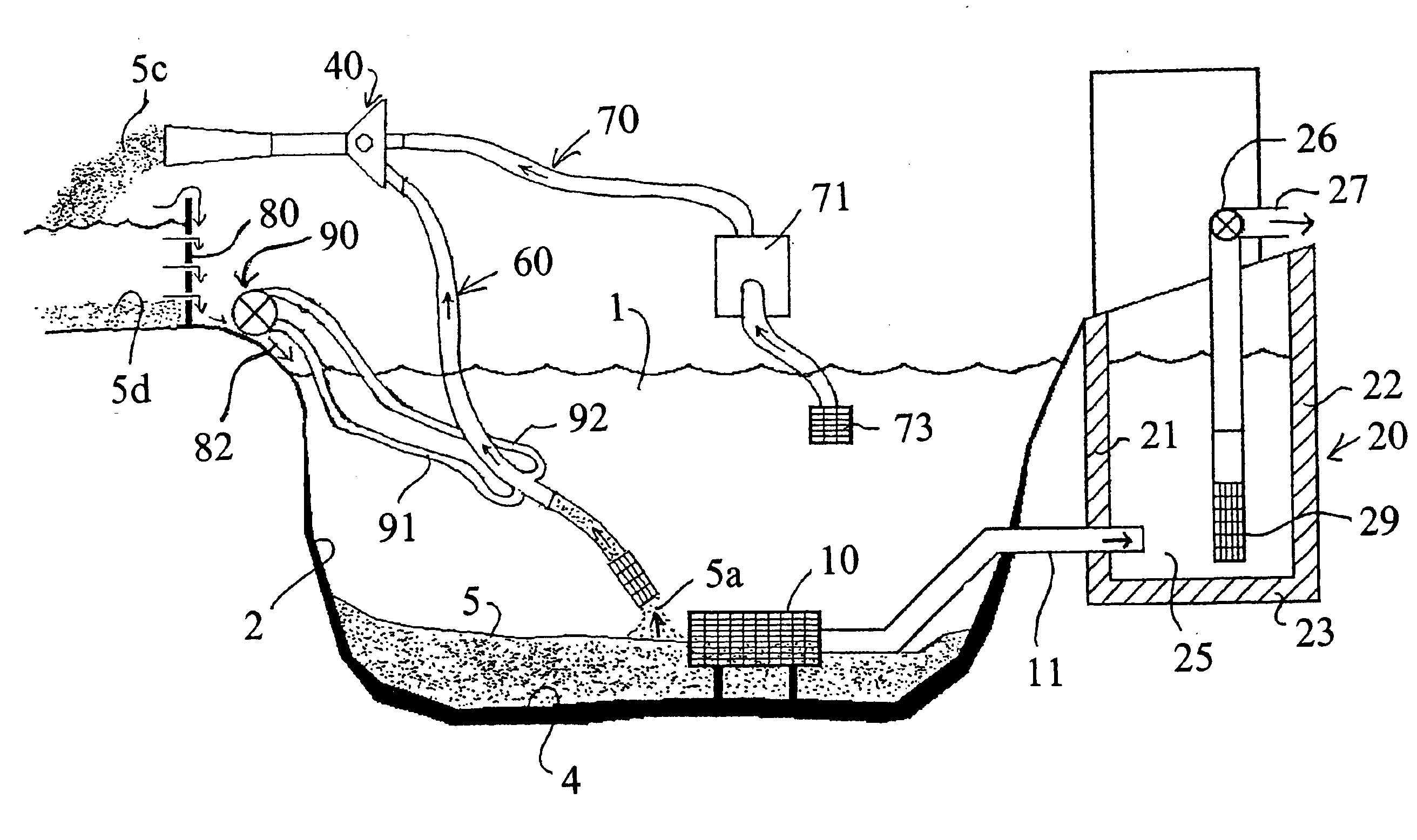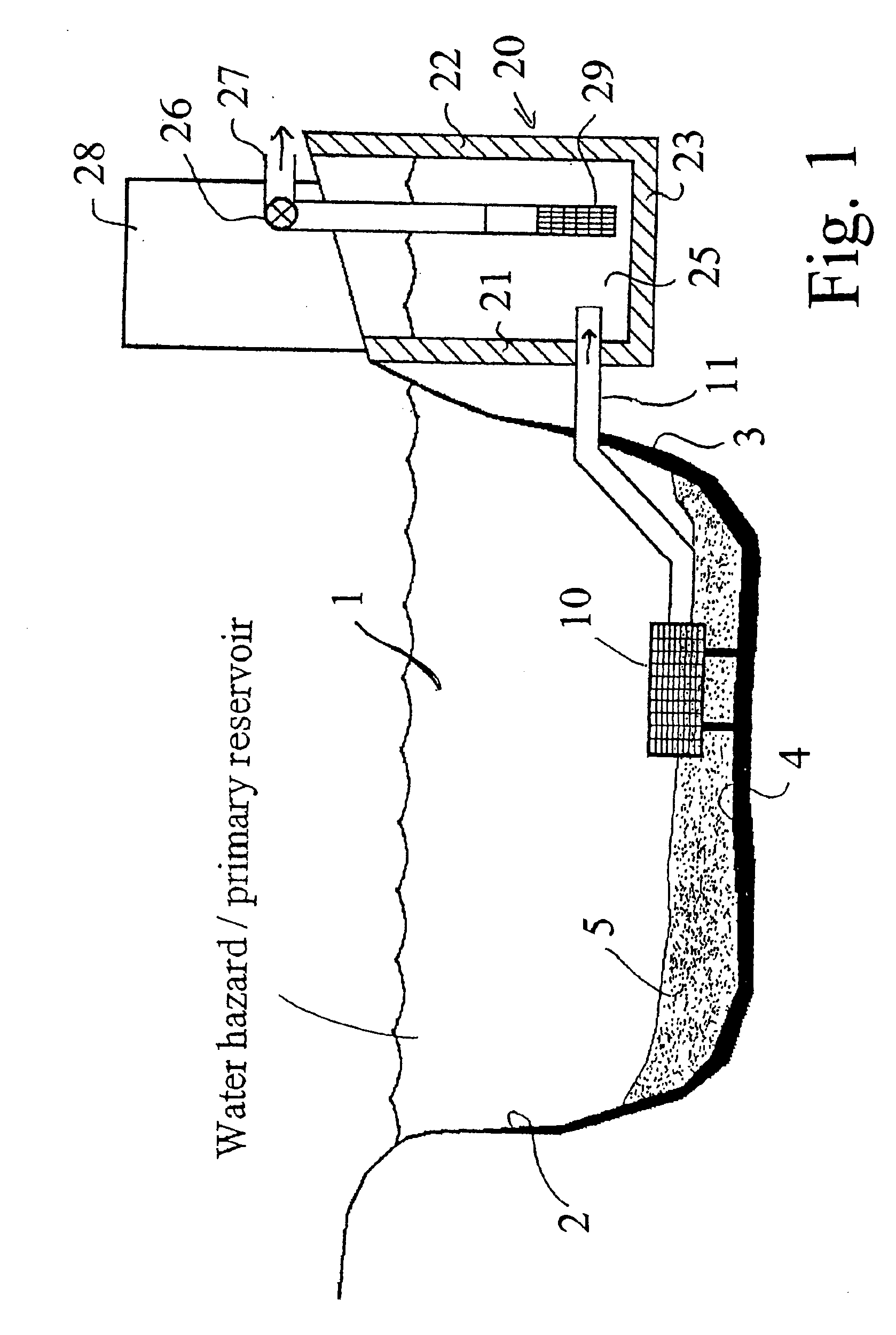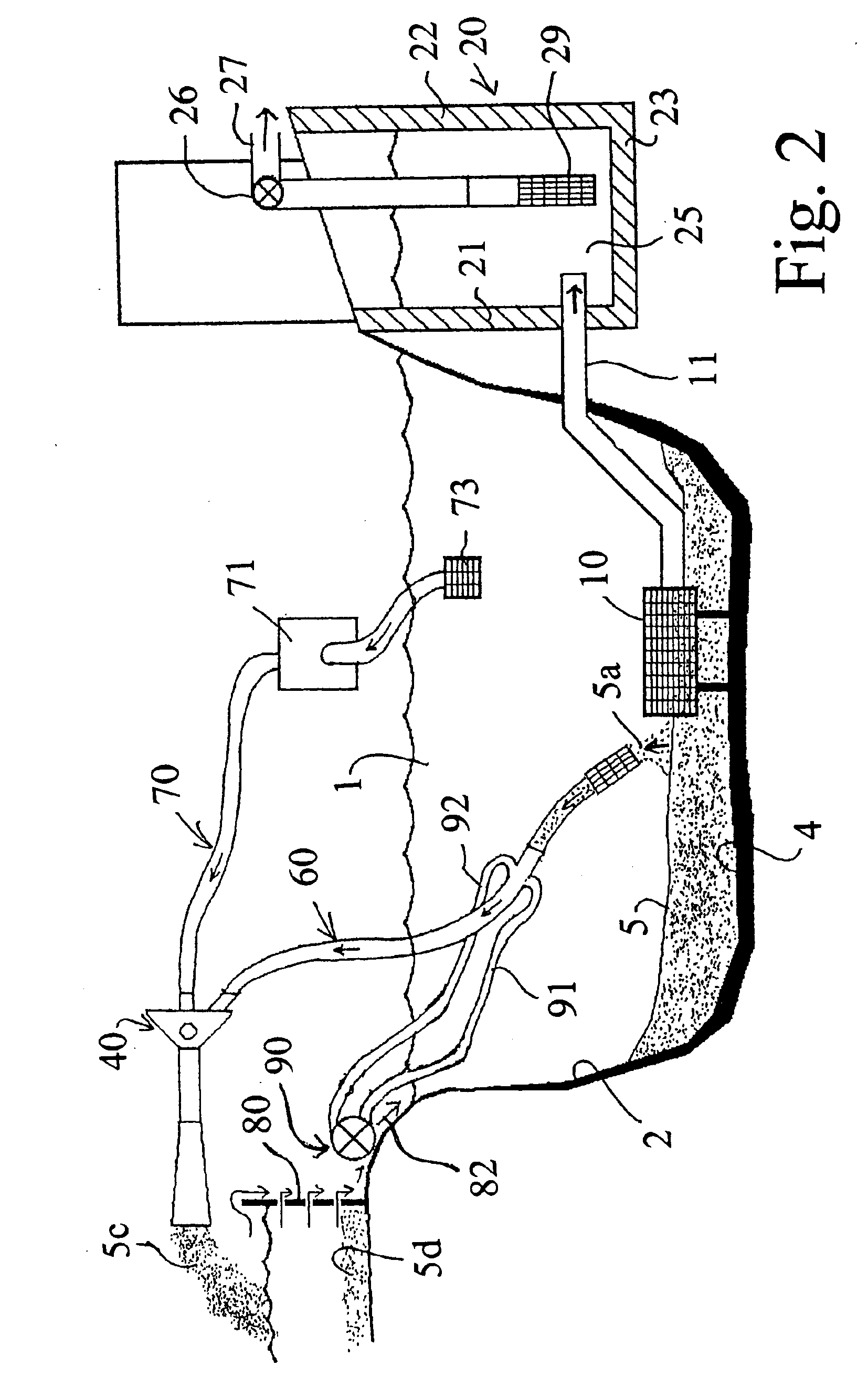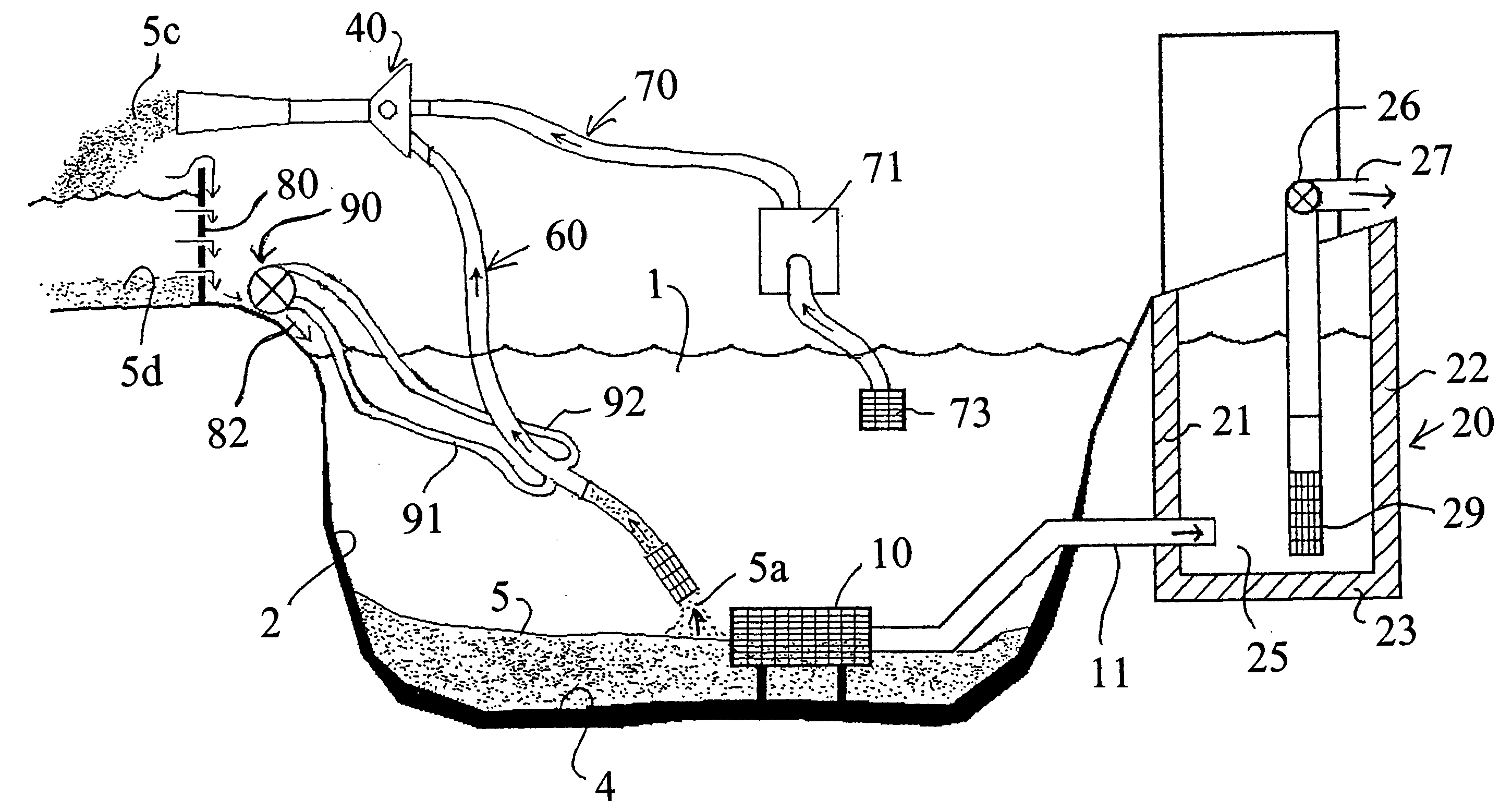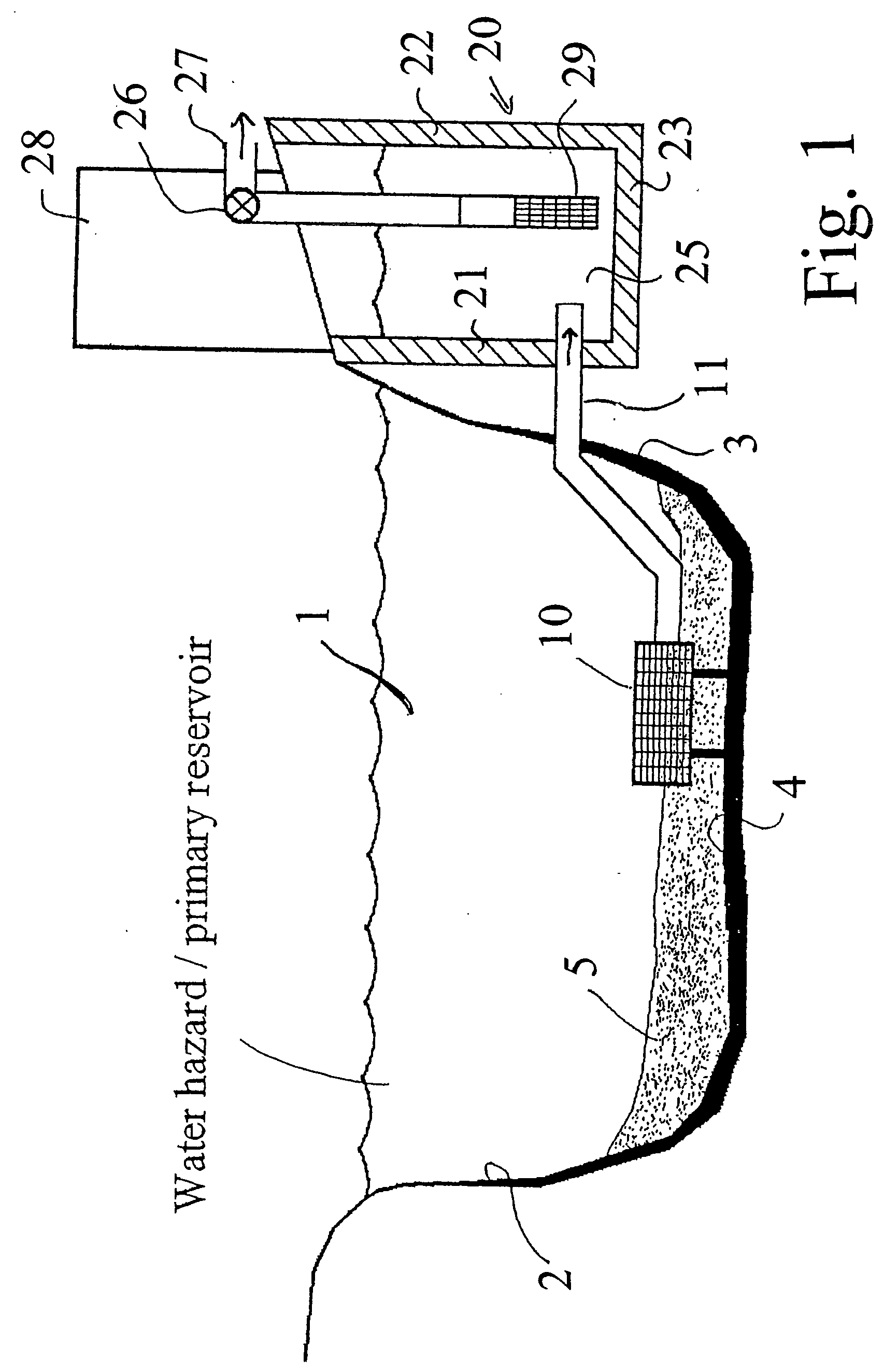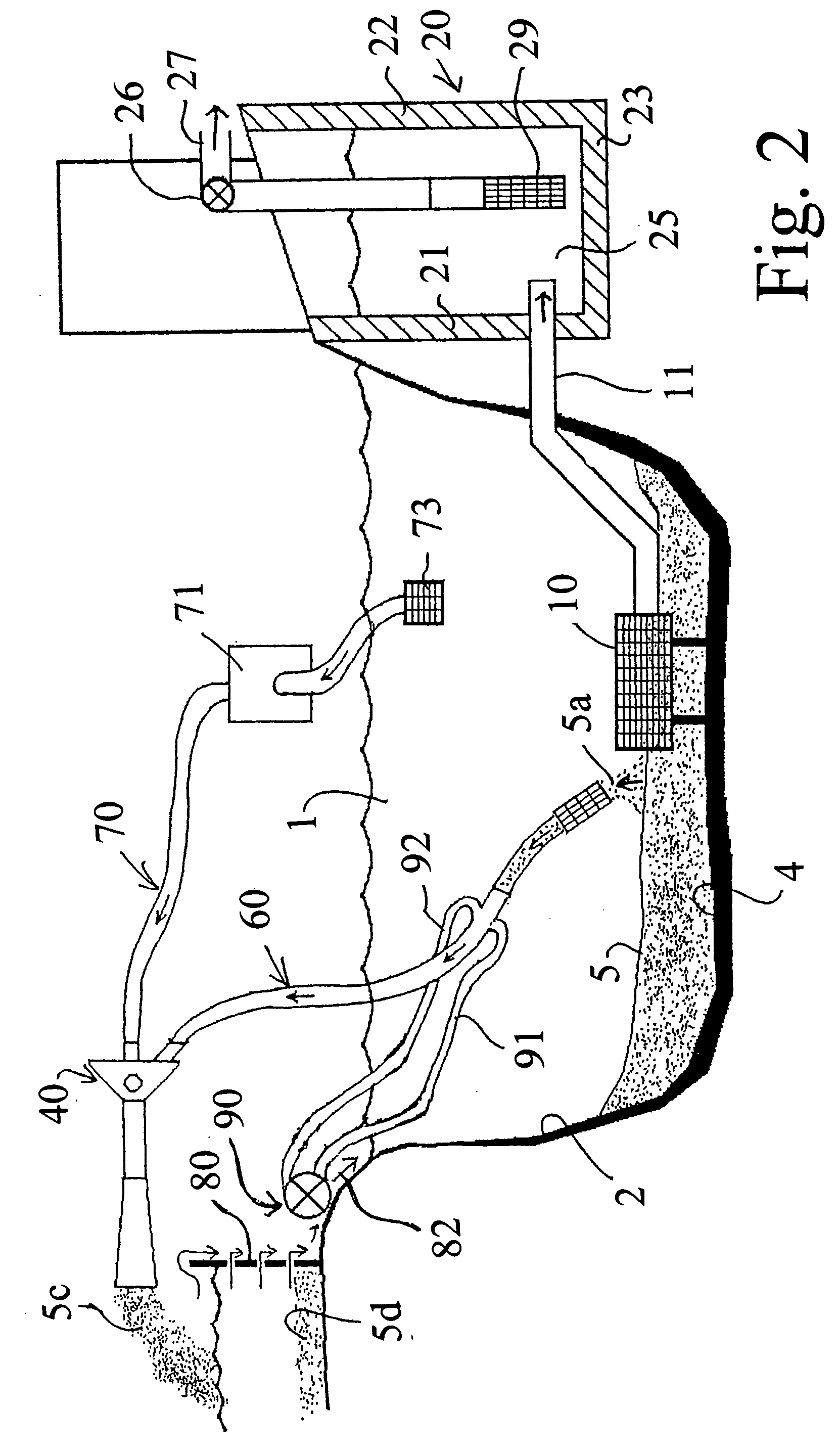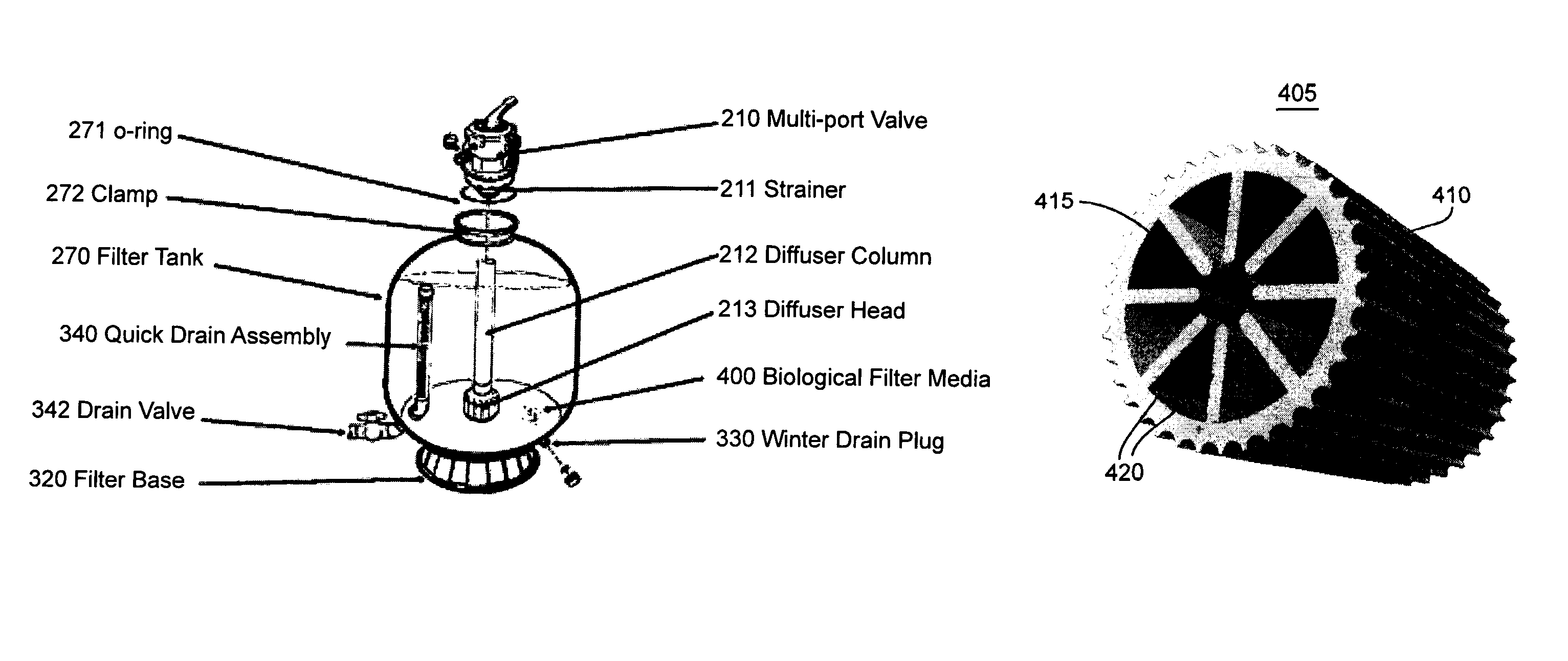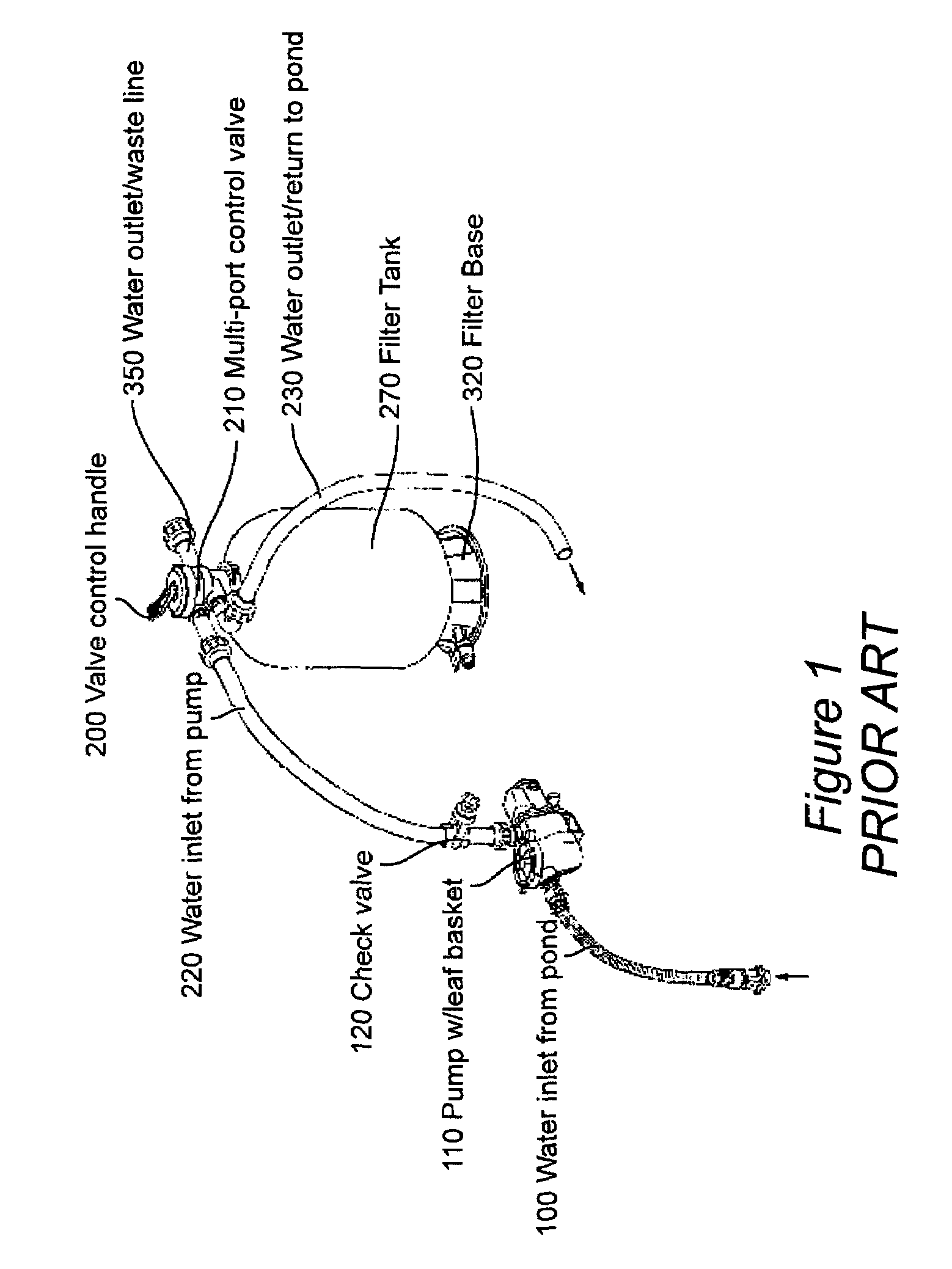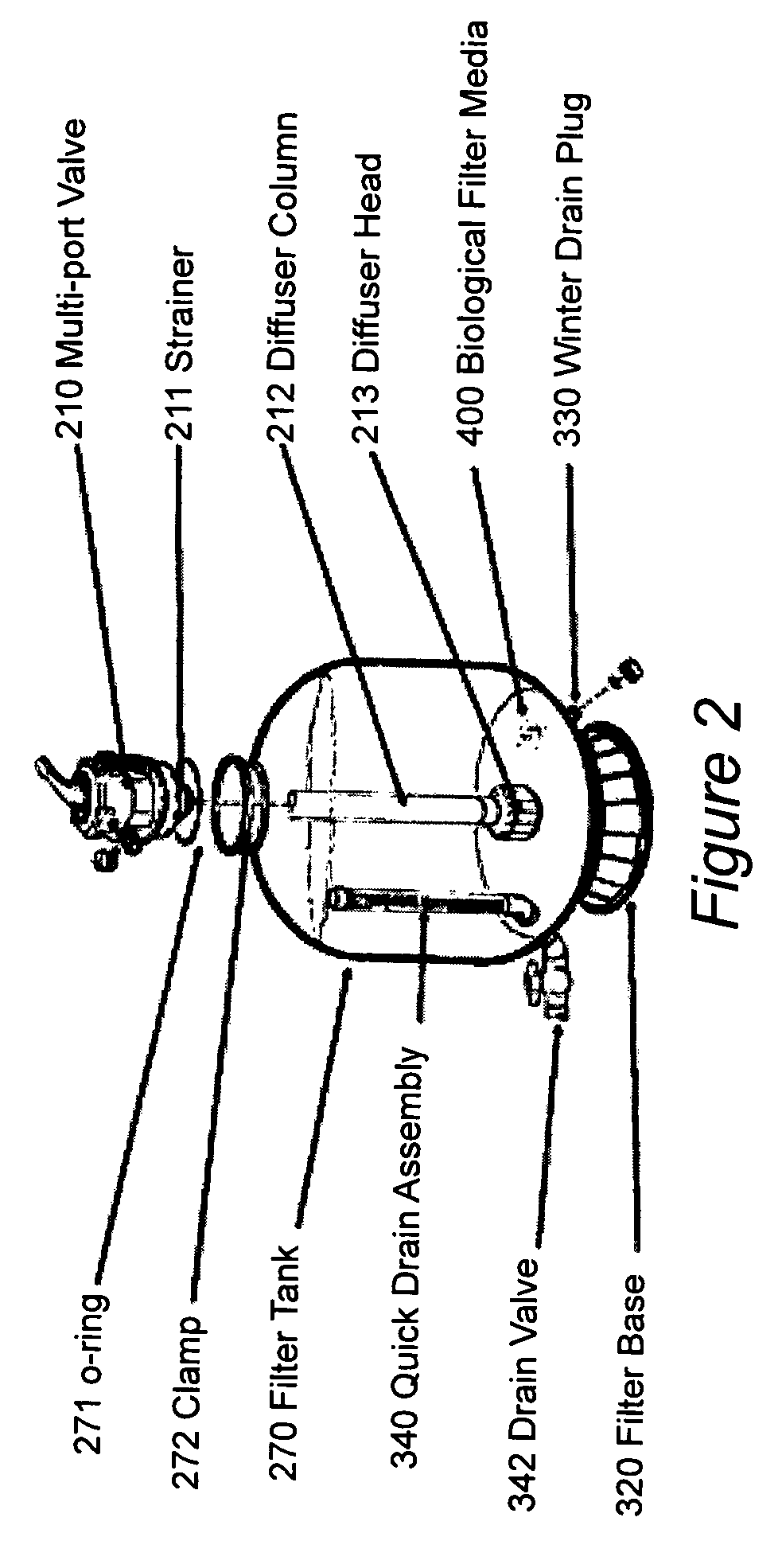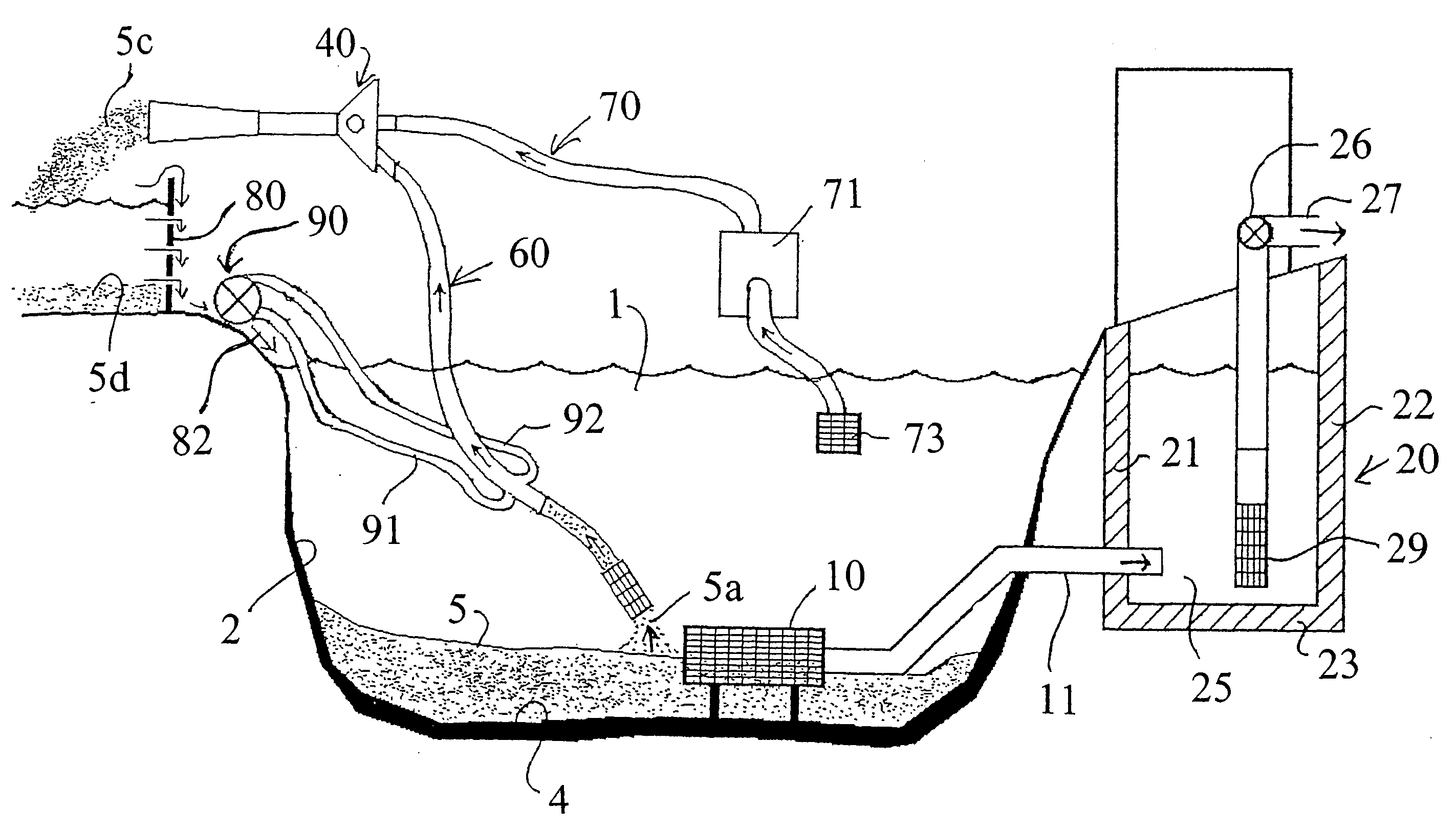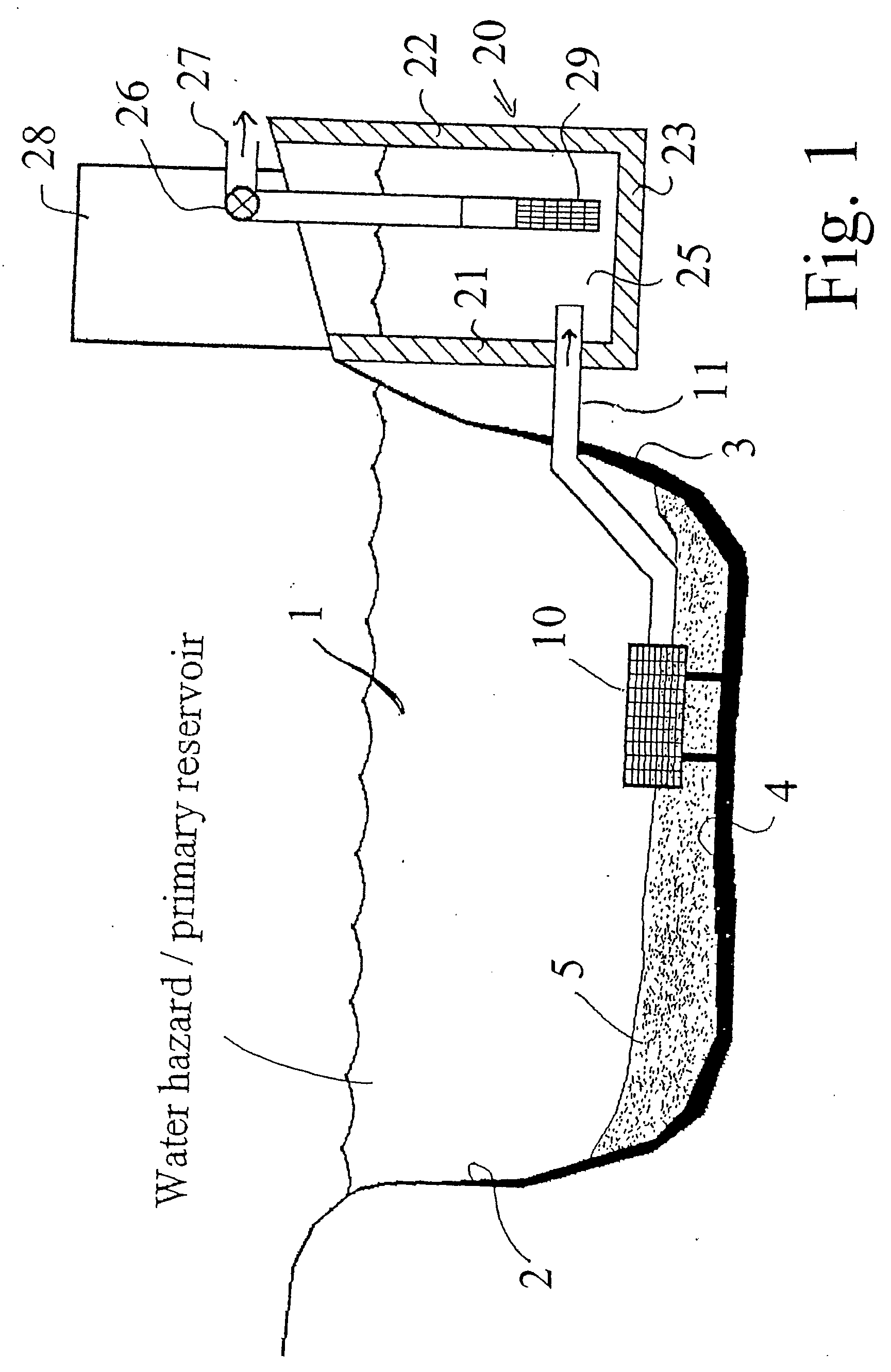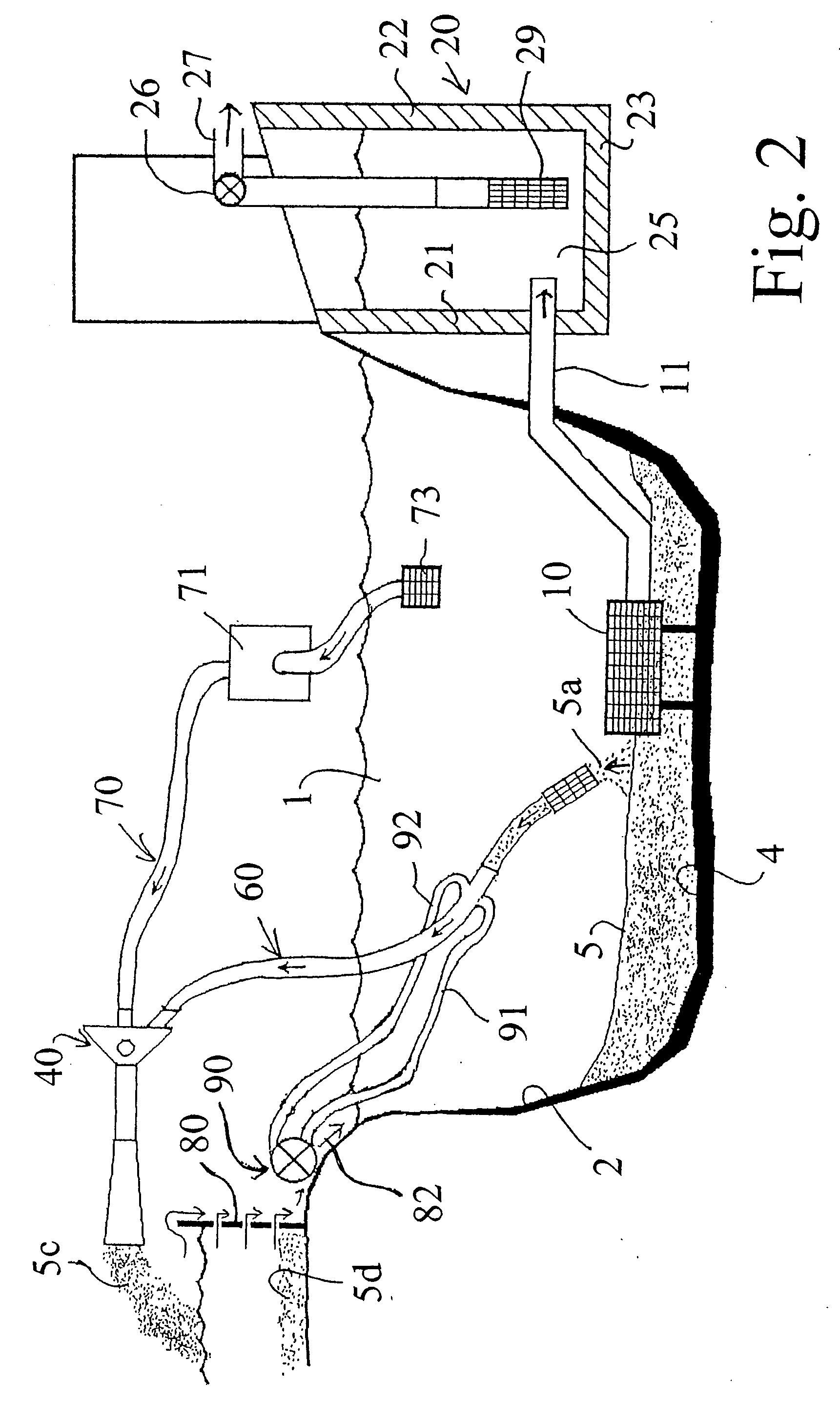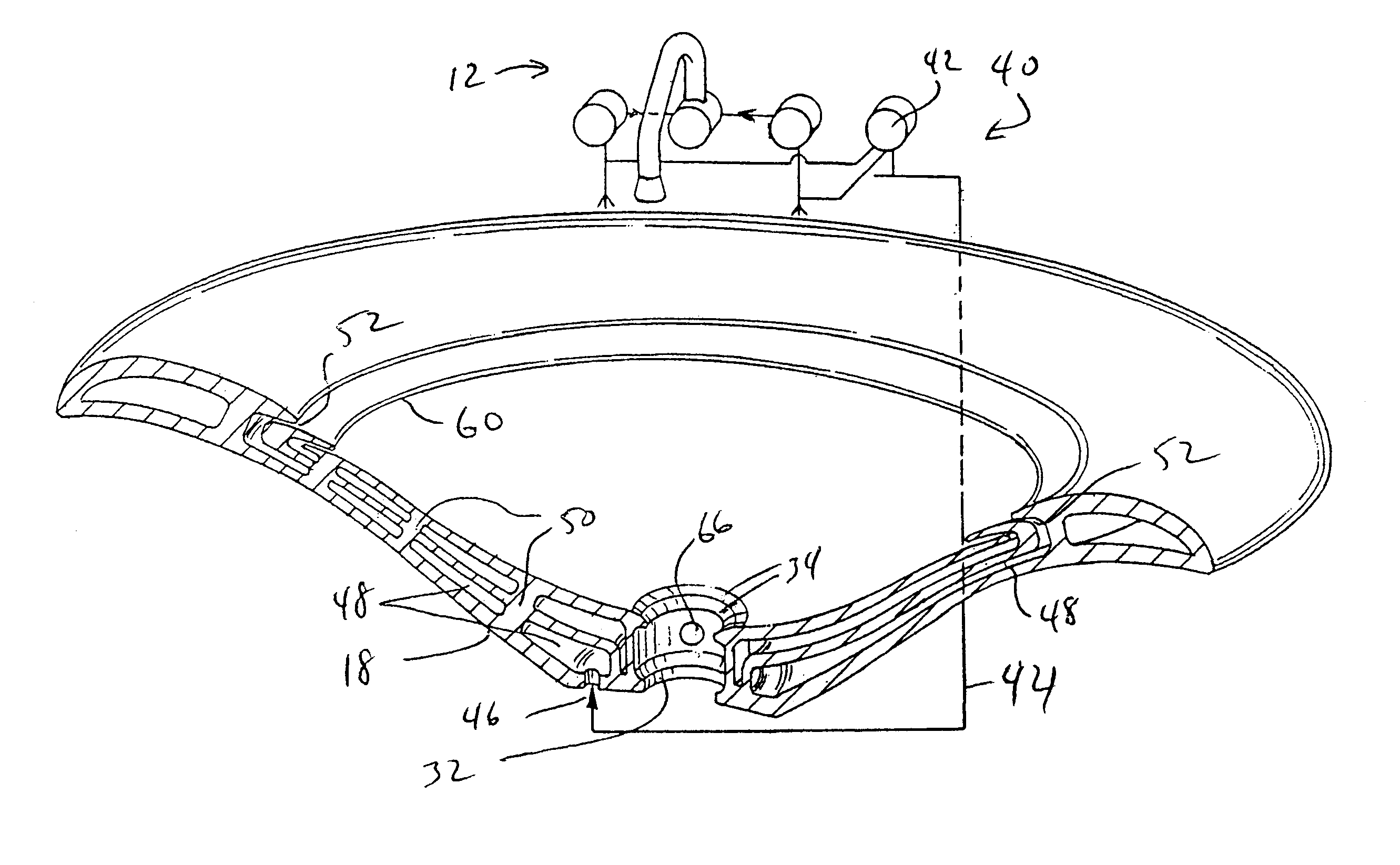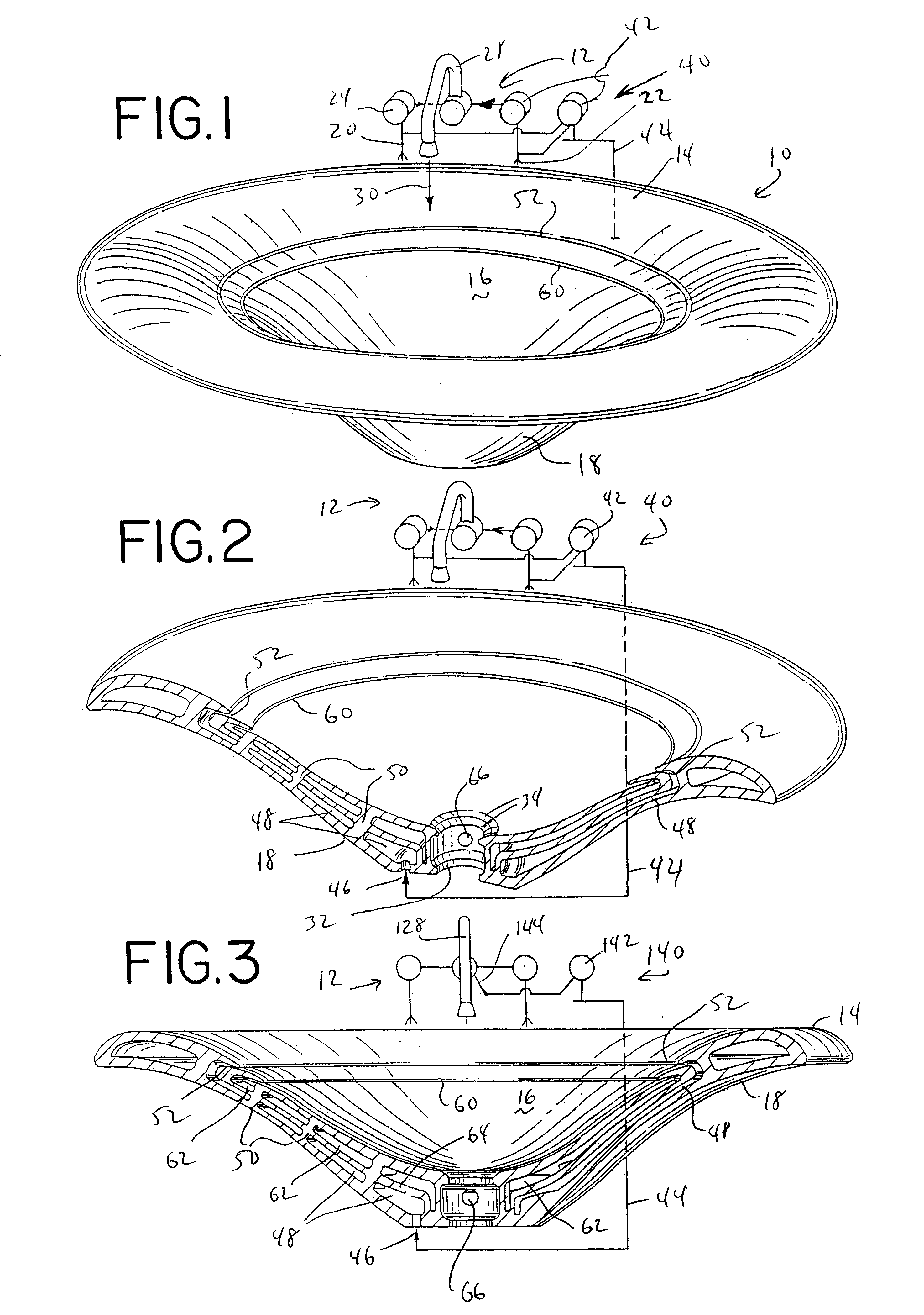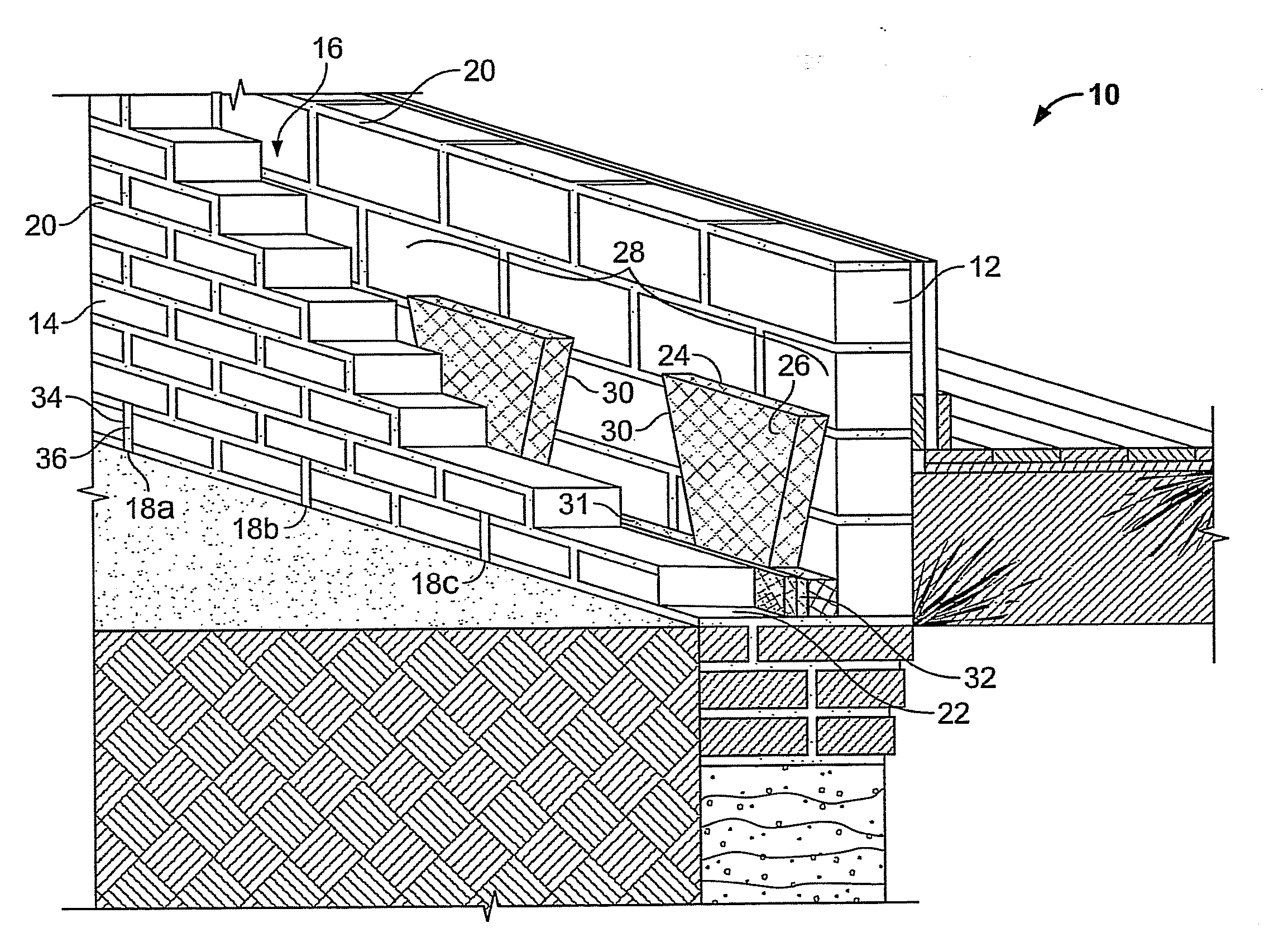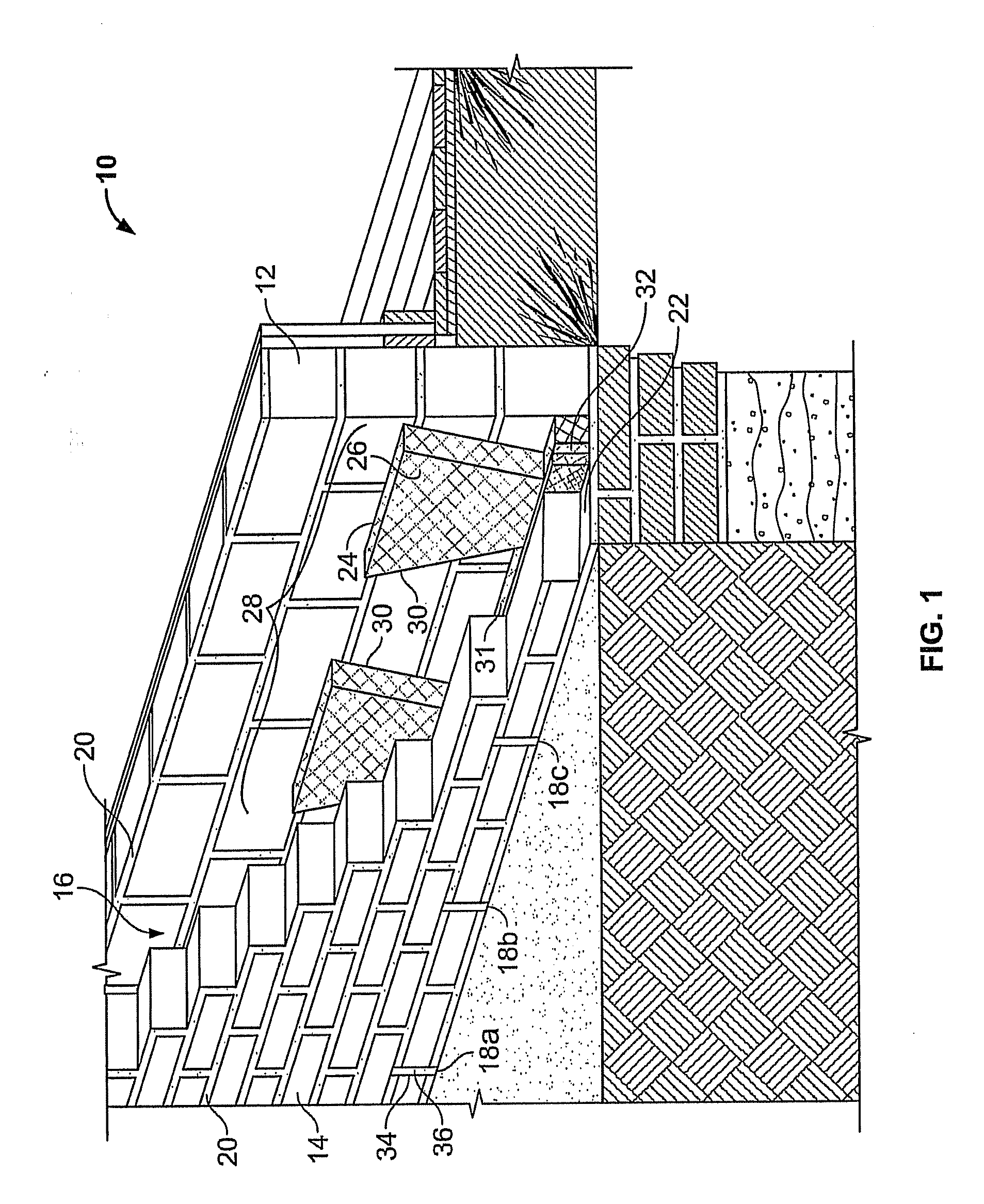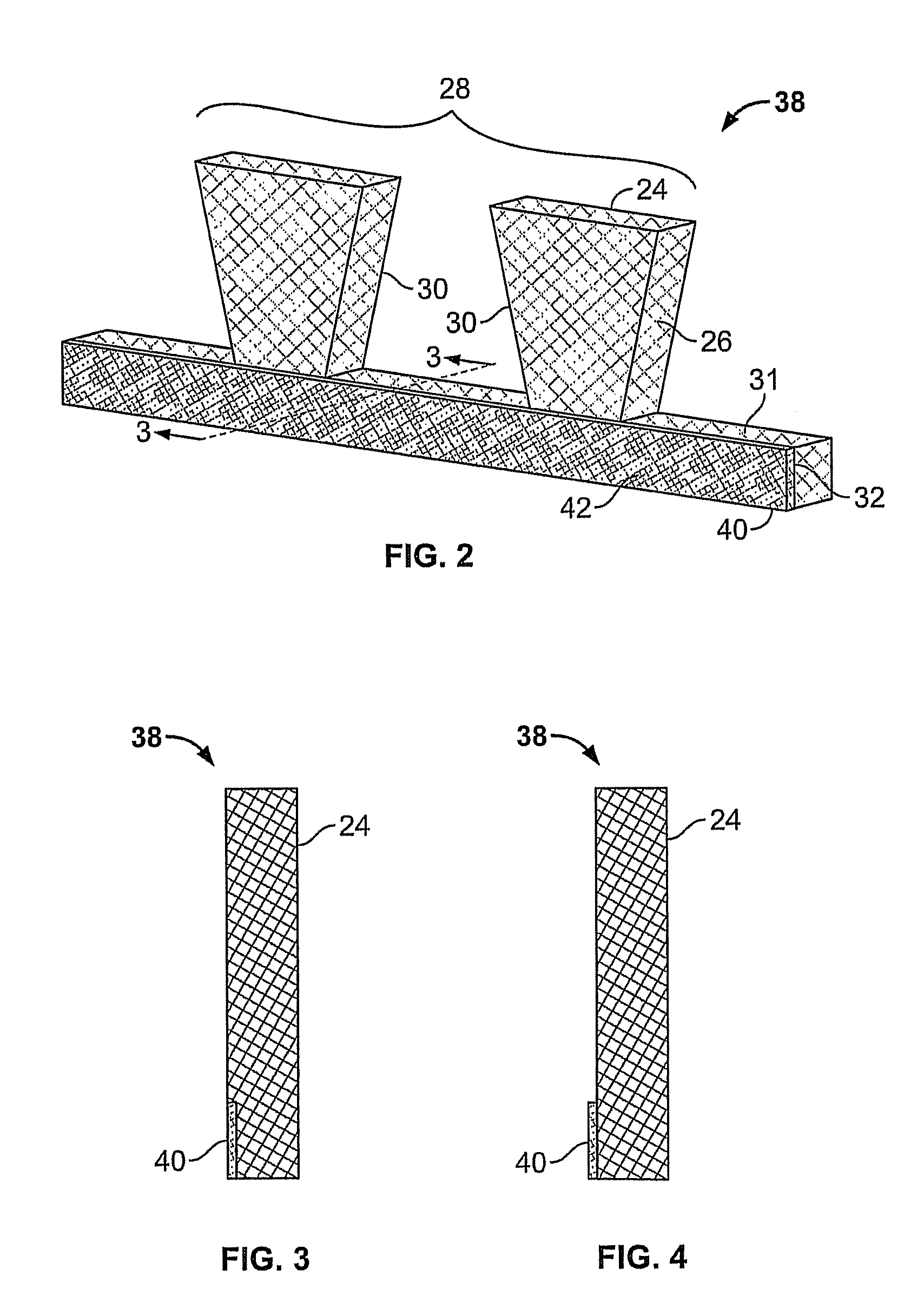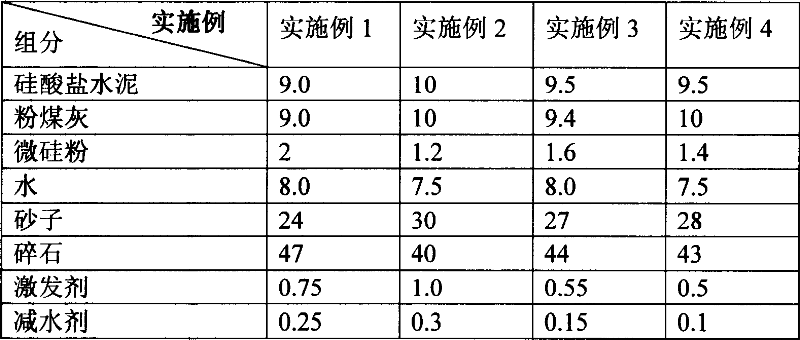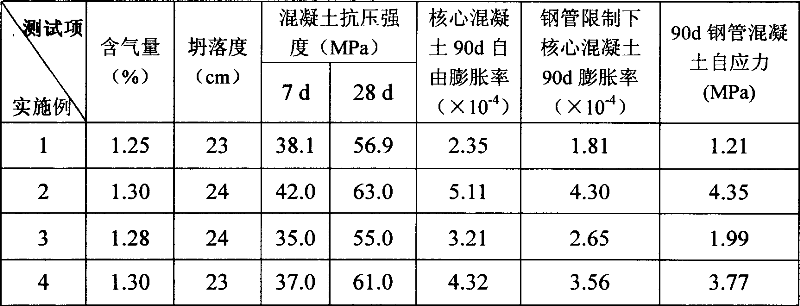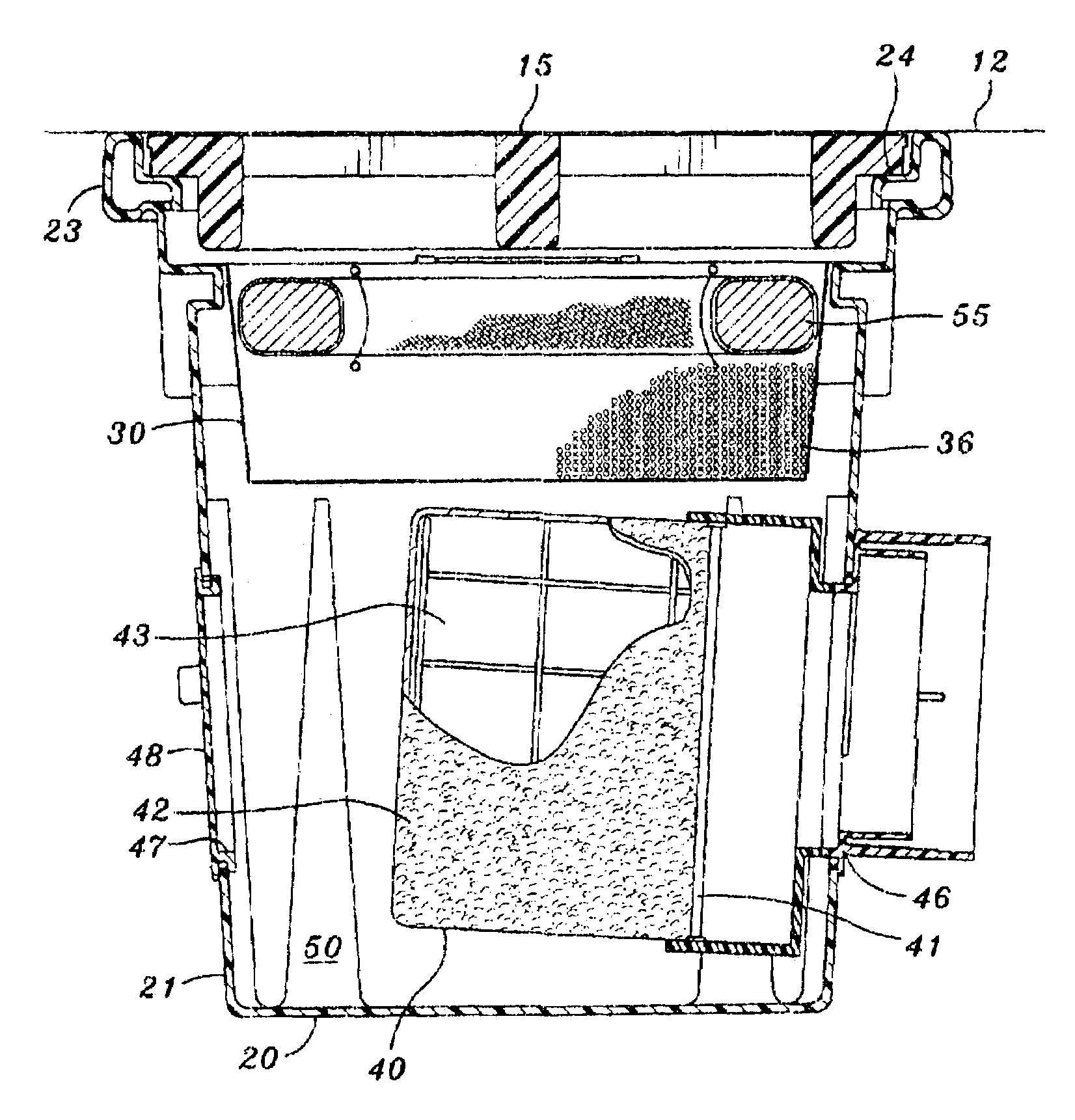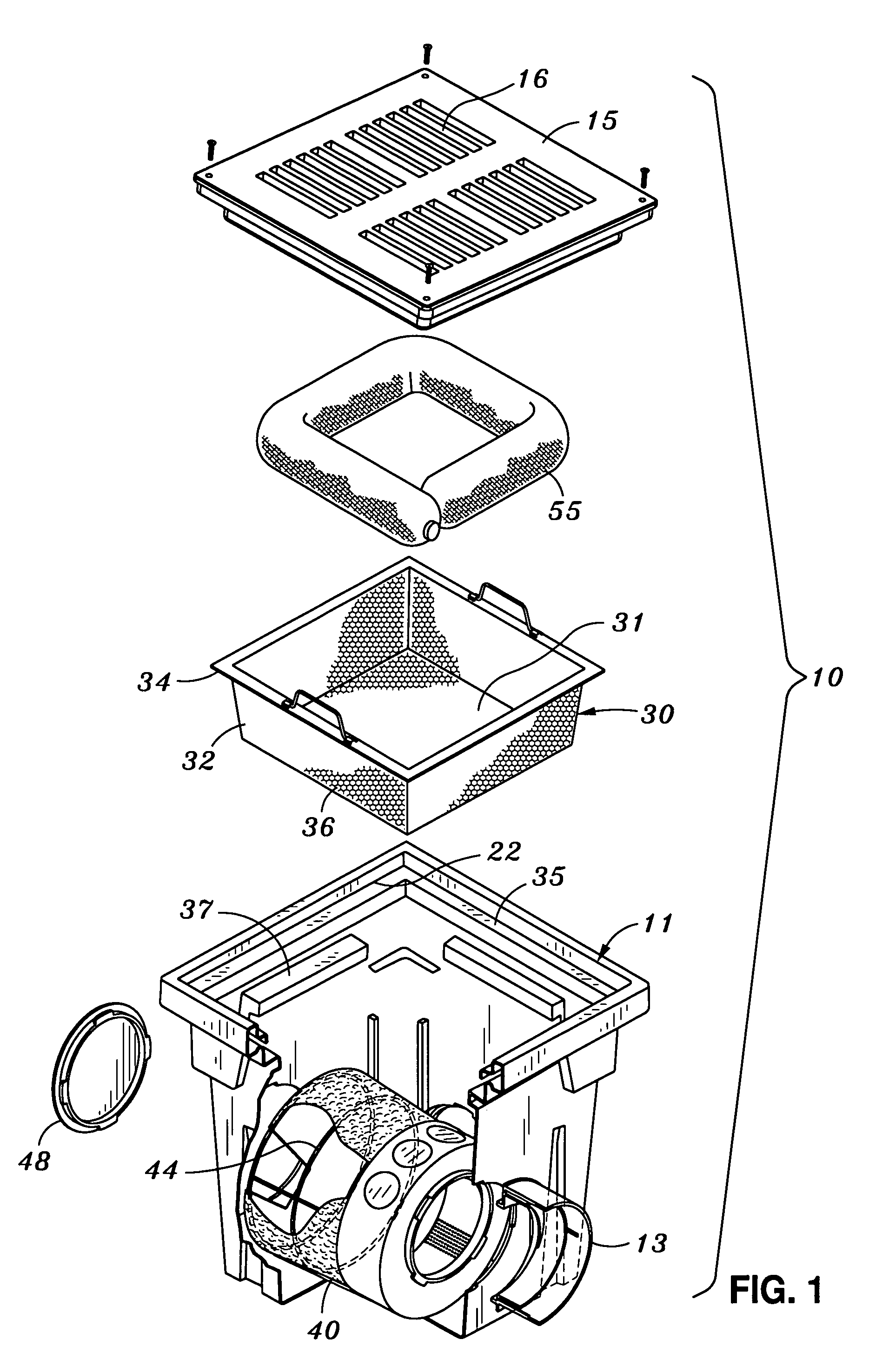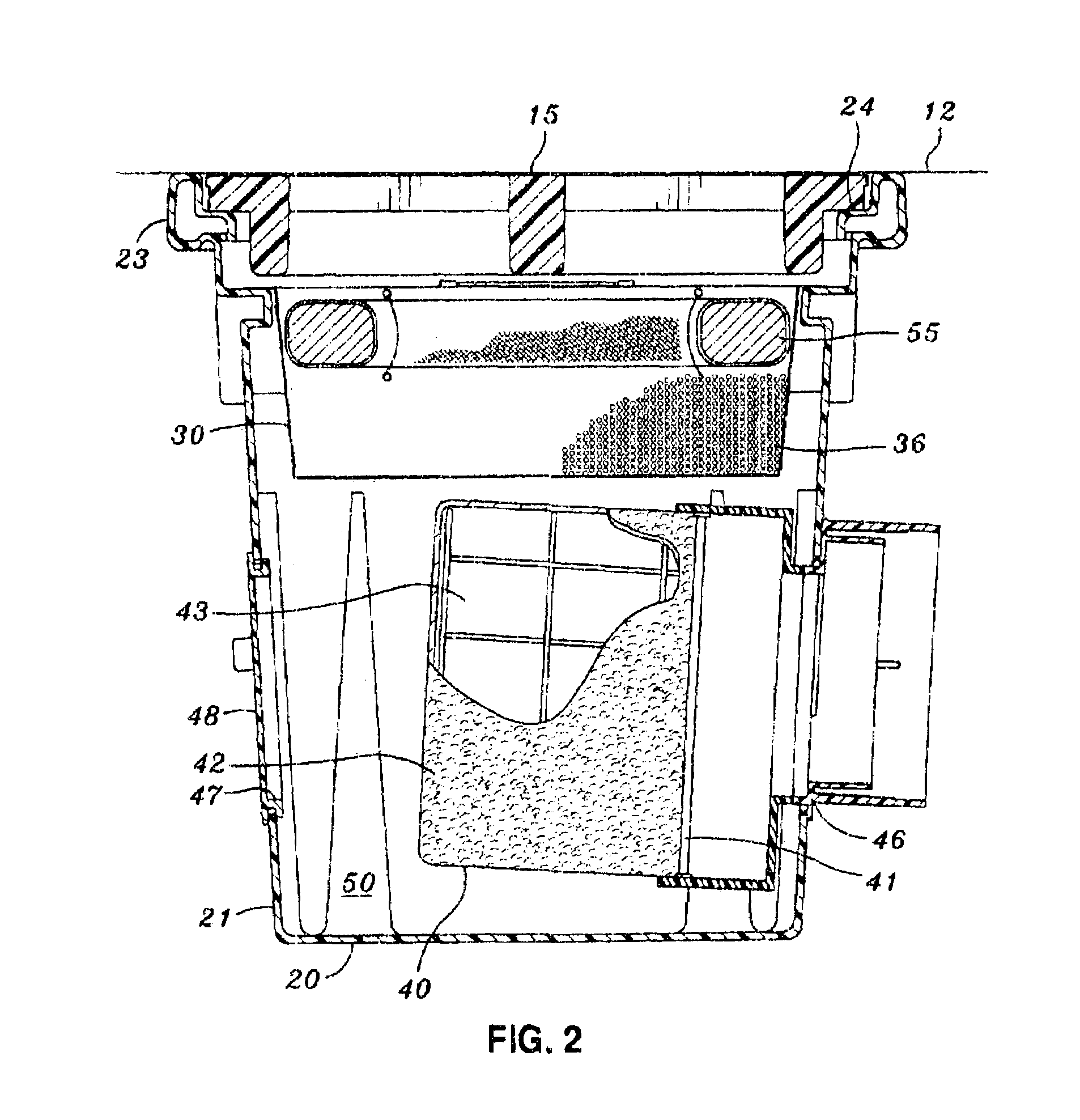Patents
Literature
286 results about "Detritus" patented technology
Efficacy Topic
Property
Owner
Technical Advancement
Application Domain
Technology Topic
Technology Field Word
Patent Country/Region
Patent Type
Patent Status
Application Year
Inventor
In biology, detritus (/dɪˈtraɪtəs/) is dead particulate organic material, as distinguished from dissolved organic material. Detritus typically includes the bodies or fragments of bodies of dead organisms, and fecal material. Detritus typically hosts communities of microorganisms that colonize and decompose, i. e., remineralize, it. In terrestrial ecosystems it is present as leaf litter and other organic matter that is intermixed with soil, which is denominated "soil organic matter". The detritus of aquatic ecosystems is organic material that is suspended in the water and accumulates in depositions on the floor of the body of water; when this floor is a seabed, such a deposition is denominated "marine snow".
Control of halitosis-generating and other microorganisms in the non-dental upper respiratory tract
ActiveUS20060047329A1Effective controlReduce the burden onElectrotherapyDiagnosticsNon-ionizing radiationTonsil
Disclosed are safe, simple and effective broad-spectrum treatments for halitosis and other microbial infections of the nondental upper respiratory tract useful to treat bacterial and other microorganism species, including anaerobic bacteria. Electromagnetic radiative energy including visible, and optionally, thermal, RF and / or microwave wavelengths, is topically applied to internal surfaces of the upper respiratory tract to destroy or incapacitate superficial microorganisms without the use of antibiotics. One useful apparatus is a handheld energy applicator having a light output head suitable for treating the back of the tongue and the tonsils and which may be interchangeably provided with extensions to reach the sinuses. The energy applicator can be supported and guided by a mounting device held between the subject's teeth, if desired. Useful embodiments of the invention include preparative treatment of the target surfaces with a photosensitizing agent such as an oxidizing agent or a complementary stain. Optionally a pre-treament procedure may be employed to remove detritus and microfloral overgrowths that may mask more deeply resident target microorganisms. Novel treatments include treatment of halitosis by destruction of bacterial species associated with halitosis, such as Atopobium parvulum, by application of non-ionizing radiative energy to the tonsils and the back of the tongue. Another embodiment comprises a candy bar incorporating a halitosis treatment lamp disposed within the candy.
Owner:VALENT MEDICAL INC
Method for removing water eutrophication
InactiveCN101962227ASuppress outbreakRealize self-ecological restorationSustainable biological treatmentBiological water/sewage treatmentEutrophicationFood chain
The invention discloses a method for removing water eutrophication, which comprises the following steps of: investigating a community structure of aquatic organisms in water body, and finding a missing link or broken link in a food chain according to an investigation result; stocking predacious fishes in the water body, removing small trash fishes and herbivorous fishes from the water body by adopting a medicament mode or a manual fishing mode, and regulating the community structure of the fishes in the water body; planting submerged plants, floating plants and emergent aquatic plants in the water with the depth of 0 to 1.5m; and stocking filter-feeding fishes, filter-feeding shellfishes, detritus feeding benthonic animals and herbivorous fishes in the water body. The method for removing water eutrophication can realize the removal of the water eutrophication and ecological restoration for large-scale water body of which the parameters cannot be manually controlled, effectively inhibit the outburst of algal bloom and keep the stable quality of the water body.
Owner:SHANGHAI OCEAN UNIV +1
Air precleaner and method for separating heavier-than-air particulate debris from debris laden air
InactiveUS6878189B2No reduction in rotational velocityEncourage removalCombination devicesDispersed particle filtrationParticulate debrisScavenger
A method and an air precleaner for separating heavier-than-air particulate debris from debris laden air to provide a clean airflow are disclosed. A flow path extends through the precleaner from an inlet to an outlet. Debris laden air is drawn into the inlet by a vacuum in communication with the outlet of the precleaner. A vortex flow of the debris laden air is formed in the flow path and flows through a first stage, ejective based precleaner and a second stage, scavenger based precleaner. Each stage centrifugally separates and removes particles of debris from the vortex flow. Efficient operation under extreme conditions with significant improvement in air filter life, is made possible by the air precleaner and method.
Owner:SY KLONE
Iron tailing concrete
InactiveCN101671146AReduce pollutionNot brokenSolid waste managementMineral processingEnergy consumption
The invention provides an iron tailing concrete which comprises the following ingredients of cement, mineral processing barren rocks and detritus, admixture, water and pumping aid for the concrete determined according to performances, and the ingredients of the concrete according to the weight percentages of the concrete are respectively 4-20 percent of cement, 0-35 percent of mineral processing barren rocks and detritus, 1-8 percent of admixture, 1.5-2.5 percent of pumping aid for the concrete based on the weight sum of the cement and the admixture, and the balance of water. The invention hasthe effects that the novel concrete adopts tailing ores and detritus and is applied to the production of the concrete for partially or completely replacing natural aggregate. The concrete can reducethe pollution to the environment from mineral processing barren rocks, decrease the production volume and the production energy consumption of natural ore materials, accord with three 'green' meaningssuggested by the world environment organization: saving resources and energy; no environmental damages, and more environment friendly; and also according with the strategy of sustainable development,thereby not only satisfying requirements of the contemporary people, but also not damaging the capacity of satisfying unborn requirements.
Owner:天津港保税区航保商品砼供应有限公司
Microbial agent and soil modifying agent produced by fermentation thereof
ActiveCN101629156AImprove adaptabilityImprove fertilityAgriculture tools and machinesFungiFiberMicrobial agent
The invention relates to a microbial agent used for producing a soil modifying agent by fermentation, consisting of fiber monad, bacillus, lactobacillus, methanobacteria, thiobacillus, streptomycete, high-temperature actinomyces, high-temperature monad, azotobacteria, nitration monad, nitration bacilus, rhizobium, koji mold, leaven, blue mold, detritus mold, rhizopus as well as mycorrhizal fungi and substrate. In addition, the invention also relates to a soil modifying agent produced by the fermentation of the microbial agent, application thereof and the like.
Owner:宋彦耕
Steel scoria mastic detritus asphaltum concrete and method for preparing the same
InactiveCN1482091AImprove long-term road performanceLow costSolid waste managementCeramic shaping apparatusFiberAdhesive
Steel slag as aggregate for road engineering has not only excellent pressure resisting and wear resisting performance but also high adhesion. The asphalt concrete consists of steel slag as aggregate, mineral powder stuffing, fiber as stabilizer and asphalt as adhesive. The production process includes heating the aggregate to 170 deg.c and mixing with hot molten liquid asphalt, mixing with mineral powder, adding fiber as stabilizer, and beating the steel slag SIA asphalt mixture on two sides for 50 times each or rolling for 18 times to form. The steel slag SIA asphalt concrete has its performance indexes reaching national standard, dynamic stability up to 5846 times / mm and may be used in expressway. In addition, the use of steel slag can lower engineering cost and reduce environmental pollution.
Owner:武汉钢铁集团冶金渣有限责任公司 +1
Mortar and debris collection system
InactiveUS20110302863A1Promote full dispersionAvoid Waterlogging ProblemsFoundation engineeringVertical ductsPorosityWater channel
Mortar and debris collection systems for cavity wall construction and / or walls constructed from concrete masonry units (CMU), for example, include a mesh body made of a material that is formed with circuitous paths therethrough making the body water-permeable. The mesh body is formed of a material having enhanced hydrophobic properties. The mesh body has a porosity sufficient to permit water to pass therethrough but insufficient to permit mortar and other debris to pass therethrough to weep holes or other water channels covered by the collection debris.
Owner:SOURLIS TOM
Ecological restoration and purification method for water of lake and pool wet land
ActiveCN103214099AImprove purification effectImprove the environmentSustainable biological treatmentBiological water/sewage treatmentPurification methodsSludge
The invention relates to an ecological restoration and purification method for water of lake and pool wet land. The method is characterized by comprising the following treatment steps sequentially: a first stage, a second stage and a third stage, wherein the first stage comprises the steps of pumping the water of the lake and pool wet land to dryness sectionally, performing activity, disinfection and dehydration treatment on sludge of the lake and pool wet land, prefabricating and mounting a submerged aeration facility, planting a submerged vegetation community, and filling in the water of the original lake and pool wet land; the second stage comprises the step of putting water purification bugs into the water for treating suspended matters in the water and purifying the water, such as algae and detritus; and the third stage comprises the steps of planting floating-leaved plants in the water, and configuring aquatic animals capable of eating partial aquatic plants for restoring a food chain of a water ecosystem. The method can ensure that the restored or purified water can reach a Category III or above primary indicator of Environmental Quality Standards for Surface Water (GB 3838-2002); the water purification effect is enduring; and both a symptom and a root cause are treated.
Owner:广东汇美生态科技有限公司
Four-phase solid-liquid separation method for well drilling wastes
Disclosed is a technique method for the solid-liquid four-phase separation of well drilling wastes, which is a technique for realizing the four-phase separation of well drilling detritus, well drilling mud, well drilling sewage and dirty oil in the well drilling wastes, and the technique has the goal that the wastes do not fall to the ground while drilling when equipping the well drilling scene and in treatment, and has the technique principles that: detritus are separated out by washing, settled sludge is pressed into mud cakes, filtrate forms sewage and dirty oil floats upward and is discharged by automatic overflow sequentially according to different particle sizes and properties of particles of the well drilling wastes, then the four phases are separated for providing conditions for classification, retreatment and comprehensive utilization, thereby realizing the demand of environmental protection that the well drilling wastes do not fall to the ground.
Owner:PUYANG TIANDIREN ENVIRONMENTAL PROTECTION TECH CO LTD
Silt and debris filtering system for storm drains
InactiveUS20050247612A1Fatty/oily/floating substances removal devicesGround-workStorm drainMajor and minor
An apparatus for removing debris from water passing through a storm drain comprises a frame adapted to be positioned underneath a storm grate for receiving the water, the frame having a bottom side and major and minor sidewalls, the major sidewalls having openings therein for allowing water to pass; and a filter removably insertable along at least a portion of the major sidewalls for filtering debris from the water.
Owner:GLASSHEIM ROBERT
Apparatus for removing noxious contaminants from drainage water
InactiveUS6337016B1High affinityEasy to disassembleSolid sorbent liquid separationTreatment with anaerobic digestion processesParticulatesMethacrylate
The invention relates to an improvement in known apparatus for removing or separating certain contaminants and debris from drainage water. The known device has a tank defining a chamber with an inlet and a pair of vertically spaced outlets. A bulkhead with openings is spaced opposite the inlet and extends from the base of the chamber. A baffle is located between the bulkhead and the outlets and extends from the top of the chamber to near the bottom. An orifice plate or plates is adjustable mounted in series with the outlets and controls the rate of flow therethrough. The system thus has four sections, namely a non-floating particulate containment chamber; a floating particulate containment chamber; a flow control chamber; and an outlet chamber. In accordance with the invention, a fluid-previous media is provided at the interior of said apparatus in or abounding the flow path of the drain water proceeding between said inlet and outlet. The media is infused with a composition comprising a homogeneous thermal reaction product of an oil component selected from the group consisting of glycerides, fatty acids, alkenes, and alkynes, with a methacrylate or acrylate polymer component; the said contaminants in the drain water flowing through said apparatus thereby coming into intimate contact with and being immobilized at said media.
Owner:MYCELX TECH CORP
Planting and breeding integrated ecological breeding method for large fishpond
InactiveCN103181343APlay the role of purifying water qualityGood effectClimate change adaptationPisciculture and aquariaFecesMelicertus
The invention discloses a planting and breeding integrated ecological breeding method for a large fishpond. Famous and special breeding varieties such as common carps, golden carps, grass carps, chubs, penaeus vannawei, loaches, soft-shelled turtles, river crabs and the like are put in a suitable place to breed in a breeding pond; and the stocking ratio of herbivorous fishes to forage fishes to demersal residual feed animals by weight percentage is (35-40%) to (50-55%) to (10-15%). Proper biological varieties are selected according to biological requirements of ecological niches and cooperate to build an eco-friendly environment, forage grasses are planted for feeding the herbivorous fishes, the feces of the herbivorous fishes and a water body can produce primary biological baits, the primary biological baits are supplied to shrimps and secondary nutritional fishes, and organic detritus produced by the water body sinks to the bottom of water and is ingested by the demersal loaches, crabs and the like. At the same time, lotus roots and cane shoots are planted in the breeding water body and nutritive salt in the water body is removed for purifying the water, so that a novel high-efficiency energy-saving planting and breeding integrated ecological breeding mode is formed.
Owner:TIANJIN KAIRUN FRESH WATER BREEDING CO LTD
Biodegradable grass and debris catcher
A biodegradable grass and debris catcher is attached to an exit chute of a lawn mower and garden vacuum / blower discharge chute to collect grass clippings and debris. The biodegradable grass and debris collector bag, containing grass clipping and debris, is composted or disposed of in a landfill without incorporating polymeric residue. The biodegradable grass and debris catcher has a plurality of layers, preferably three layers, of industrial strength paper. A plurality of air vent holes on side walls of the bag release discharged air while trapping grass clippings or debris. The industrial strength paper may be reinforced with biodegradable cotton fibers.
Owner:SEPANIAK STEPHEN VOGT
Horizontal underflow constructed wetland capable of strengthening denitrification at low temperature
InactiveCN101987760ASolve the problem of low denitrification efficiency at low temperature in winterImprove nitrogen removal efficiencySustainable biological treatmentBiological water/sewage treatmentConstructed wetlandNitrogen removal
The invention relates to a horizontal underflow constructed wetland capable of strengthening denitrification at a low temperature. The constructed wetland consists of a water distribution region, a filling region, an aeration device, a water collecting region and wetland plants, wherein large-grain detritus is positioned in the water distribution region and the water collecting region; the filling region is arranged between the water distribution region and the water collecting region; medium-grain detritus, medium-grain zeolite and fine-grain detritus are positioned in the filling region sequentially; and aeration pipes are laid on the bottom layer of a zeolite segment and the aeration quantity is adjustable. Sewage is subjected to pretreatment, so that suspended matters and part of pollutant are removed, and then the sewage is subjected to constructed wetland purification treatment. The horizontal underflow constructed wetland can greatly improve the dissolved oxygen concentration of the sewage and the ammonia nitrogen adsorption capacity of regenerated zeolite in the horizontal underflow constructed wetland and can maintain high-efficiency and stable nitrogen removal rate of a system.
Owner:LIAONING BEIFANG ENVIRONMENTAL PROTECTION +1
High debris content strainer
InactiveUS7083735B2Increase contentEqually distributedSettling tanks feed/dischargeWater/sewage treatmentEngineeringMechanical engineering
A high debris content strainer that utilizes a cylindrically-shaped screen having four removal assemblies positioned evenly around the screen periphery. Each removal assembly includes a backwash spray bar on the downstream side of the screen and a scraper / brush and discharge tube on the upstream side of the screen where the debris lodges during filtering. The screen is rotatably-mounted inside a strainer housing. A shroud surrounds ¾ of the screen periphery and includes an opening directly adjacent an input fluid flow line, as well as scoops on opposing sides of the shroud. The shroud evenly distributes the contaminated fluid flow around the screen. When cleaning the screen is desired, the screen is rotated while the backwash spray bars are activated and, in combination with the scraper / brushes, the debris is dislodged from the upstream surface of the screen and directed into the discharge tubes which divert the contaminants to a discharge pipe.
Owner:LAING DAVID A
See-thru self cleaning biological filter system for aqua-culture
InactiveUS20060151366A1Mechanical and biological filtrationLong maintenance periodPisciculture and aquariaLoose filtering material filtersVertical tubeBiological filter
A system is described for collecting, filtering and removing dirt, debris, detritus, active organic materials, chemicals and toxins from water in fish ponds and general aqua-culture applications. This system includes a filter tank with supporting base containing biological filtration media, a multi-port valve, a strainer, a diffuser head, and a quick drain assembly. The filter tank is fabricated using transparent material allowing for visual inspection of the mechanical and biological activities inside the filter tank. The strainer and diffuser head are slotted so as to capture debris, retain filter media, and maintain unrestricted water flow. The quick drain is a vertical tube covered by drainage slots. The top end of the tube is capped. The bottom end of the tube extends through the filter tank wall to the exterior where a drain valve is attached. The biological filtration media are hollow plastic cylindrical structures with ridges on the external walls and free-standing fins on the internal walls that provide a high surface area-to-volume ratio and thus can support a high volumetric density of naturally occurring heterotrophic bacteria.
Owner:HOANG HUNG
Alga control method for freshwater environment based on cultivation of barracudas and mullets
ActiveCN102040282ALow costEasy to operateClimate change adaptationPisciculture and aquariaEutrophicationFresh water organism
The invention discloses an alga control method for a freshwater environment based on cultivation of barracudas and mullets, relating to a water treatment method. Aiming at solving the problem that algae can not be stably and thoroughly controlled in a eutrophic fresh water body, the method comprises the following steps: at least introducing one species of estuarine / marine fishes, such as barracudas and mullets which can only be propagated in sea water, and carrying out desalination processing before cultivation to enable the barracudas and the mullets to be adapted to a freshwater living environment, wherein the mesh size in the large water body ensures whether the cultivated fishes can escape; dividing or mixing according to different ages, carrying out culture in enclosure in girds by meshes, and simultaneously cultivating and propagating silver carps, bighead carps, other local fishes and local shellfish; and propagating local common aquatic plants. Thus, the fishes can be fed on the algae in a filter-feeding mode and simultaneously swallow detritus substances, thereby achieving the purpose of thoroughly purifying the water environment. By harvesting the cultivated and propagated aquatic organisms to remove nitrogen / phosphorus nutrients in water and humus in bed material from the water body, the method disclosed by the invention greatly improves the water quality of the cultivation water body.
Owner:SHANGHAI NENGZHENG FISHING TECH DEV CO LTD
Mud retaining wall and air down-the-hole hammer drilling tool and drilling technology
InactiveCN102966304AImprove connection strengthEasy to unscrewDrilling rodsBorehole drivesDepth in a wellWell drilling
The invention relates to a mud retaining wall and air down-the-hole hammer drilling tool and a drilling technology. The drilling tool is in a coaxial three-channel structure; an inner layer drilling rod is provided with a center channel; the inner layer drilling rod and a middle layer drilling rod form a second channel; the middle layer drilling rod and an outer layer drilling rod form a third channel; the three-channel drilling tool in the drilling process and a hole wall form a fourth channel for independent circulation of mud and compressed air; an outer pipe of the drilling tool adopts threaded connection; two layers of inner pipes are spliced; the connection strength is high; the sealing property is good; screwing and dismounting are facilitated. The compressed air drives a down-the-hole hammer to impact detritus, so that the hard rock drilling efficiency can be improved by more than ten times; the compressed air is closed and cycled in down-the-hole equipment and free from the influence of variations of well depth and confining pressure; the wind pressure and air supply are reduced greatly; the well mouth contamination is prevented; the energy-saving, environment-friendly and low-cost drilling is achieved; the mud drilling is used while the air drilling is used; the effective protection on the well wall is achieved; the adaptability to various complex formations is improved; and the drilling safety is ensured.
Owner:JILIN UNIV
System for filtering stormwater-carried debris flowing through a gutter inlet into a catch basin
InactiveUS7300574B1Easy to installCounteracting forceFatty/oily/floating substances removal devicesGround-workStormwaterDebris flow
A system for filtering debris carried by stormwater flowing through a gutter inlet into a catch basin utilizes a filter device configured to conform to and to substantially fully cover the gutter inlet and a retainer device for maintaining the filter device in place covering the gutter inlet. The retainer device is attached to the filter device and configured to extend through the gutter inlet to hang gravitationally downwardly into the catch basin. The retainer device is weighted to gravitationally pull and hold the filter device securely against the gutter inlet against dislodgement under the forces of flowing stormwater.
Owner:EROSION CONTROL PRODS
Recycling and environmental debris chute
ActiveUS20100276247A1High tensile strengthIncrease volumeMechanical working/deformationRefuse receptaclesEngineeringMechanical engineering
Owner:AZTECA POTTERY
Debris separator
InactiveUS8337580B2Rapidly and effectively separate and removeIncrease percentageCombination devicesLiquid degasificationEngineeringGuide tube
The present invention is a device that rapidly and effectively separates and collects debris from airflow between a debris source and a vacuum source. The device comprises a first chamber situated above and adjoining a second chamber. The first chamber functions to separate and remove the debris and the second chamber functions to collect the debris. The first chamber is circular in cross-section and comprises an upper portion and a downward and outward sloping sidewall. The upper portion has an output port connected by a first conduit to the vacuum source and the sidewall has an input port connected by a second conduit to the debris source. Air and debris are drawn into the first chamber through the input port by suction created at the output port. The debris is centrifugally forced to the sidewall whereby it is then centripetally forced downward into the second chamber through a peripheral opening between the sidewall and a barrier, while cleaned air is evacuated through the output port.
Owner:MANSKA WAYNE E
Method and apparatus for remediation and prevention of fouling of recirculating water systems by detritus and other debris
InactiveUS6863807B2Low costDangerous buildupJet pumpsLoose filtering material filtersLine tubingGolf course turf
An apparatus and method are provided for removing accumulated underwater debris from a reservoir for a recirculating water system, such as used for a golf course sprinkler system. An eductor is provided which is driven by a high pressure water pump. The high pressure creates a vacuum which is utilized to actuate a vacuum line. The vacuum line is moved to and fro in the reservoir to entrain the debris from the reservoir in water and to carry the entrained debris to the eductor. The entrained debris is discharged from the eductor into a separator having a permeable membrane which traps the debris and allows the water to return to the reservoir. Various separators are provided. The eductor includes an adjustably mounted nozzle to adapt to different sized debris being removed from the reservoir.
Owner:CRAWFORD III WILLIAM RANDALL
Steel slag coal ash self-cementing material
The present invention belongs to a building material, in particular to a self-concretion material of steel residue powder and coal ash. The self-concretion material of steel residue powder and coal ash is characterized in that: the material is made of the mixing with steel residue, coal ash powder, industrial waste gypsum and alkaline catalyzer; the molar of the industrial waste gypsum is 1-15 percent of the total molar of the steel residue, coal ash powder, industrial waste gypsum and alkaline catalyzer; the molar of the alkaline catalyzer is 0-3 percent of the total molar of the steel residue, coal ash powder, industrial waste gypsum and alkaline catalyzer; the molar ratio between the steel residue and the coal ash powder is 1: 2-4: 1. (The material can not only be used alone, but also be used for stabilizing the road base of detritus and grit and the building brick.) The material is characterized in low cost.
Owner:WUHAN UNIV OF TECH
Method and apparatus for remediation and prevention of fouling of recirculating water systems by detritus and other debris
ActiveUS20040057839A1Financial saving is significantAvoid spendingJet pumpsLoose filtering material filtersGolf course turfSprinkler system
An apparatus and method are provided for removing accumulated underwater debris from a reservoir for a recirculating water system, such as used for a golf course sprinkler system. An eductor is provided which is driven by a high pressure water pump. The high pressure creates a vacuum which is utilized to actuate a vacuum line. The vacuum line is moved to and fro in the reservoir to entrain the debris from the reservoir in water and to carry the entrained debris to the eductor. The entrained debris is discharged from the eductor into a separator having a permeable membrane which traps the debris and allows the water to return to the reservoir. Various separators are provided. The eductor includes an adjustably mounted nozzle to adapt to different sized debris being removed from the reservoir.
Owner:CRAWFORD III WILLIAM RANDALL
See-thru self cleaning biological filter system for aqua-culture
InactiveUS7468134B2Eliminate wasteFlow of waterWater cleaningTreatment using aerobic processesVertical tubeBiological filter
A system is described for collecting, filtering and removing dirt, debris, detritus, active organic materials, chemicals and toxins from water in fish ponds and general aqua-culture applications. This system includes a filter tank with supporting base containing biological filtration media, a multi-port valve, a strainer, a diffuser head, and a quick drain assembly. The filter tank is fabricated using transparent material allowing for visual inspection of the mechanical and biological activities inside the filter tank. The strainer and diffuser head are slotted so as to capture debris, retain filter media, and maintain unrestricted water flow. The quick drain is a vertical tube covered by drainage slots. The top end of the tube is capped. The bottom end of the tube extends through the filter tank wall to the exterior where a drain valve is attached. The biological filtration media are hollow plastic cylindrical structures with ridges on the external walls and free-standing fins on the internal walls that provide a high surface area-to-volume ratio and thus can support a high volumetric density of naturally occurring heterotrophic bacteria.
Owner:HOANG HUNG
Method and apparatus for remediation and prevention of fouling of recirculating water systems by detritus and other debris
InactiveUS20050161380A1Low costDangerous buildupBarrages/weirsLiquid surface applicatorsEnvironmental engineeringHigh pressure water
An apparatus and method are provided for removing accumulated underwater debris from a reservoir for a recirculating water system, such as used for a fountain or decorative pond. An eductor is provided which is driven by a high pressure water pump. The high pressure creates a vacuum which is utilized to actuate a vacuum line. The vacuum line is moved to and fro in the reservoir to entrain the debris from the reservoir in water and to carry the entrained debris to the eductor. The entrained debris is discharged from the eductor into a separator having a permeable membrane which traps the debris and allows the water to return to the reservoir. Various separators are provided. The eductor includes an adjustably mounted nozzle to adapt to different sized debris being removed from the reservoir.
Owner:CRAWFORD WILLIAM RANDALL III
Wash basin with protective water film
A wash basin, as for a domestic bathroom, has normal inlet water faucet(s) and spigot(s) fitted at or above its top and a normal outlet or drain pipe at its bottom. The basin also has a peripheral inlet flow channel formed below its top rim, for creating a smoothly-flowing film of water cascading down the interior sides of the basin to the outlet. This flowing water film intercepts detritus such as shaving cream, toothpaste, and soap, preventing it from sticking to and soiling the interior of the basin. The basin preferably also has a peripheral overflow channel formed in its side wall adjacent but spaced from the peripheral inlet channel and communicating to the drain below any drain plug or stopper that may be used. The inlet flow channel preferably has a separate water supply and control so that it may be used either separately from or in addition to the regular water supply and so that it may alternatively be left off even while the regular water faucet(s) and spigot(s) are in use. The supply to the inlet film channel can be of hot, cold, or tempered water or may be adjustable by a user as to flow volume and / or temperature, as may be desired and permitted by the plumbing setup. The overflow channel and downstream passages to the drain are sized to pass the maximum volume of flows from the spigot(s) and the inlet channel combined, to avoid overflow of and spilling of water and other contents from the basin under most circumstances. The basin thus provided is clean and dramatic in both its interior and its exterior aspects, multiplying its use possibilities atop as well as inset into domestic cabinetry.
Owner:CLAYTON KEITH KAAR
Cavity-Wall Construction with Insect Barrier
An improved device for use in a cavity-wall construction includes a water-permeable body yielding a first-average opening size that is large enough to permit water to pass therethrough, but small enough to substantially prevent mortar and other debris from passing therethrough. The device includes a water-permeable material likewise adapted to permit water to pass therethrough, but also forms a barrier to insects which are of an effective size that is much smaller than the first-average opening size.
Owner:MORTAR NET OF OHIO LLC
Powder coal ash expanding self-dense concrete for filling square steel pipe
A high calcium flyash self compacting concrete with a large dose and a low cost used for filling the square steel tube, which is including: common portland cement, flyash, micro silica powder, water, sand, detritus, exciting agent and slow setting water reducing agent, wherein the content of the common portland cement is 9.0-10.0%, the content of the flyash is 9.0-10.0%, the content of the micro silica powder is 1.2-2.0%, the content of the water is 7.5-8.0%, the content of the sand is 24-30%, the content of the sand is detritus is 40-47%, the content of the exciting agent is 0.5-1.0%, the content of the slow setting water reducing agent is 0.1-0.3%. The invention fully uses the lateral reactivity of the high calcium flyash, reuses the wastes resource, has a low cost to produce the concrete which is suitable for filling the steel pipes and has a high fluidity and a high strength and a good continuable dilatability.
Owner:SHANGHAI JIAO TONG UNIV
Retention and removal of debris and pollutants from surface water runoff
InactiveUS7001507B2Easy to remove and replaceReduce cloggingWater cleaningFatty/oily/floating substances removal devicesSurface runoffEarth surface
A system to restrict and remove debris and pollutants from runoff water received from surrounding areas. A receptacle receives the runoff water, and a grate detains the heavier part of its solids burden. A first screen within the receptacle detains solids of lesser size. Water passed by the first screen encounters a tubular second screen in the receptacle which passes water that was additionally screened by it and sends it to a downstream system. A weir at a sensitive level in the receptacle can by-pass the second screen. The second screen is preferably rotatable.
Owner:OLDCASTLE PRECAST
Features
- R&D
- Intellectual Property
- Life Sciences
- Materials
- Tech Scout
Why Patsnap Eureka
- Unparalleled Data Quality
- Higher Quality Content
- 60% Fewer Hallucinations
Social media
Patsnap Eureka Blog
Learn More Browse by: Latest US Patents, China's latest patents, Technical Efficacy Thesaurus, Application Domain, Technology Topic, Popular Technical Reports.
© 2025 PatSnap. All rights reserved.Legal|Privacy policy|Modern Slavery Act Transparency Statement|Sitemap|About US| Contact US: help@patsnap.com
